SHEIKHS FAHIM AND MAJID AL QASSIMI PLAY THEIR PART FOR THE PLANET
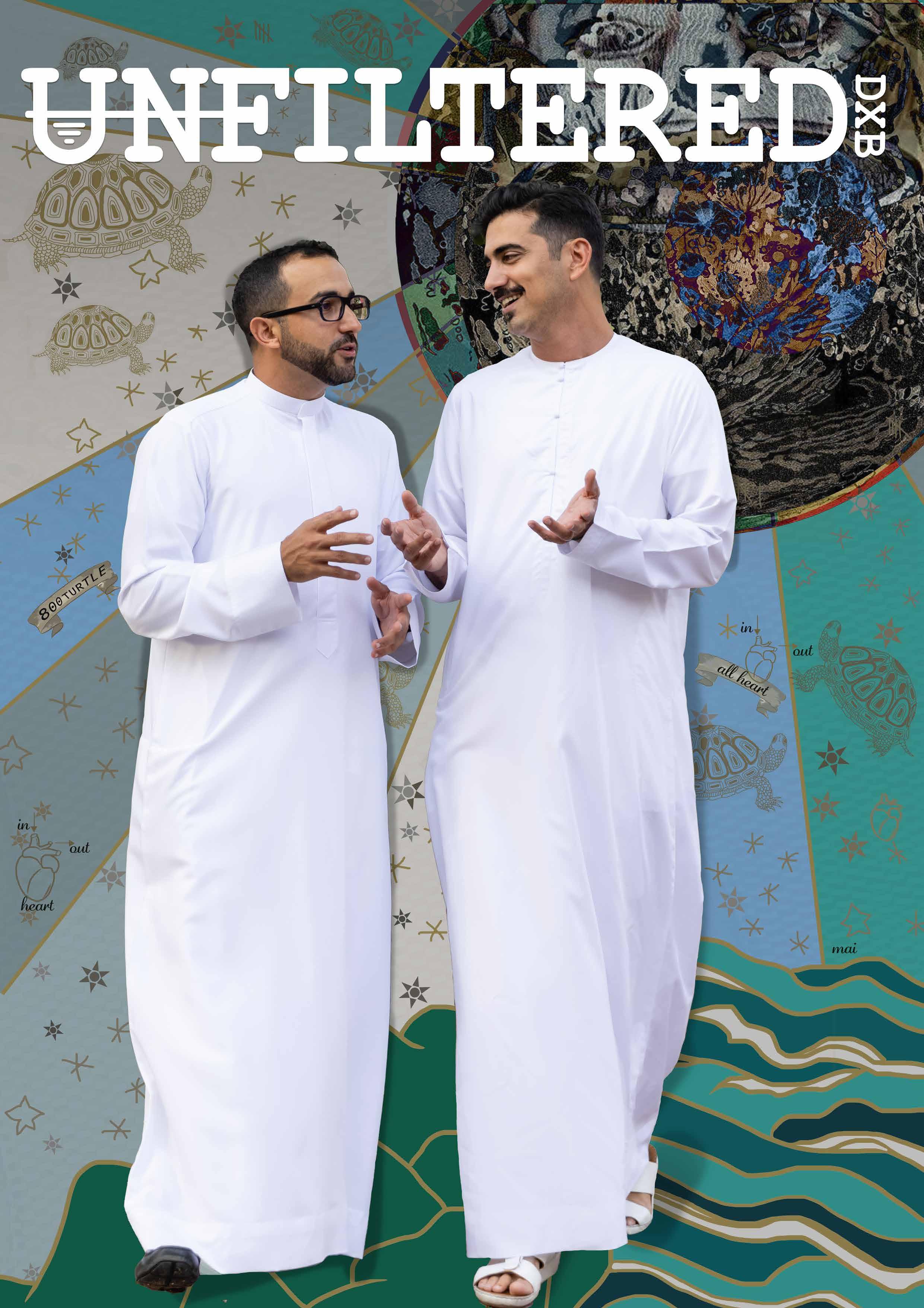

FOUNDERS & EDITORS-IN-CHIEF OMAIRA & JESSICA COMBES
CHIEF LEGAL OFFICER LUNA DE LANGE
ILLUSTRATION EDITOR RINKU AWTANI
DIGITAL CONTRIBUTOR MHAR DELABEN
BRANDING ROLA FAOUR
CREATIVE CONSULTANT AMEERA AL AWADHI
PHOTOGRAPHY STEFFIE NEVE & AASIYA JAGADEESH
CONTRIBUTING WRITERS SID MARLOWE, KARAN AWTANI, IMAD YASSIN, JOÃO LOURENÇO & LAURE SEJEAN
COVER ILLUSTRATIONS BY RINKU AWTANI
COVER PHOTO BY AASIYA JAGADEESH
The publishers regret that they cannot accept liability for error or omissions contained in this publication, however caused. The opinions and views contained in this publication are not necessarily those of the publishers. Readers are advised to seek specialist advice before acting on information contained in this publication, which is provided for general use and may not be appropriate for the reader’s particular circumstances. The ownership of trademarks is acknowledged. No part of this publication or any part of contents thereof may be reproduced, stored in a retrieval system or transmitted in any form without the permission of the publishers in writing. An exemption is hereby granted for extracts used for the purpose of fair review. Published and distributed by Licensee UNFILTEREDDXB LLC, 3524 SILVERSIDE ROAD SUITE 35B, WILMINGTON, DE 19820-4929 USA
Published by UNFILTEREDDXB LLC 2022 © ALL RIGHTS RESERVED THIS EDITION IS PRINTED QUARTERLY BY UNFILTEREDDXB LLC USA www.unfiltereddxb.com
3
My dear fellow men, I invite you to allow yourself to explore this edition of the magazine with an open mind and be willing to learn or unlearn both common and uncommon perceptions of whom we are expected to be and more importantly, how we are expected to act and react.
Recently, I visited one of my favourite places in the Middle East, Beirut. The city and Beirutis welcomed me with generosity and warmth though I couldn’t help but feel anxious as if I was meeting an old lover. The city and I had gone through many difficult moments and I wanted to return with the same confident image I had in my mind from the past. Although the only constant in life is change, one common challenge we face is living in the past and romanticising it out of fear of the future. I pushed on and felt confident and excited to be there.
However, things kicked off differently this time, as if Beirut could smell my anxiety. Before I could settle down and within the first 24 hours, I was faced with a situation where a stranger shouted racist abuse towards me without any provocation. For a second following the initial shock, my impulse was to engage, and my ego flared, after all this was in broad daylight. I had to make a difficult choice quickly; to give him what he wanted which was to find a way to release his frustration or walk away. I chose the latter, but I was enraged and immediately wondered why I spared him the discomfort of accountability.
Fortunately, through many years of pain, I learnt that I must feel my feelings and be able to find a safe space to share them. I reached out to my support group made up of other men with whom I can be vulnerable and be myself, which has been transformational.
You see, racism represents all the external challenges and situations that life throws at us when we are entirely unprepared. Now, had I acted in my old, learned ways things would have escalated, and the trip completely derailed. I would have apologised to the Editor as I could not write this knowing that I do not practice what I preach.
In some shape or form, we have all grown around some unhealthy stereotypes of what it is to be a man. I grew up in the Middle East where “men don’t cry” is a motto, and then in England where we don’t really talk about our emotions and the solution to everything is a cup of tea.
In the last few years, through COVID and financial insecurities, mental health has been highlighted, and we must lose the fear to speak about it and seek friends, family, and professional help. The alternatives are much worse: turning to isolation, violence or substance abuse.
The first time I visited a therapist, thanks to my best friend, I was 33 years old. I sat with my hands crossed and kept wondering about how speaking to another man would do anything for me. It took years but I can’t recommend this enough.
Today, my passion is working with refugee children who, in many cases, are third-generation refugees with generational trauma. Many of us who had to move from our original homes or places of birth, seeking safety and better quality of life carry this within us. When do we give ourselves permission to talk about this?
My six-year-old daughter attended a surfing school in the summer, and one day she told us she didn’t want to go. It took a whole week for her to finally tell us that a boy at the school was mean to her. I wondered what she saw in me that made her think that it is not ok to show her weakness and vulnerability. What we learn at home becomes us unless we are willing to do the internal work.
My fellow men, this year, I invite you to permit yourself to be who you are, away from just sharing happy reels and Instagrammable moments. There are no lifts to inner peace my dear friends; one must take the staircase and only then can we start to experience serenity.
Imad Yassin, 48, Eritrean British

4 FOREWORD
@idrisfoundation
Get in touch:
TABLE OF CONTENTS
Page 04 Foreword
FROM THE EDITORS-IN-CHIEF

Page 06 Omaira
Page 07 Jessica
FASHION
Page 08 Be Yourself
Page 10 Arabian RAP-sody
FEATURES
Page 12 Talking for the Turtles
Page 16 Looking Ahead to the Long Term
Page 20 Caring About the Cats
Page 24 The Kids are Okay
Page 26 Advocating Artists
Page 28 Thoroughly Modern Man
Page 30 Rollin’ and Rowin’
HOSPITALITY
Page 32 At Home in Hotels
Page 34 The Emirati Welcome


SID SPILLS
Page 38 Overinfluenced and Over It
ART
Page 38 Sounds of the Sahraa
Page 40 Game On!
Page 44 Velvet Vox
Page 46 Revolutionary Inspiration

Page 48 Hidden Gems
Page 50 Creativity, Drumming & Loving Lego

Page 52 Forming a Film Fest
Page 54 Freedom of Expression
Page 56 A Perfect Partnership
Page 58 A Compulsion to Create
Page 60 Laugh Like You Mean It
BEAUTY
Page 62 What Men Love
Page 64 Get The Good Hair
Page 66 Hormones and Him
F & B
Page 68 Doodh, Where’s My Carbonara?
Page 70 Merriment on Merit
HEALTH
Page 72 Prioritising Packaging
Page 74 Figuring Out Fatherhood
Page 76 Men-Tal Health Matters
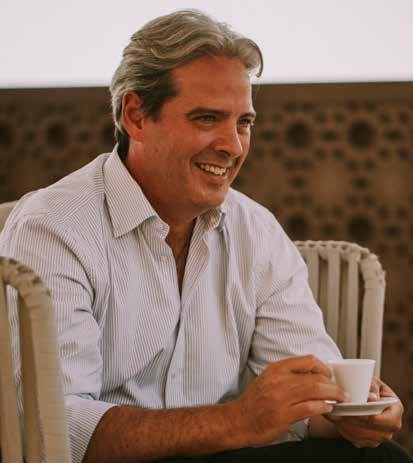
Page 78 Healthy Headspace
SPECIAL MENTION
Page 82 Thank You
COVER:
Illustrations by: Rinku Awtani
Photography by: Aasiya Jagadeesh
5 TABLE OF CONTENTS
12 16 42 76 54 34
They often say that behind every great man is a woman. However, often women are told they need to act like a man if they want to get anything done. This contradiction is often the root of so many issues that both men and women face.
Men are often told to “man up,” to stop acting like a girl when perceived as weak. Women are told to swallow their feelings unless they wanted to be called emotional and irrational. Some don’t see this as a problem, but this needs to stop, period.
When did it become weak to grieve, to cry, to show emotion? When did it become strong to be expressionless?
As a mother of three teenage girls, I often wonder what it is like to raise boys. I wonder what I would teach them. How would I guide them? Would I be able to tell them that it’s okay to be sad? To be upset? Or would I tell them that it’s ok to feel? To have emotions. To be real.
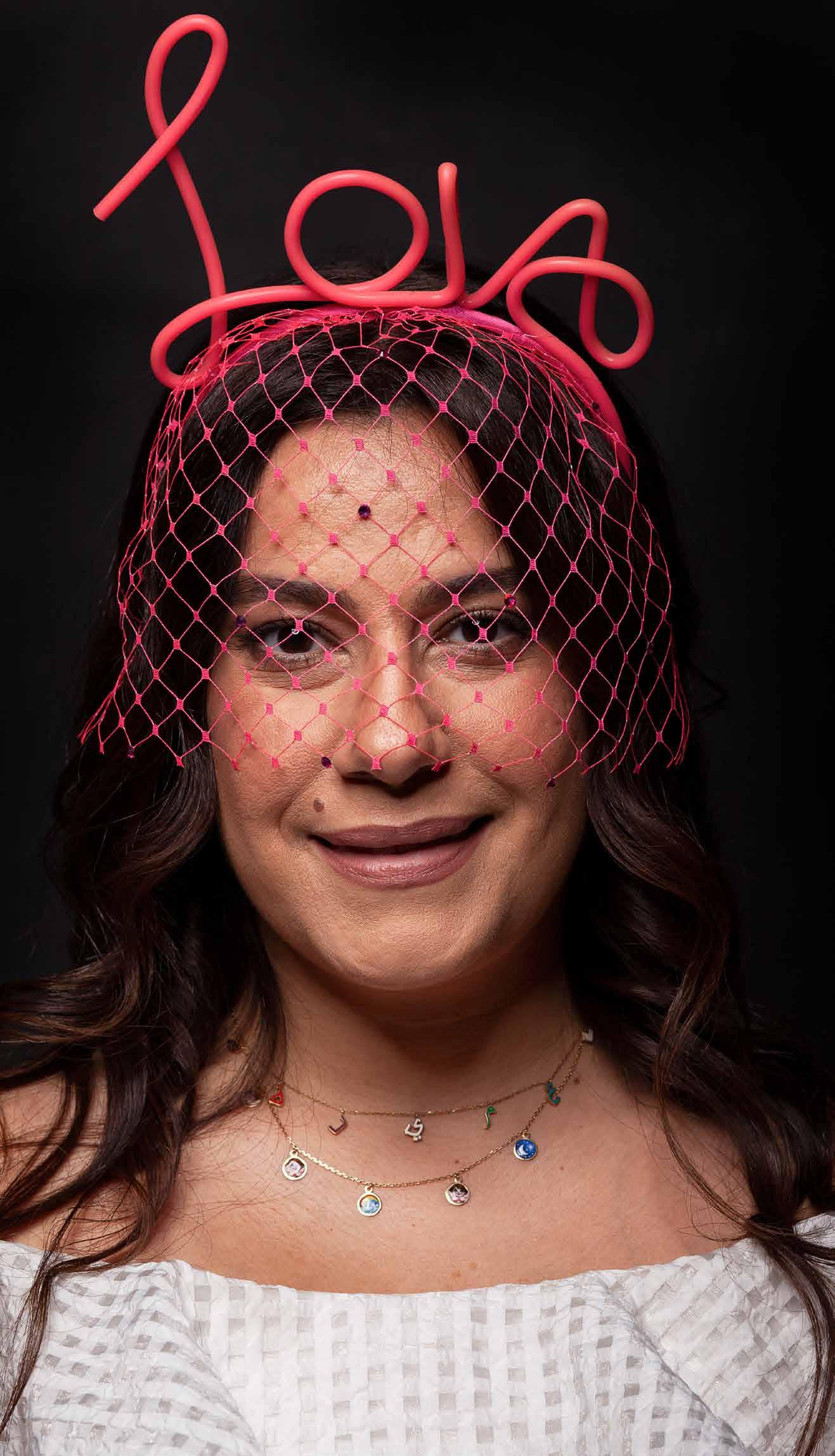
Men and women need each other. They uplift each other, in whichever environment, home or work. They are each other support system. They can learn from each other.
In this issue, we have wonderful strong, fierce men. Some are fathers, brothers, uncles and grandfathers. They tell us stories of their journeys, the people that shaped them, the women in their lives, and the choices they have made along the way.
I hope they inspire you all, as they have inspired us to have faith that together, men and women we can make a difference.
6 FROM THE EDITOR-IN-CHIEF
Omaira
Omaira, 42, Emirati
I’m particularly proud of this issue. It features men exclusively, and they have been remarkable in their degree of candour as they talk about the important issues (and emotions) that society has forced them and their predecessors to bottle up and swallow down.
As more men accept that the simple act of crying doesn’t make them weak and expressing their fears and vulnerabilities doesn’t make them “less than,” the more open communication can be normalised, and the more men and women can heal.
This issue celebrates the men that are contributing to improving the planet – from saving turtles, rescuing stray cats off the streets of Dubai, and working towards creating food security, to advocating for better mental health resources (and shattering the associated taboos) and just creating art for art’s sake in a multitude of forms.
Speaking of shattering taboos and smashing stereotypes, our beauty section still features strongly and the men we have featured are quite happy to talk about their skincare routines, looking after their hair and even how hormones affect ageing (and what you can do to slow it down).
The goal of Unfiltered is to be inclusive and offer something for everyone and I truly believe that is exactly what we have done. I hope you enjoy this issue, and I’ll see you in the next one!
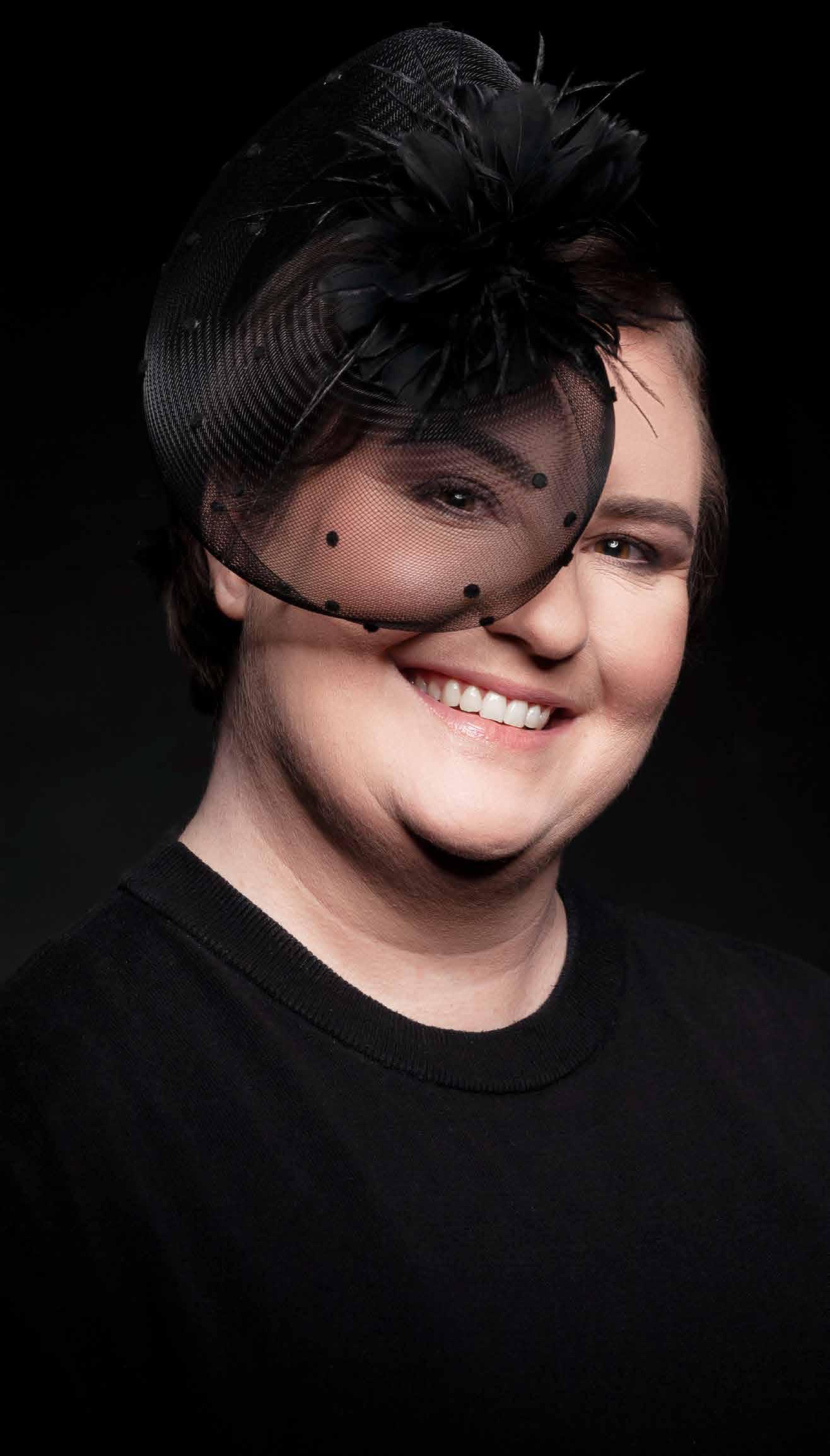
P.S. Remember to #AdoptDontShop! Photo of my rescue cat, Lord Bentley, for tax.
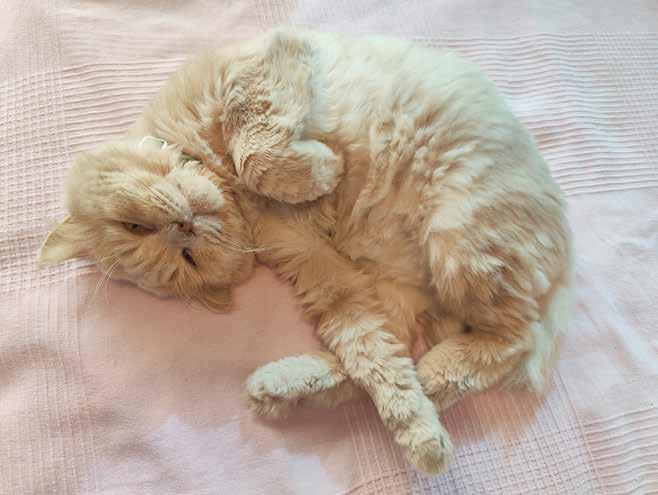
7 FROM THE EDITOR-IN-CHIEF
Jessica
Jessica, 40, British South African
BE YOURSELF
Larger-than-life British entertainer, Keith Dallison, 62, shares a treasure trove of experience and advice following a decades-long career
Tell us about your business – what inspired the idea and when did you start it?
I’ve worked for over 45 years in the broadcast TV and entertainment industries. From a young age at school, the stage, the theatre, and the lights lured me like a moth to a flame. I couldn’t stay away… if I was performing a character or pulling on the ropes to change the scenery, I was there and the same is true today, although now there’s usually a camera or microphone involved.
Although acting and performing in a band was my mainstay in the eighties, it was whilst working briefly with the BBC drama unit in the early nineties that I discovered video editing. The dark side lured me in, and the attraction of technology was irresistible which led me to work on drama and documentary series until today. So, if I had to nail it down to one profession, I’d say I am a video editor. I still edit today as an independent operator, and in recent years the lure of the acting scene and movies, shot here in the UAE, has reawoken that moth in me.
What do you consider to be your greatest personal and professional achievements?
I’ve been lucky to work in an industry I love, that in itself is my greatest achievement - I’ve won global awards for editing and with my acting had the honour and privilege to have worked with some of the industry’s best, including Shekhar Kapur, A.R. Rahman, Kate Hudson, and Emmy award winner Reed Morano. But all of this is eclipsed by waking up every day, being my own boss, and knowing I’ll sit down and create something cool.
What were your biggest business challenges?
How did you overcome them?
The pandemic and lockdown had a huge impact. Work dried up overnight and it took the best part of 12-18 months before things started to resemble normality. I would say even today we are still on the tail end of recovery. It had a massive impact on being able to sustain day-to-day life, and I wasn’t the only one.
The entertainment and creative industry is renowned for being a financial rollercoaster if you are independent. One minute you are up and living the life, the next day you might be down, and this was where I was when we went into lockdown. Yet, through all the anxiety and everything it brought, we kept our health, and with help from friends, some good people and a few random job opportunities, we scraped through.
What advice were you given when you started, and did it help?
My mum always said, “Be yourself!” Years later, I get it and now really know what she meant. Thanks, Mum.
How do you manage the daily stress that comes with running a business?
I keep things in perspective. My mantra is telling myself that I’m in control, and that includes my emotions and not the outside influences, people, or situations that seek to disrupt them.
Have your priorities changed as you have matured?
If so, how?
I value time more and more as I get older. I’m not sure when it all changed but once upon
a time I, like many others, believed I was invincible and that I would live forever.
Then one day you wake up, look in the mirror, you’re 62 and say, “How’s the forever thing working for ya? I thought so! Now what ya gonna do today?”
Do you prioritise your mental health, and how?
I do prioritise my mental health more as I get older. I work in an industry that often is associated inherently with sleep deprivation and this can have serious consequences. Yet to be creative and intensely focused, sleep is the singularly most important thing. Secondly, I eat as healthily as possible.
What you put in is what you get out. I tend to have a holistic approach to taking care of the whole me – a good night’s sleep, exercise, and good food as often as possible. Oh, and I drink buckets of water!
What 3 pieces of advice would you give to the younger generation that might want to follow in your footsteps?
z Be yourself and don’t compare yourself to anyone, otherwise you’ll never find out who you really are.
z Follow your dreams and be prepared to fail, and then get up and find another way to do it until you get it right.
z Be happy with what you do and be happy with yourself, it’ll help to keep fuelling your passion… It’ll be worth it.
8 FASHION
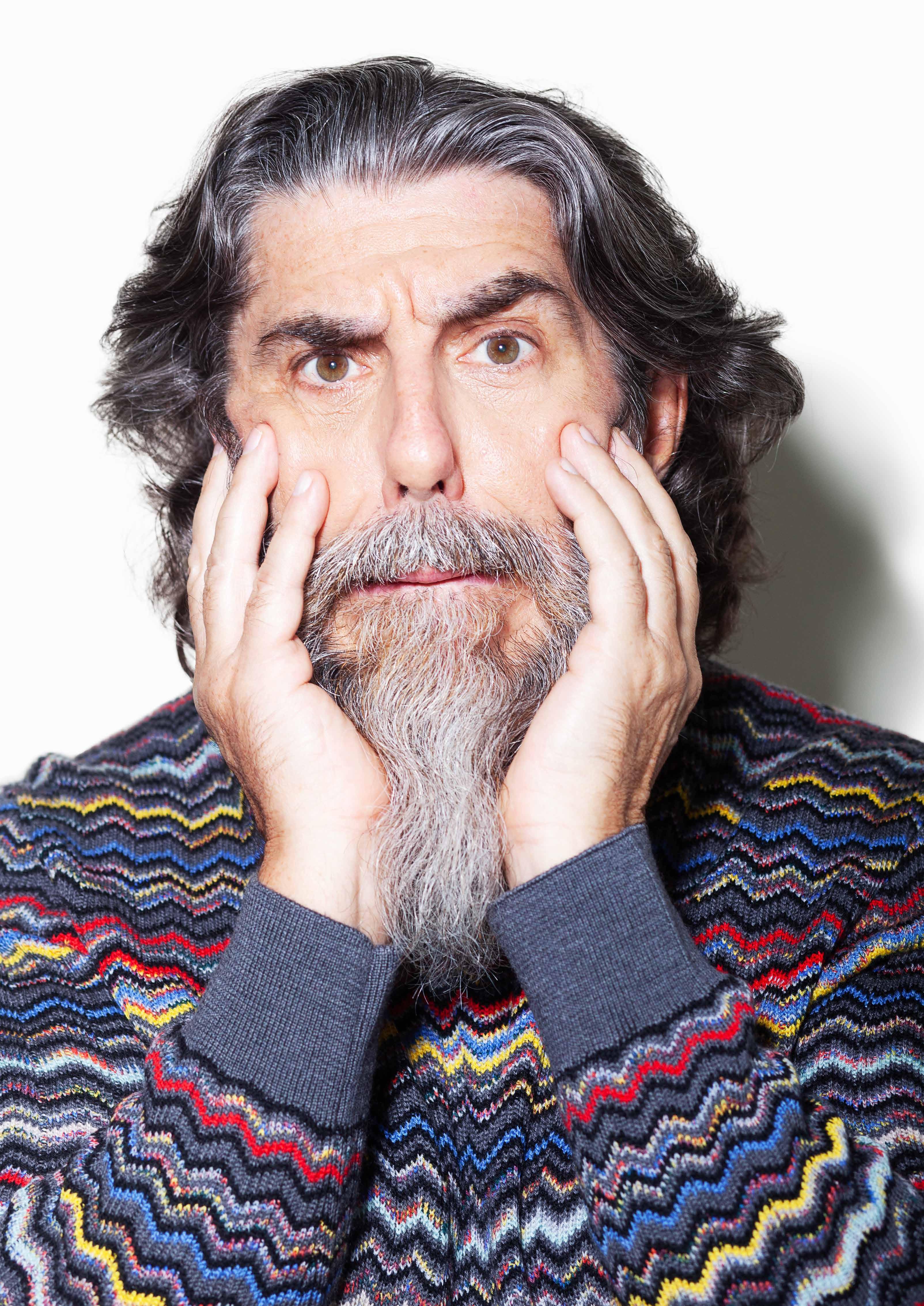
FASHION 9
Get in touch: @kidallison Clothing: @missonii PR: @stephenpr.me
ARABIAN RAP-SODY
We pinned down Somalian musician, FREEK, for a quick Q&A about his music and what inspires him
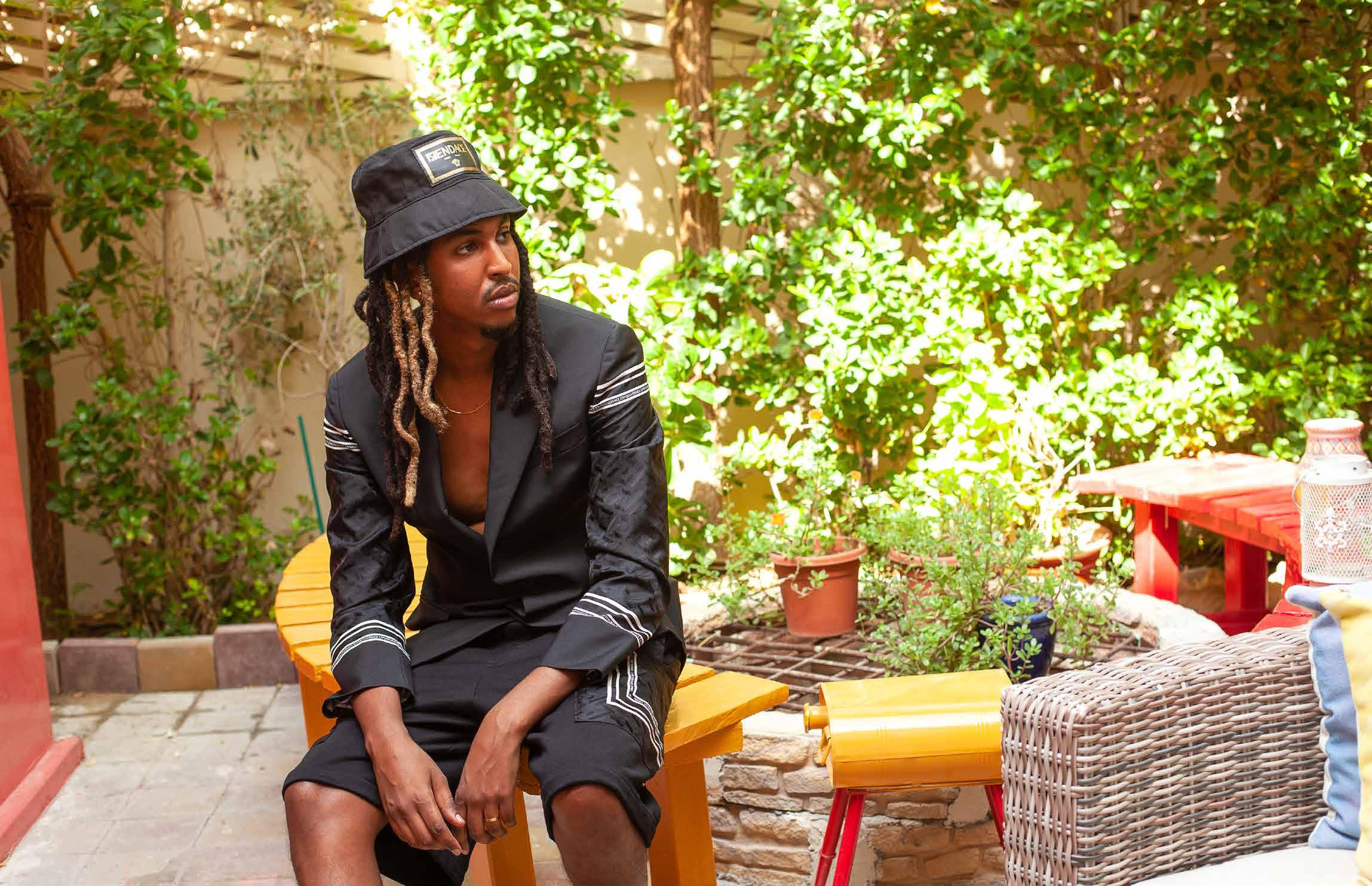
Tell us about your music, what inspired you and when did you start?
I’ve been a fan of music since I was young. As I grew up, I felt that my generation needed its own sound, something we can call our own. That was how I started experimenting with Arabic rap.
What do you consider to be your greatest personal and professional achievements?
Touring the world of course! Travelling to the States to perform in a festival, particularly performing in Arabic, blew my mind.
What do you think are the keys to success?
I think you have to remain consistently authentic but continue to evolve.
What were your biggest business challenges? How did you overcome them? My biggest challenge, to be honest, is always going to be my passport. Travelling around with a third-world country passport is not easy, especially when I need to be able to travel for tours. I still haven’t overcome that.
What advice would you give to the younger generation that might want to follow in your footsteps? Stay consistent and believe in the art you are making.
If you look back over your life and career if you were given the opportunity to do anything different, would you? No, to be honest. Everything happened for a reason some things took more time not because I was doing something wrong, but because it just wasn’t the right time for that business.
STAY CONSISTENT AND BELIEVE IN THE ART YOU ARE MAKING.
10 FASHION
What inspires you?
My day-to-day life and my family.
Do you prioritise your mental health, and how?
When life got hectic, I started to not go out a lot. I made time for myself, my family, and my pets. I play a lot of video games and I think that’s helping to keep me sane.
Get in touch: @freektv
Clothing: @versace
PR: @redhavas
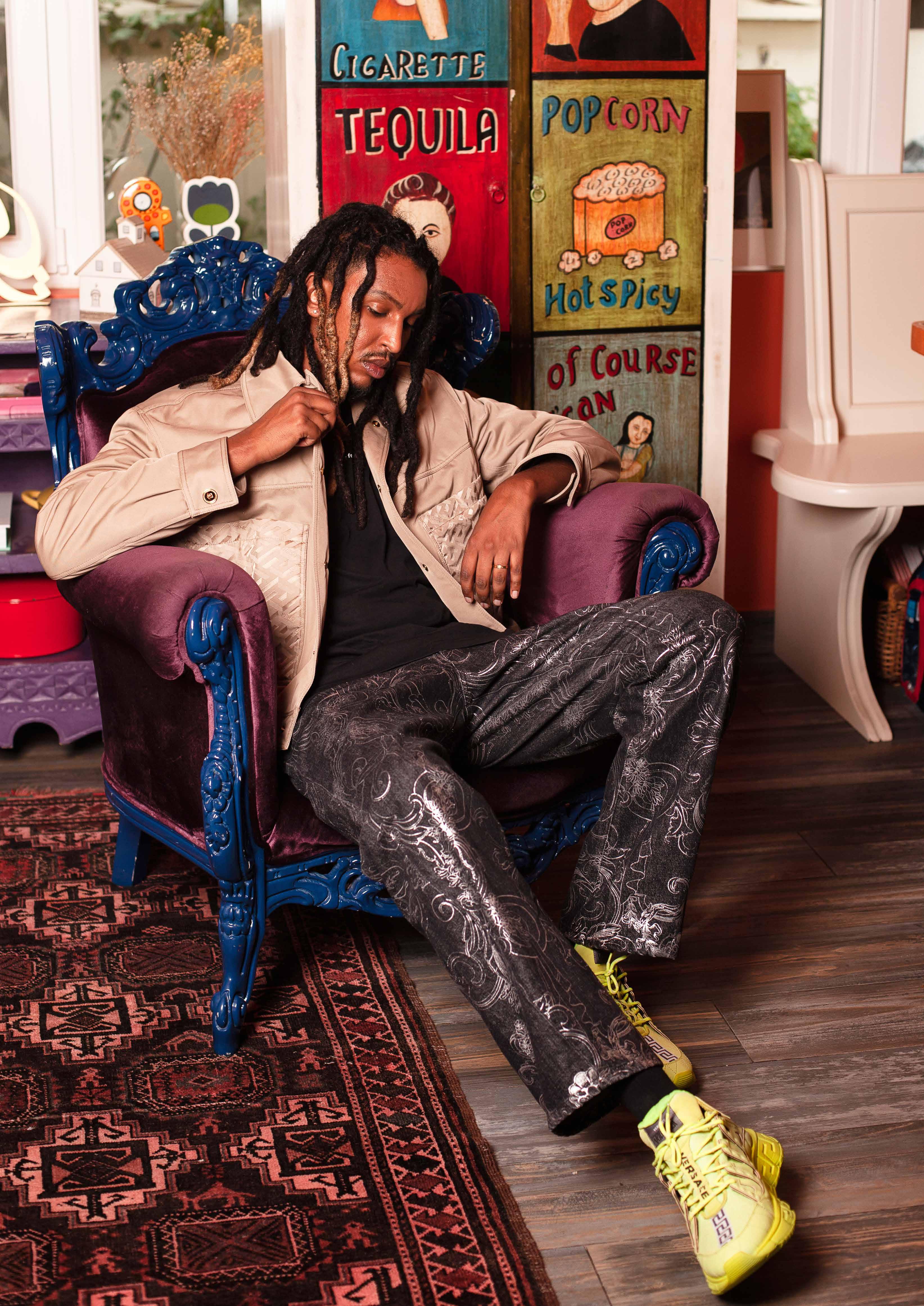
11 FASHION
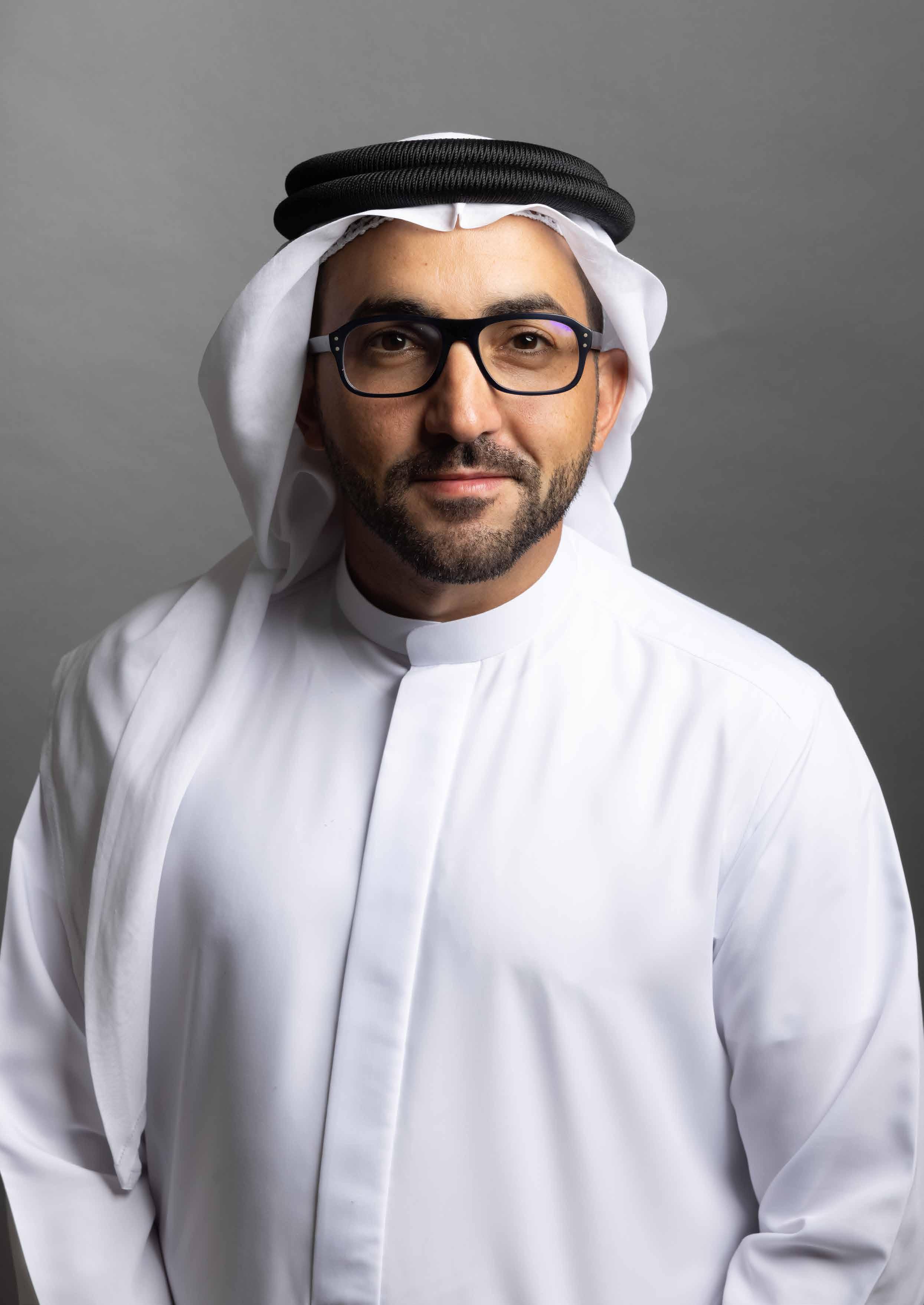
12 FEATURE
TALKING FOR THE TURTLES
Sheikh Fahim Al Qasimi talks about his love of turtles, helping the planet through sustainable fishing, and how sometimes your passion finds you
BY JESSICA COMBES
Sheikh Fahim Al Qasimi grew up by the water. One of his earliest memories was being on a sailboat and being hit by a really big wave, and his fascination with the ocean and the world underwater continues to this day. This has meant having a thirst to learn as much about it as possible and becoming, in his words, “obsessed with marine life in general.”

He has a particular affinity for sea turtles because, besides being cute, they’re the best free divers and able to hold their breath for hours. “There's something quite majestic when you see a sea turtle swimming in the ocean when you know that they can’t breathe underwater and yet they are at one with the water.”
BECOMING THE “TURTLE SHEIKH”
One day, during a freediving trip his Seafood Souq CoFounder, Sean Dennis, found a turtle only a couple of years old, wrapped in a plastic bag.
They named it Tiago, set it free and posted the moment on Instagram, which got picked up by the media.
Nine months later during another diving trip, Sheikh Fahim saw a swimming turtle that didn’t look quite right. “I decided to leave it alone because I wasn’t sure what to do and I continued freediving. But I felt uneasy. I told myself that if the turtle was still there when I went back, then I’d know something was wrong.”
Something was wrong. She was tangled in fishing line and unable to come up for air. After cutting away the line that was wrapped around her neck and tore her flipper to the bone, Sheikh Fahim called the environmental agency, which sent a boat to take the turtle to Sharjah.
Sheikh Fahim called her Farah, and he started watching her recovery under the care of Jumeirah’s Turtle Rehabilitation Sanctuary, which works with The Dubai Turtle Rehabilitation Project (DTRP). Run in collaboration with Dubai’s Wildlife Protection Office, with
veterinary support provided by the Dubai Falcon Clinic and the Central Veterinary Research Laboratory, DTRP has been working to save turtles since 2004 and has released almost 2,000 rehabilitated turtles back into the ocean.
Owing to the similarity in structure between bird wings and turtle flippers, Dr Panos Azmanis from the Dubai Falcon Hospital operated on Farah. Unfortunately, her flipper had to be amputated, but with the care of the team at the sanctuary, she was able to be released.
“I must mention the people who work tirelessly to save these creatures. I was happy to join the project [as an ambassador] to help raise awareness of protecting the turtles, particularly since they breed on both sides of our coast,” said Sheikh Fahim. When Farah got the green light for release, Sheikh Fahim cried. “I'm a very emotional person. I cry often and I'm the first one to admit it. There's an Arab saying that saltwater
13 FEATURE
heals, like going into the ocean is good for the soul. Nowadays people will say saltwater in terms of sweat is good for you, so we work out. Tears are also salty, and I have a firm belief in having a good cry every now and then. I think crying is one of the biggest litmus tests as to whether or not you care, and when I cried during Farah’s release it was a clear sign from my body that this actually meant something. Crying is a natural, human response to certain situations and if you feel like having a good cry, have a good cry.”
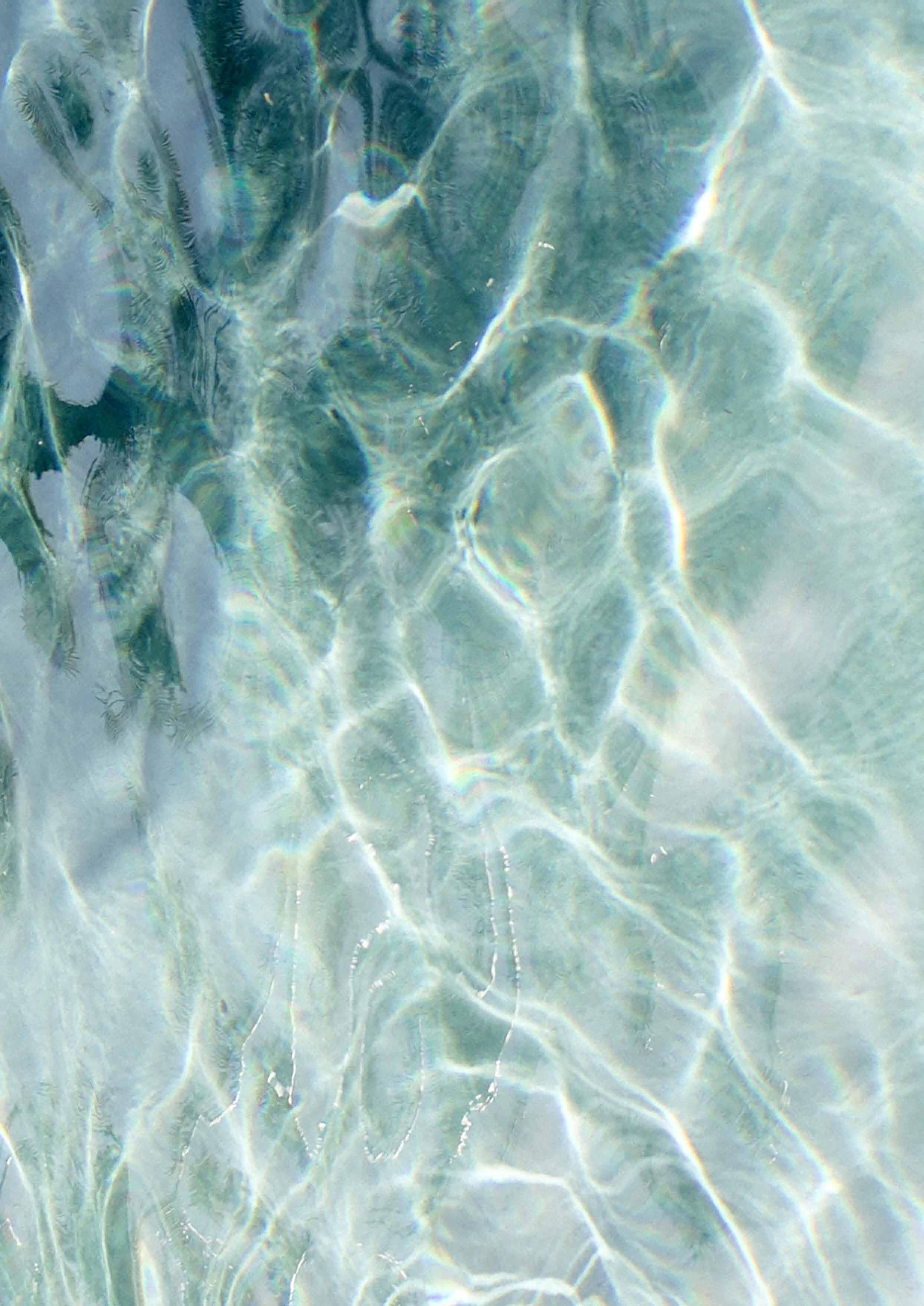
THE NEXT GENERATION Sheikh Fahim never actively sought to dedicate himself to turtle rescue and conservation. But he considers himself fortunate that he found it and he can make a difference. “I've been involved in a few businesses here and there, and the ones that have commanded most of my time, and the ones where I have done the best are the ones that are involved in the ocean.”
Since rescue teams cannot be everywhere at once, the line 800 TURTLE was set up for emergency calls which don’t always come at the most convenient times.
One weekend, when his kids were in Pre-K, a call came through from someone who found a large, sick turtle that needed around four people to carry it. Sheikh Fahim was out with his family and after a couple of phone calls, he managed to find an available boat and somebody with a powerboat license.
“In that situation, what do you do with your family? You bring them along. On Monday morning when the boys went to school, the first thing they told their teacher about their weekend was that they saved a turtle.”

Ocean conservation has become an important topic in their classroom and Sheikh Fahim does ocean awareness talks, held during summer camps or midterm breaks, to explain what to do if they find a sick or injured sea turtle or how to pick up a turtle. “I put a towel down and I get the older kids to hold the corners and 10 eight-year-olds can lift me up. That teaches them how to work with the animals to help save them. That part is where I see the real impact in terms of raising the next generation.”
SEAFOOD SOUQ
Sheikh Fahim’s love for the ocean has extended into Seafood Souq – a transparent, B2B marketplace that aims to provide full traceability for fish. SFS Trace, a QR code available on the packaging tells consumers where the product came from, the producer, the ship it was on and when it arrived at its destination – ideal for consumers who are becoming more discerning about where their food comes from.
“We're overfishing our oceans and wasting 45 per cent of what is caught. We can address that wastage and reduce illegal fishing if suppliers deploy our technology. We’ve gone around the world to different markets. We did 6,100 tonnes [in 2022], and there's a lot more in the market,” he said.
From a start-up 4.5 years ago to full staff of 25 today, Seafood Souq is starting to partner with local businesses that have mandated the inclusion of traceability of its sourcing and is also an advisor to an NGO called the Global Dialogue
FEATURE 14
I'VE BEEN INVOLVED IN A FEW BUSINESSES HERE AND THERE, AND THE ONES THAT HAVE COMMANDED MOST OF MY TIME, AND THE ONES WHERE I HAVE DONE THE BEST ARE THE ONES THAT ARE INVOLVED IN THE OCEAN.
on Seafood Traceability, which sets the protocols for what traceable seafood is and how to prove it.
“I'm fully aware that sea turtle conservation is very specific. These creatures have been around since the dinosaurs and a lot of people don't know that. There's hope that these creatures that have lasted a million years will continue to last. I say this very often: when I found Farah she didn’t make a sound. Turtles make little sounds here and there, but she wasn’t screaming for help. These animals do need a voice globally and I find that my mission is to give them a voice and help people understand what they are going through,” added Sheikh Fahim.
TURTLES NEST ON THE SAME BEACH THEY WERE BORN ON, WHICH IS ANOTHER REASON CONSERVATION IS SO IMPORTANT.
4 MAIN RISKS TO TURTLES
1. COLD STUNNING
When water temperatures drop too quickly, turtles don’t swim around as much and then become covered in barnacles that weigh them down, making the turtles lethargic and causing them to wash up on beaches.
If you find a turtle covered in barnacles – do not remove them. Call 800 TURTLE.
2. PLASTIC INGESTION
Turtles love jellyfish which they confuse with floating plastic bags which, once eaten, compact their intestines, making them sick and lethargic and they often float to the surface.
3. BOAT STRIKES
At the surface, turtles can be struck by boats and three of the permanent residents at the sanctuary – Humpty, Dumpty, and Propeller – are there because of it. Humpty and Dumpty’s shells are now deformed causing buoyancy issues and they are unable to dive and will not survive in the ocean; Propeller was hit by a boat propeller and her back flippers are now paralysed. All three are members of the awareness campaign.

4. ENTANGLEMENT
Turtles often get caught in nets and fishing lines, and they often die as a result.
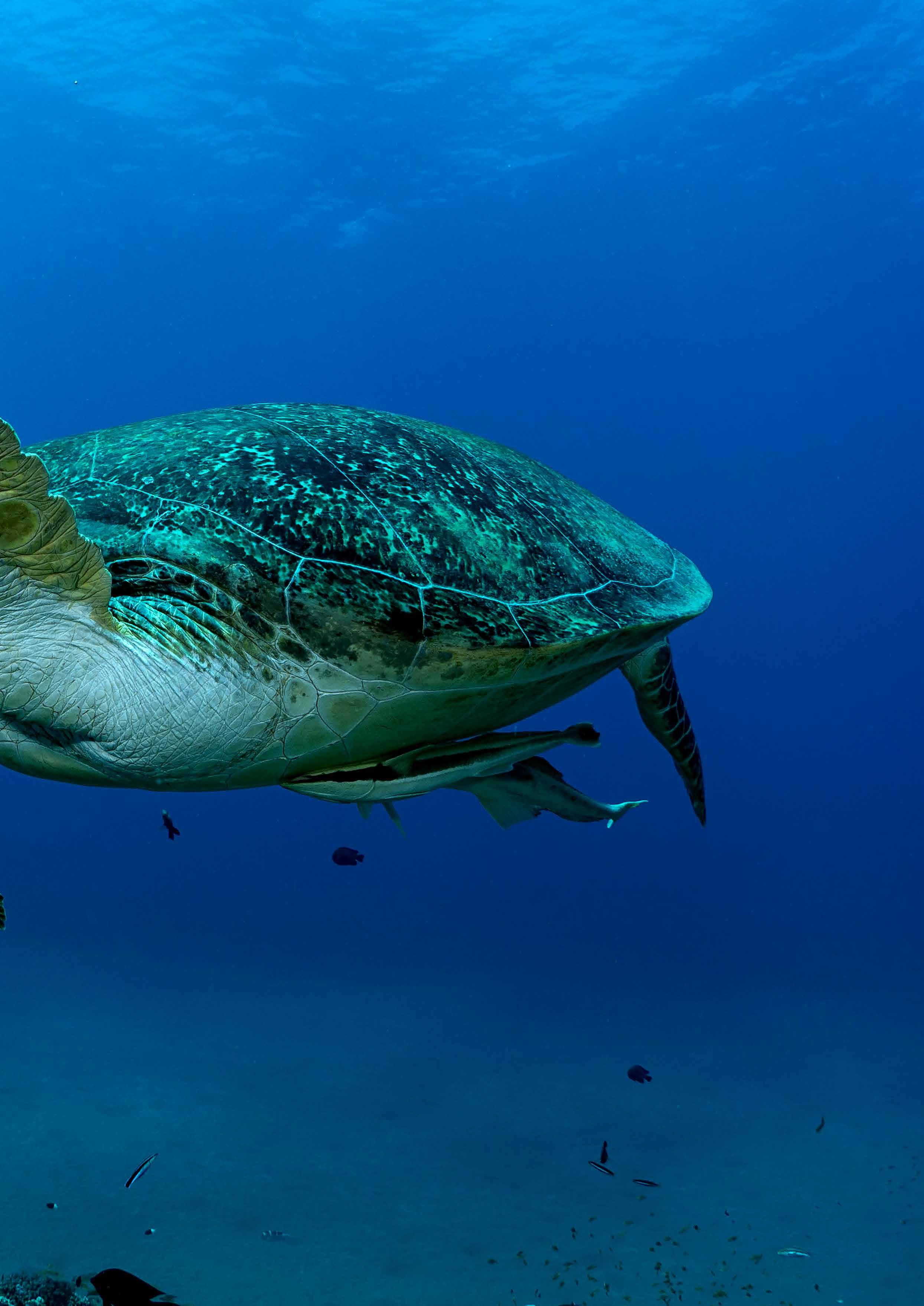
THE TEMPERATURE OF THE NEST DETERMINES THE SEX OF THE TURTLES. IF THE EGGS INCUBATE BELOW 27.7°C THE HATCHLINGS WILL BE MALE. IF THE EGGS INCUBATE ABOVE 31°C, THE HATCHLINGS WILL BE FEMALE.
Get in touch: @fahimaq | @seafoodsouq | @dubaiturtles
FEATURE 15
IF YOU HAVE A SUSTAINABLE FOOD SYSTEM THAT'S BUILT PROPERLY, YOU CAN ENSURE FOOD SECURITY LONG TERM; IF YOU WANT TO ACHIEVE SUSTAINABILITY, IT CANNOT COME AT THE COST OF FOOD SECURITY.

FEATURE 16
LOOKING AHEAD TO THE LONG TERM
Sheikh Dr Majid Bin Sultan Bin Khalid Al Qasimi talks about making career decisions, working hard, and prioritising his family
BY JESSICA COMBES
Sheikh Dr Majid Bin Sultan Bin Khalid Al Qasimi has always had an interest in food security and sustainability. He grew up familiar with the farming practices in more temperate European climates and the reality that the Middle East doesn’t have the same farming systems and has a reliance on imports was always front of mind.
He was advised to study for a veterinary degree because it would provide a broad understanding of nature and the natural world. “I never considered becoming a doctor. As my career progressed as a veterinarian doing conservation work, then in the Environment Agency, then into terrestrial biodiversity, this growing portfolio of experience meant I became someone who could have very technical conversations with many different people,” he said.
This skill set became useful when he began his role at the Ministry of Climate Change and Environment where he could talk to anybody about agriculture, green economy, conservation, biodiversity, and even waste management. Over those five years, he realised he was trying to engage across
sectors because many of these areas are siloed but related.
Currently the Partner and Founder at Soma Mater, Sheikh Dr Majid said, “We're a food security and sustainability consultancy, but ultimately, that's the same. If you have a sustainable food system that's built properly, you can ensure food security long term; if you want to achieve sustainability, it cannot come at the cost of food security.”
Working on the food security strategy of the UAE was a culmination of his passion and by the end of it, more people came to him for consultation and advice. When he looked at his career and decided he had plateaued at the Ministry, and he said his transition into the private sector was a bit surprising but the right move for him. He was also given a bit of a nudge by one of his mentors, who told him that if he wanted to make the move to the private sector, he needed to do it before he turned 40.
PUBLIC TO PRIVATE
In the run-up to his departure from the Ministry and with his colleagues wanting to know what was next, there was very little surprise when Sheikh Dr Majid shared that he was thinking of moving into the private sector. “I get up every
day and go out and give it my all. I think what surprises me is how comfortable I am with that risk and that accountability,” he said.
Something that was a bit of a shock is the amount of time it can take to close a deal in the private sector because a lot of people like to talk but when it comes time to sign on the dotted line, there are delays. “This has probably been my biggest peeve. I'd rather get an outright ‘no’. Rather come back and tell me you’re not ready or this isn’t the time. I also think what we’re doing for this region is still quite new and people haven’t properly planned for it.”
Taking cultural differences into account, he also understands that it can be uncomfortable for his Emirati colleagues to outright say they aren’t ready. He cited the example of taking six months to put a proposal together, submit it, and be told that the policy he was meant to implement hadn’t yet been approved and they would have to wait. Speaking frankly, he described himself as becoming more blunt when asking about budgets at the beginning and whether the person he is engaging with is the decision maker.
He added that in general, he has experienced his fair share
17 FEATURE
of ghosting, where people disappear and phones stop being answered after handing over a proposal that he made clear was valid for two weeks because he’d been told the project was ready to execute.
“I'd rather they come back and just say that they got ahead of themselves. So, I look at where I can help. rather than trying to rework and resubmit the pitch. If the price is the issue, then I ask them what isn’t working. It’s frustrating to have people tiptoe around me and it has been hard for me to realise people might be a bit afraid to tell me something is outside of their budget or there was something they didn’t account for,” he said.
Sheikh Dr Majid is also under no illusions that coming from a royal family could be a factor in people not wanting to communicate directly. “But if there's anyone in the room who can take bad news, it's me. I'll take it on the chin. I am so good at that. There is nothing you could do in a business relationship to me, other than outright betraying me, that would disappoint me. I'm ready to roll my sleeves up and get to the reality of the situation. You’ve run out of budget?
Let me figure out how I can close this up for you as best as possible. I understand the
realities of business and, and how things work,” he added. His goal is to create a sustainable food system in the Middle East and North Africa with the belief that the MENA region can do a lot for itself. The minimum positive impact he is working towards is to catalyse a system that can feed itself and show the world what new models of agriculture food processing, production, and circular economy can be developed, without simply adapting existing western practices. He believes that the UAE can serve as a model for a lot of the countries that are going to be hardest hit by climate change, where temperatures are too extreme or natural resources are too low or decreasing.
ALL ABOUT FAMILY
Sheikh Dr Majid is perfectly frank about the difference between being a Government employee, where he had the freedom to leave work early and come home and spend time with his family, and working in the private sector. Now, his business lives or dies with his input, and like any entrepreneur in the first five years of their business-building journey, he has to give it his all.
“It’s not about the number of hours I spend with my family, it’s about the quality of hours. If we're doing something together, I'm not going to take
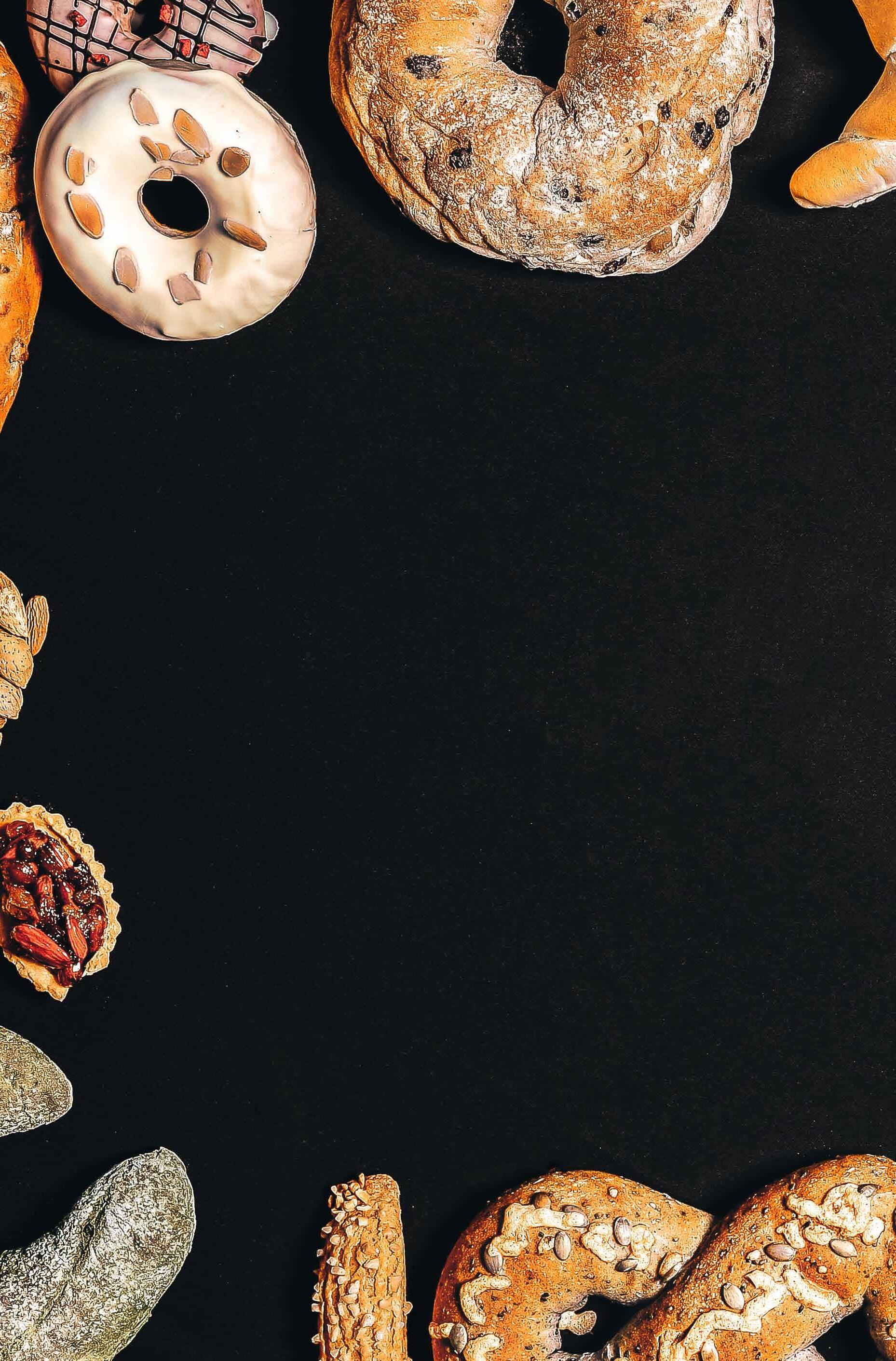
calls or check emails. If I'm with the kids or my wife, I'm fully there. But, if that means I'm only getting a few hours in the evening, or a few in the morning, then let those be the best hours we can have, as opposed to me sitting there all day and saying I'm working from home and I'm doing neither very well,” he said.
He added that being selfemployed means being able to dictate the way he works and a policy he and his partner want to implement is that employees can travel whenever they want, as long as the results are being delivered. Being able to work remotely provides the freedom to travel with his family while still running the business without geography being a barrier.
“I want to build a business and deliver it well, while still being there for my family; I don’t want to be a father in absentia,” which he agreed seems to be a trend among men as gender roles adapt to the changes in the world. “We’re [men] very concerned about not being there for our kids, so we're overcompensating by doing the drop-offs in the morning. We want to be home for dinner. I'm always home for dinner, and always put my kids to bed. Parenting is a very important thing to me because I think our parents were very busy at the office and doing
FEATURE 18
work. So, part of me moving out of Government was also dictating the way I want to work and the way I want to be a parent and entrepreneur and design my life.”
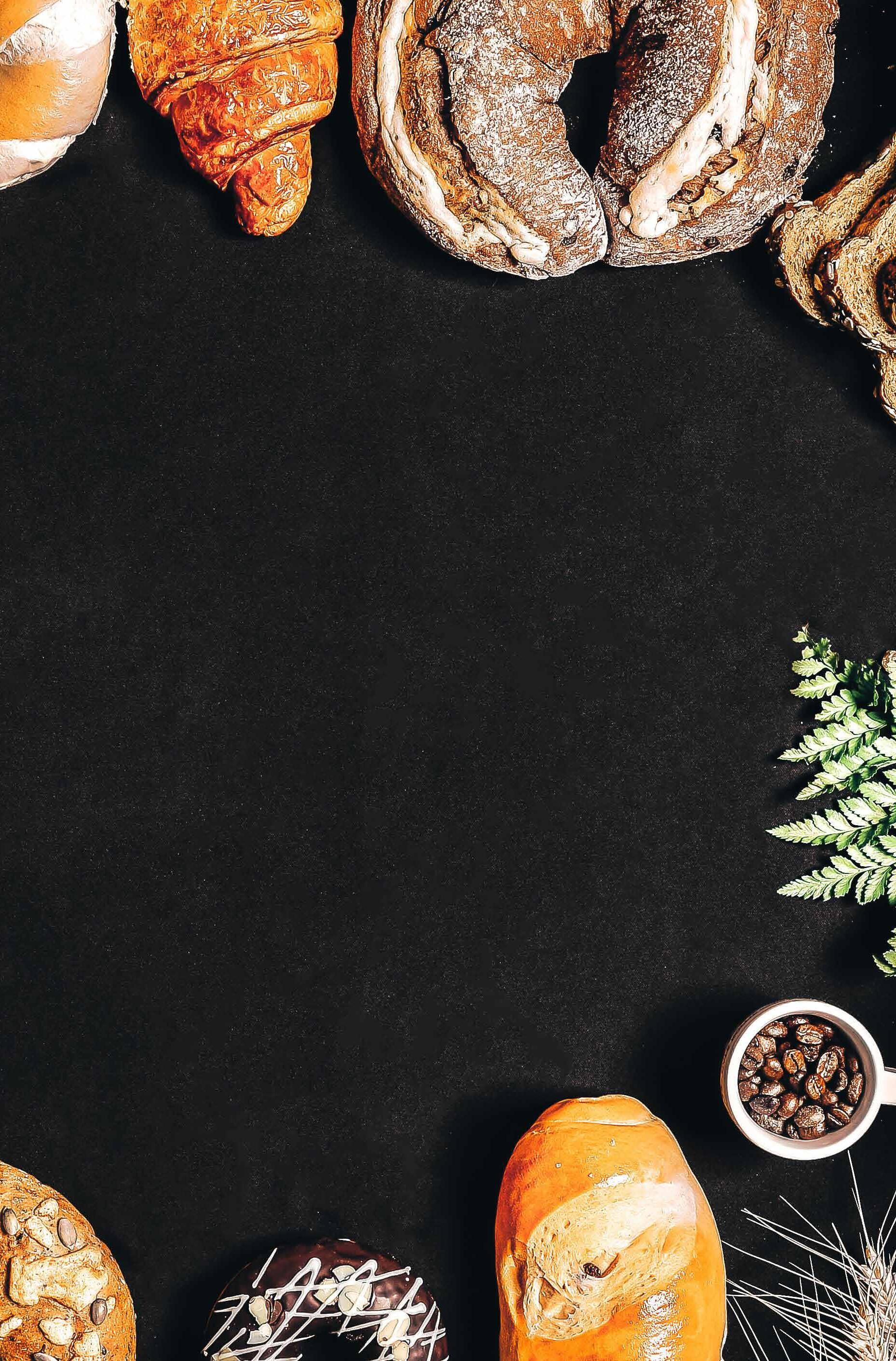
One area he admitted needs improvement is being able to delegate but he credits his wife for helping him. “My wife asks me, 'If I pay other people to work on things, why am I constantly involving myself when it's their job? Don't constantly roll up your sleeves and try to do it for them because I should be able to give them the task and just oversee,” he said.
LEGACY VALUES
When Sheikh Dr Majid accepted the role at the Ministry, he did it in part to build security for his family. But having moved to run his own business, aside from showing them they can leap to follow their pursuits, he also wants to teach them accountability, both to themselves and to others. He wants his children –
who are still really young – to grow up knowing they can rely on themselves to be okay.
The kids have chores, and they are paid AED 10 a week provided they don’t miss two out of their six chores a day. “People tell me that’s harsh, but you know what? The real world isn't going to be any prettier, and wait until they move out. I want to embody some of this realism in their lives, the accountability for doing their chores and the consequences if they don’t,” he said. His approach to teaching them to save has also been criticised as somewhat harsh. If they tell him they want something, he’ll tell them to get their money and he’ll take them. “I pay for the house, their education, their clothes, their food, and the staff. And I pay them to do their chores. Then they save for what they want, and they buy it. I also want them to understand that they don't have to go to others to earn their way through life,” he said.
IN 2023:
z 5 COUNTRIES IN THE REGION HAVE SEEN FOOD INFLATION GOING BEYOND 60%
z LEBANON: 138%
z SYRIA: 105%
z IRAN, TURKEY, AND EGYPT: 61%
z IN THE LAST 3 YEARS, FOODINSECURE PEOPLE ACROSS THE REGION INCREASED BY 20% TO MORE THAN 41 MILLION PEOPLE
SOURCE: WORLD FOOD PROGRAMME
FEATURE
19 Get in touch: @majidaq
I WANT TO BUILD A BUSINESS AND DELIVER IT WELL, WHILE STILL BEING THERE FOR MY FAMILY; I DON’T WANT TO BE A FATHER IN ABSENTIA.
RESCUING ANIMALS IS NOT A JOB, YOU DON'T GET PAID. YOU HAVE TO DO THIS DURING YOUR PERSONAL TIME; YOU USE YOUR OWN MONEY, IT TAKES A LOT OUT OF YOU MENTALLY, EMOTIONALLY AND FINANCIALLY, AND IT TAKES TIME TO SEE RESULTS.
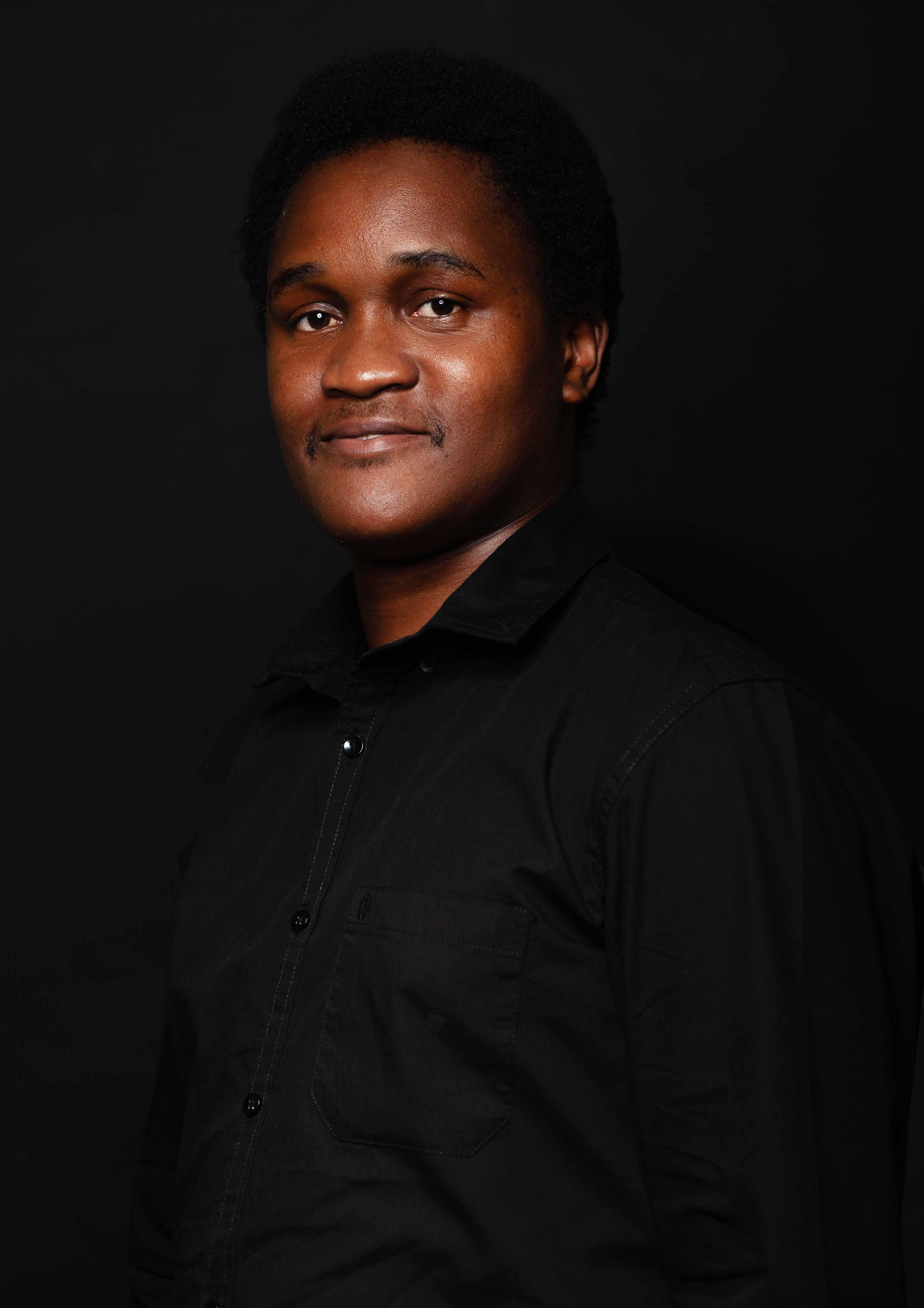
20 FEATURE
CARING ABOUT THE CATS
When Kevin Kwagga, 27, from Uganda saw a cat hit by a car, he knew he wanted to help as many of them as possible
BY JESSICA COMBES
Kevin Kwagga moved to Dubai in 2017 to work as a security guard. Although he has always loved cats, he never set out to rescue them until 2018, when he saw a cat get hit by a car and watched the driver place the cat on the side of the road and drive away.
“The cat was in terrible, terrible pain. It was around 9pm and I didn't know anything about vet care. I just grabbed the cat, and I was trying to stop taxies and they all said they couldn’t help me. Finally, somebody stopped, and we went to a 24-hour vet and the cat had to be put to sleep. The emergency consultation was AED 600 and the procedure was AED 450. I didn’t have that money. I told the doctor I would be paid in a few days, and I offered to leave my phone with him. Something resonated with the vet, and they did everything for free. From that day, I never stopped noticing cats,” said Kwagga.
Each month Kwagga was paid, he’d set aside AED 500 to buy food. One day somebody told him to start an Instagram page and kevinofdxb was born to highlight the issues around Dubai’s stray cat population and be reachable if people want to help because each individual can make a difference. Kwagga also shares the vet’s bills on his Instagram because while he
has veterinary help, the clinic has capped their assistance at AED 20,000. He never takes the money directly; he always provides the vet’s bank details to anyone willing to help. Until those fees are settled, he cannot get care for other cats that are brought to him. At the time of the interview, he had cats that were quite ill and in need of care.
“Sometimes people tell me to kill the cats because they’re already suffering, but that’s not how it is supposed to be, we are not God. Yes, sometimes it has to happen because there is no hope and they won’t have a good quality of life, but I cannot just decide to put a cat to sleep because the bill is going to be AED 1,000,” said Kwagga. He was told to put one of the cats currently in his care to sleep. Instead, he took it to a vet in Umm Suqiem, and although the treatment cost him, the cat is now ready for his forever home.

Kwagga has had a few fallouts with his family, particularly in the early days of helping cats. “At one time I was spending everything I was earning on cats and sometimes I would have to call home and ask for money, which did not sit well with my family. But it’s been sorted, it’s all right.”
AWARENESS
Kwagga not only wants to raise awareness in general
but ideally, he would love for stories like his to reach the UAE Government. “I would love to see government-funded animal shelters. I don’t think we don’t have them because the Government doesn’t want to implement them – it’s very clear that our Government cares about animals.” He cited the examples of Sheikh Hamdan bin Mohammed bin Rashid Al Maktoum, Crown Prince of Dubai’s recent adoption of Grace, a saluki mix, after she was found with multiple wounds after being shot with a pellet gun. “I think we need a way to pass the information to the Government so they can see the full scope of what is happening,” he said.
He added that having government-funded TNR (trap, neuter, release) programmes will go a long way in addressing the stray population as well as helping the existing animals that require care, without overwhelming vets and the capacity of foster homes. A regulated TNR programme will also provide the Government with accurate data on the stray cat population.
Another issue that the Government could help tackle is people dumping their pets without consequences. “Somebody dumped a Maine Coon in my area. Those cats are exotic, which means somebody paid a lot of money for it. They had shaved this cat and thrown
21 FEATURE
him out. They probably left the country, but there is no database of owners. When you leave the country, you should have to explain what has happened to your pets – either provide their travel documents or proof that your pet has been rehomed. We need a database that will hold people accountable if they are going to have pets.”

Kwagga has over 100 messages from people asking him to take in their cats, with some even threatening
to dump their animals if he refuses. “People are guilttripping me into taking the cats because they know I care. It's not right. But at the end of the day, you end up fighting to do this because if someone says they will throw the cat out and the cat dies, as someone who cares about animals, I cannot forgive myself for it.”
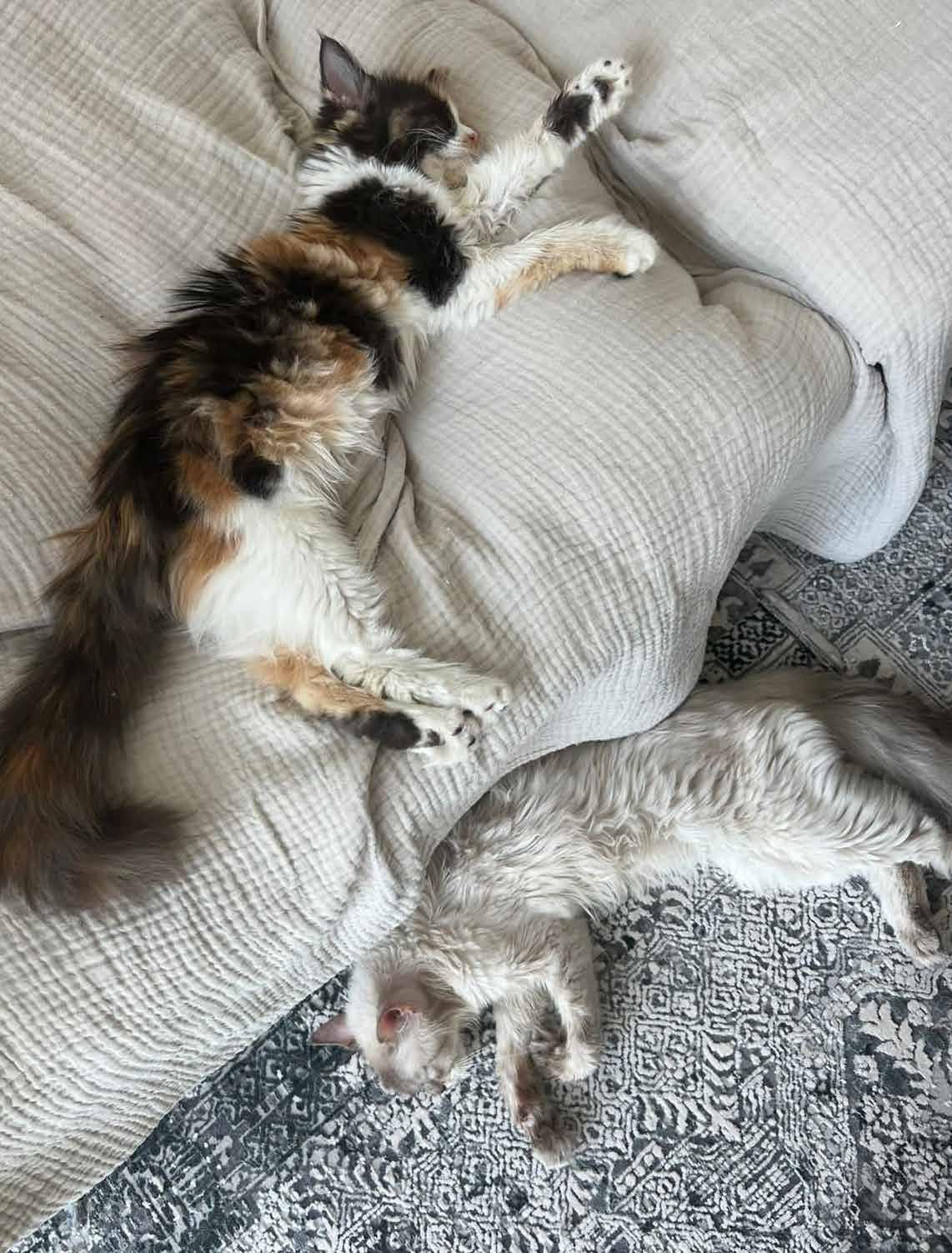
While Kwagga does what he can in terms of taking in strays that need care, he is also fully aware of how quickly disease can spread among cat colonies, so he separates cats with ringworm in cages in his apartment until they are healed. But his space is limited.
FEEDING AND CLEAN UP
Another issue that concerns Kwagga is feeding the cats, or rather, the aftermath. While many rescuers are feeding the cats, which is very helpful, problems arise when they don’t clean up afterwards. So, the municipality will issue fines because somebody has simply thrown the food on the ground. “I believe you should come with plates to put the food into. Then, go around to feed your colony and by the time you finish the last part and come back to where you started, that plate will be empty. Pick it up. That little bit of etiquette goes a long way. Nobody is going to fine you AED 300 when they can see you clean up after yourself.”
This lack of care is partly why some building managers are so against people feeding strays, which is fair. Kwagga admits he wouldn’t want to find cat food dropped over his balcony or scattered around where he lives, causing a hygiene issue.
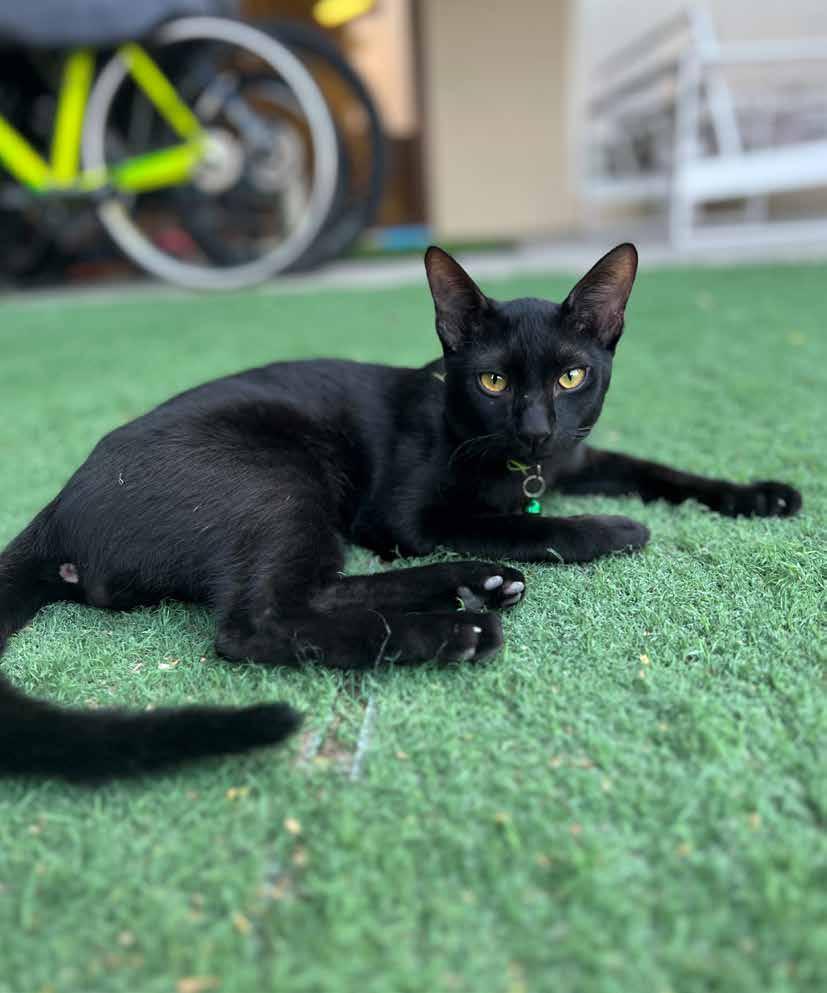
“I do my feeding from 9pm to 1am. I feed the cats for two hours and use the remaining
time to circle back and clean up after myself. If I put out 10 plates in one place and the cats have eaten most of it, I’ll put the remaining food on one plate and take the other nine to the garbage. So, even though we are doing something good, we still have to be considerate because we’re around other people’s properties. In the same way, I have seen other rescuers put food right outside a supermarket entrance. You can’t do that, it’s still somebody’s business,” he said. “When someone tells me they don’t want me to feed the cats at their building, I ask if I can feed cats at their garbage area with a promise to clean up, they are generally happy for me to do it because it keeps the strays from the building entrance.”
Kwagga has agreements with around eight buildings. He sat with the managers and explained what he was trying to do and how he was trying to do TNR in the areas to help address the number of strays at the buildings. He feeds about 500 cats per day, and when he posts asking for help with food, he receives it. Kwagga also asked these building managers to give him a few weeks to try to relocate the cats where possible before they resorted to calling pest control, and he estimates around 60 per cent agreed.
TAKING A TOLL
He added that being a rescuer takes a lot mentally, and it’s not realistic to expect new rescuers to be prepared from the outset. “Rescuing animals is not a job, you don't get paid. You have to do this during your personal time; you use your own money. It takes a lot out of you mentally, emotionally and
22 FEATURE
I NEVER UNDERSTAND WHY PETS HAVING IS AN ISSUE BECAUSE IN EVERY BUILDING THERE IS A SECURITY DEPOSIT; IF MY CAT DAMAGES YOUR PROPERTY, USE THE SECURITY DEPOSIT.
financially, and it takes time to see results. I've seen a lot of Instagram pages pop up then after two weeks, or after two months, the page disappears,” said Kwagga.

He added that he has friends who have lost their marriages to their rescue endeavours. Other people have lost their jobs, Kwagga being one. When somebody sent him 10 bags of cat food, he kept them in his room. He was told it was a fire hazard and he was putting his roommates at risk, so the security company terminated him immediately. The cost and hassle of taking them to labour court meant he just had to accept it.
Thankfully, he currently has a new job and is able to continue looking after the cats. He tries to do TNR on 30 cats per month and find homes for cats where he can, as soon as he can, so he can take in another that requires help.
Rehoming isn’t always easy. He’s rehomed cats and sometimes had them returned to him. In some cases, the endings aren’t happy. He detailed a story of a woman in Sweden who had homed one of his cats only to message him shortly after to say she wanted to return the cat because it wasn’t using the litter box properly. After frantically posting for help, he found someone in Stockholm who was willing to foster until another home could be found.
“I told her someone would come to pick up the cat shortly. She told me that the cat had jumped out of the window and died,” said Kwagga.
However, where possible he chooses to rehome the cats internationally because anyone willing to pay the fees and get the necessary paperwork together is usually serious about adoption and is less likely to dump the cats.
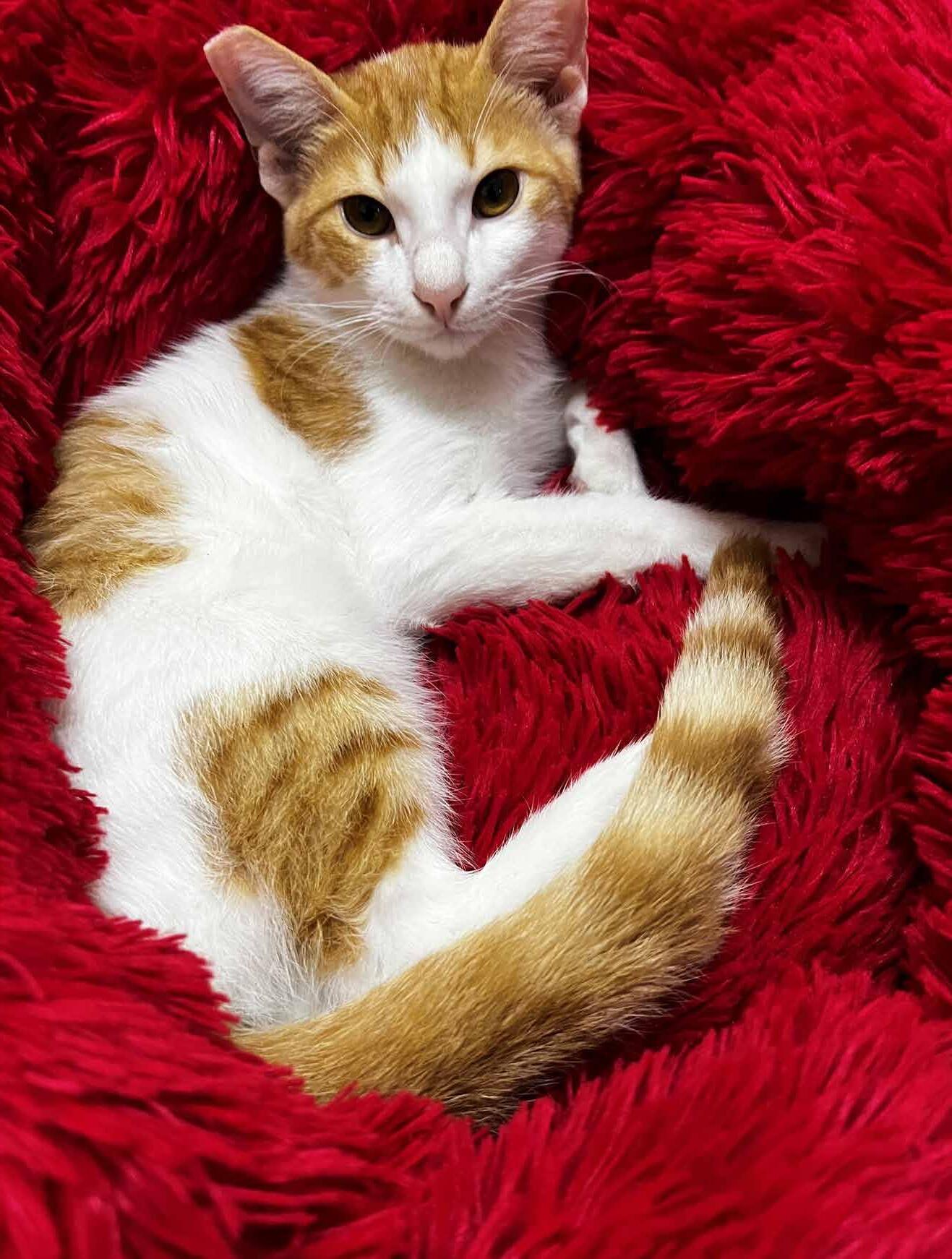
For local adoptions, Kwagga works closely with the necessary bodies for a rescue rate where the cat can be vaccinated, spayed, microchipped, and be issued their Dubai Municipality tag and their pet passport for AED 450. If people aren’t willing to pay for these procedures, he gets put off allowing people to take the cat because if the cat gets sick, the vet’s fees are likely to be a lot higher. “If a
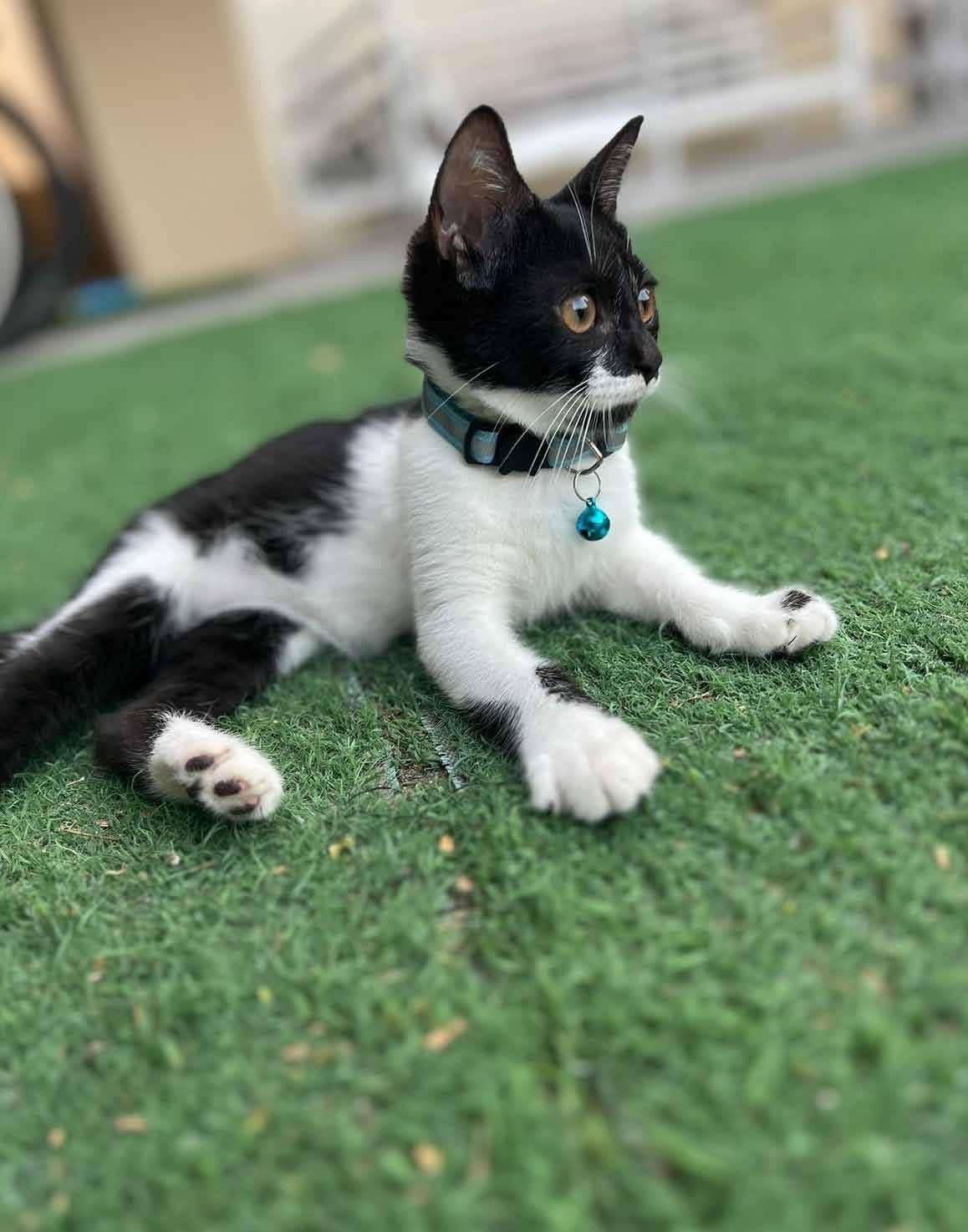
person is willing, I make sure I do a home visit via a Zoom call to see where the cat is going to live. I ask how many hours a day the cat is going to be left alone. I ask if they have children and if the house is pet friendly,” he added.
The one other factor preventing people from adopting, or even fostering, is the unfortunate number of buildings in Dubai which are not pet-friendly. “I never understand why pets having is an issue because in every building there is a security deposit; if my cat damages your property, use the security deposit. But, this is another issue to be raised with the valid authorities. I think with a great system of communication, and the right sources of information being put out there, we can actually make a difference,” said Kwagga.
23 FEATURE
in touch: @kevinofdxb
Get
THE KIDS ARE OKAY
TED Talk presenter Rashed Al Raeesi talks about living life his own way while satisfying his thirst for life
 BY JESSICA COMBES
BY JESSICA COMBES
24 FEATURE
Rashed Al Raeesi, 28, embodies everything that is right with his generation, starting with his desire to study abroad for his degrees. He went to Liverpool, conveniently the town of his favourite football team, where he did his bachelor’s in criminology, communication and media.
“I like to think out of the box and criminology is not only about crimes, but it also addresses equality, gender equality, and sociology. It addresses how people live in this world living in this world, not only blood, or crime, or only the negative,” he said.
Al Raeesi said that it seems that some women think that men should remain stoic. “In our culture, many people say ‘You’re a man, you’re strong. You should not cry; you should not show your emotions. You should not complain to a woman – to your mom, wife, girlfriend, or sister. They should come to you. But I think men can express their emotions. They’re allowed to and this is the first stereotype that we need to break. When I feel bad or sad, I don’t go to my father. I go to my mum.”
Al Raeesi considered his love for people when he signed up for his master’s degree where he studied diplomacy and security. “I’m a people person. I like, after people I like to learn about different cultures, so diplomacy felt like the right thing to do, not only in terms of being a diplomat and being deployed to different countries but because we need diplomacy in everything in life. I want to have a general knowledge of what’s happening in the world.”
This mindset served him well when he returned from the UAE to do his national
service, a life that was totally different to anything he has done before or since. “Your military service turns you into a new person. One minute I was a guy enjoying life in the UK and the next there was someone in the military controlling you. But you only realise once you’re out how it was for your own good – it builds character and personality, which will help you to lead in the future as well. You learn just how much you can handle. The big thing is punctuality. I thought I was pretty punctual in the UK because the Brits are quite punctual, but the military was next level. I would do it all again, though. This country has given me everything, what’s one year and four months for national service? It’s nothing.”
FUTURE GOALS
Al Raeesi honestly thought after his master’s and national service he’d kick back for a bit and take some time off, do a couple of courses or possibly publish a book, but he couldn’t. He’d built up momentum between working and studying and hitting the brakes simply wasn’t an option.
With each of his endeavours
Al Raeesi knows the only competition he has is with
himself. The only person he compares himself to is the person he was a day, a week, a month, a year ago and he focusses on the goals he has ahead of him.
“My plan is to continue to work hard to develop my personality and character and to continue to serve my country. I want to serve and help my country with initiatives and new ideas in terms of developing the youth. I have my goals, but after every goal, I have a new one. I just keep going, even if I fail because then I aways learn something,” he said.
One of his initiatives is to resume volunteer work and humanitarian initiatives which he has done in different parts of Africa but was put on hold because of COVID.
“The media didn’t show us the right image of Africa, to be honest. Africa is beautiful; Zanzibar has beaches that look like the Maldives. It’s amazing. The people have very little, but they are still welcoming and very generous. I would love to visit again and continue the housing projects in Zanzibar,” he said.
Get in touch: @rashid7j

My plan is to continue to work hard to develop my personality and character and to continue to serve my country.
25 FEATURE
ADVOCATING ARTISTS
Ahmad Al Rashid talks about developing Talk
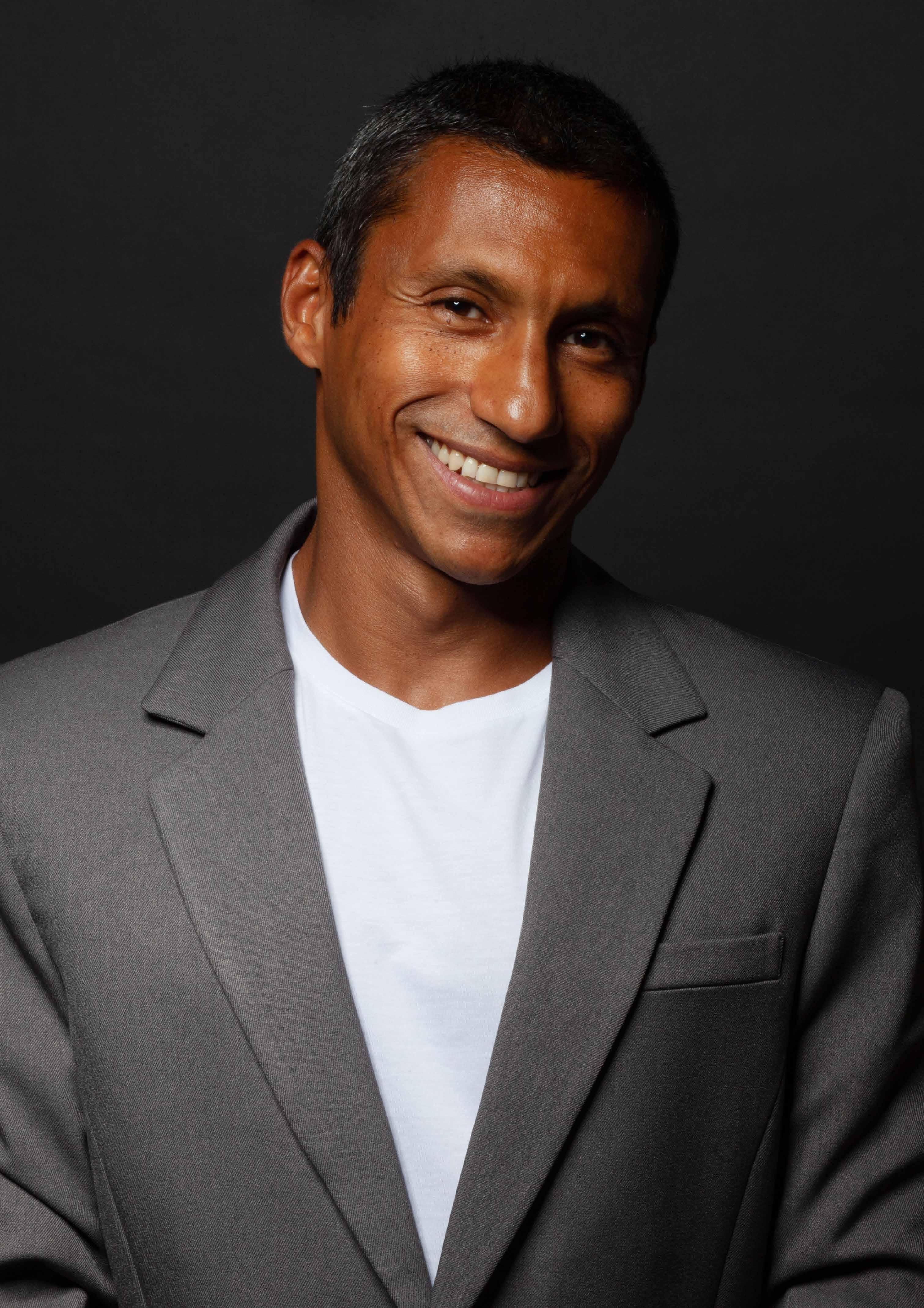
Curated Creatives to provide a space to foster artists across all media
BY JESSICA COMBES
26 FEATURE
When Ahmad Al Rashid left Kuwait at 17 to study in France on a scholarship, it was years after being desperate to get out and see the world to satisfy a curiosity he says he was born with. “I always loved art and I always wondered how I could see art, touch art, and meet people who made art,” said Al Rashid.
He remained in France for eight years where he studied event management, design, and public relations, before returning to Kuwait at 26 as he describes “a completely different person” where he continued to work in events and weddings for two years.
He then returned to Europe where he lived and worked I Italy and Amsterdam, where he credits becoming a better adult owing to the Dutch people being very direct and liking structure, before finally coming to Dubai in 2018.
His Dubai journey really kicked off after COVID in collaboration with Foundry Downtown Dubai. “I wanted to record a podcast where I would share inspiring, post-COVID stories of artists living in the UAE. I think we needed positive and sad stories because behind every there is a lesson,” he said.
Since then, he has met so many artists and curators and directors and he started helping galleries after the pandemic by curating dinners and arranging Zoom calls and creating a network. From there his agency, Talk Curated Creatives, was born with an aim to help artists participate in international events. Last year, during World Art Dubai, he curated the urban art space with a focus on graffiti.
During the event, he met all the emerging artists to see the problems they had. “I wanted to know why, with the incredible creatives in Dubai, are there only two events that meet their needs. There is a gap where thousands of people are looking for spaces, so I use my platform and my branding
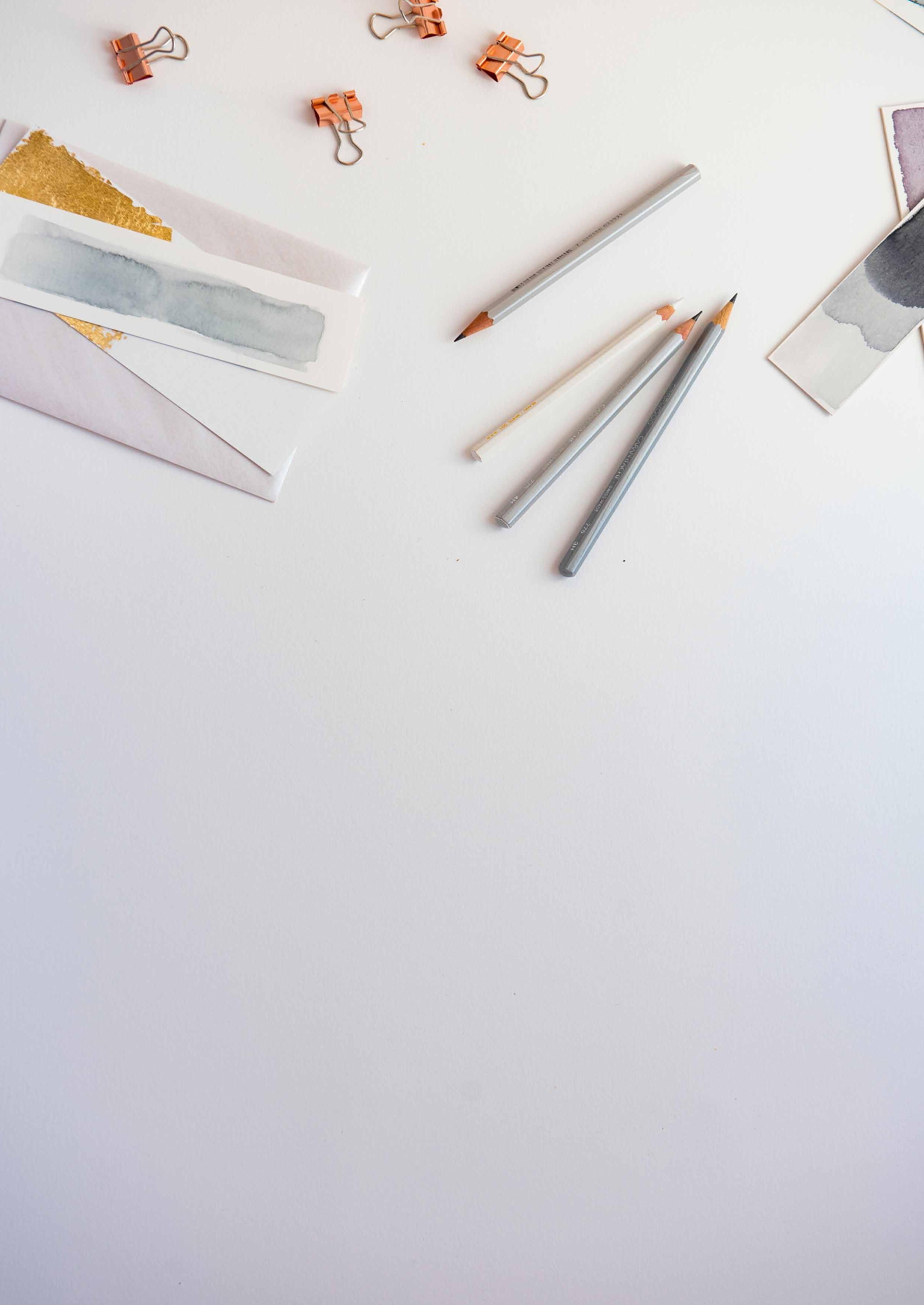
to help them. Many artists don’t know how to sell and be an entrepreneur, but they have to if they want to survive. It’s not enough just to be good at art, you have to understand the business side as well and now I’m creating space to support all artists within the ecosystem,” said Al Rashid.
AHMAD AL RASHID’S ADVICE FOR ASPIRING ARTISTS:
1. Be open, observant and curious to new ideas and beliefs.
2. Be true to yourself but also be aware that you are part of a bigger community.
3. Learn to network and learn to make people believe in you as much as you believe in yourself.
Get in touch: @talkative_with_ahmad
Clothing: @thegivingmovement
PR: @theqode
It’s not enough just to be good at art, you have to understand the business side as well and now I’m creating space to support all artists within the ecosystem.
THOROUGHLY MODERN MAN
Fitness and Lifestyle Influencer & Founder of Anasharqi, Emile Zarife, talks about how men should embrace all aspects of self-care and its correlation to feeling good
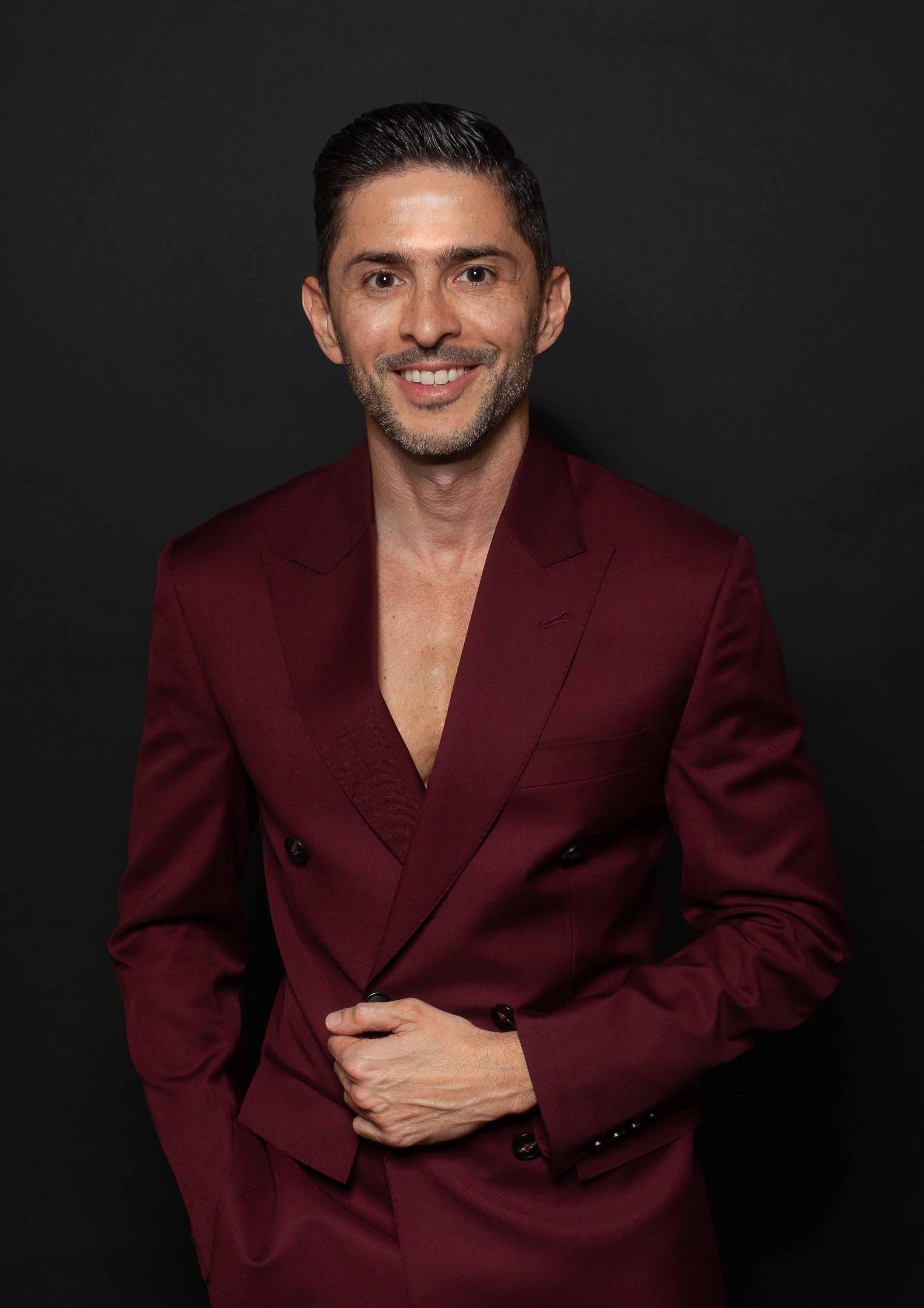 BY JESSICA COMBES
BY JESSICA COMBES
28 FEATURE
Lebanese-born social media influencer and healthy living advocate, Emile Zarife is dedicated to encouraging Middle Eastern men to evolve their masculinity without losing sight of their Arabic heritage although that wasn’t initially his goal.
In 2015, he launched AnaSharqi.com, which translates to ‘I am Middle Eastern,’ an Arabic lifestyle guide. What started as a platform about fashion, wellness and self-care quickly grew to include the importance of prioritising fitness from the perspectives of both physical and mental health.
Speaking to Zarife, it is apparent that he is completely comfortable with who he is, both within himself and as a Middle Eastern man. He is centred, open, engaging and candid, particularly on the importance of men establishing skincare routines, something he wishes he had done sooner. “I’m 38 now but it was only recently that I started using the right products for my skin,” he said adding that “Every man should look after his skin, it doesn’t make him less of a man.”
KEEP MOVING
As a fitness influencer, Zarife regularly reminds his followers of the benefits of staying active and the positive effect
exercise can have on their lives. However, he also takes a refreshing approach to encourage people to adopt an active lifestyle, which includes not imposing his six-day-a-week workout regimen on anyone. “Choosing a healthier lifestyle needs gradual changes. People try to go from not exercising to exercising for an hour a day, or not eating well to eating very healthily overnight and that just leads to frustration. Gradually adopting healthy habits are key to success when it comes to fitness.”
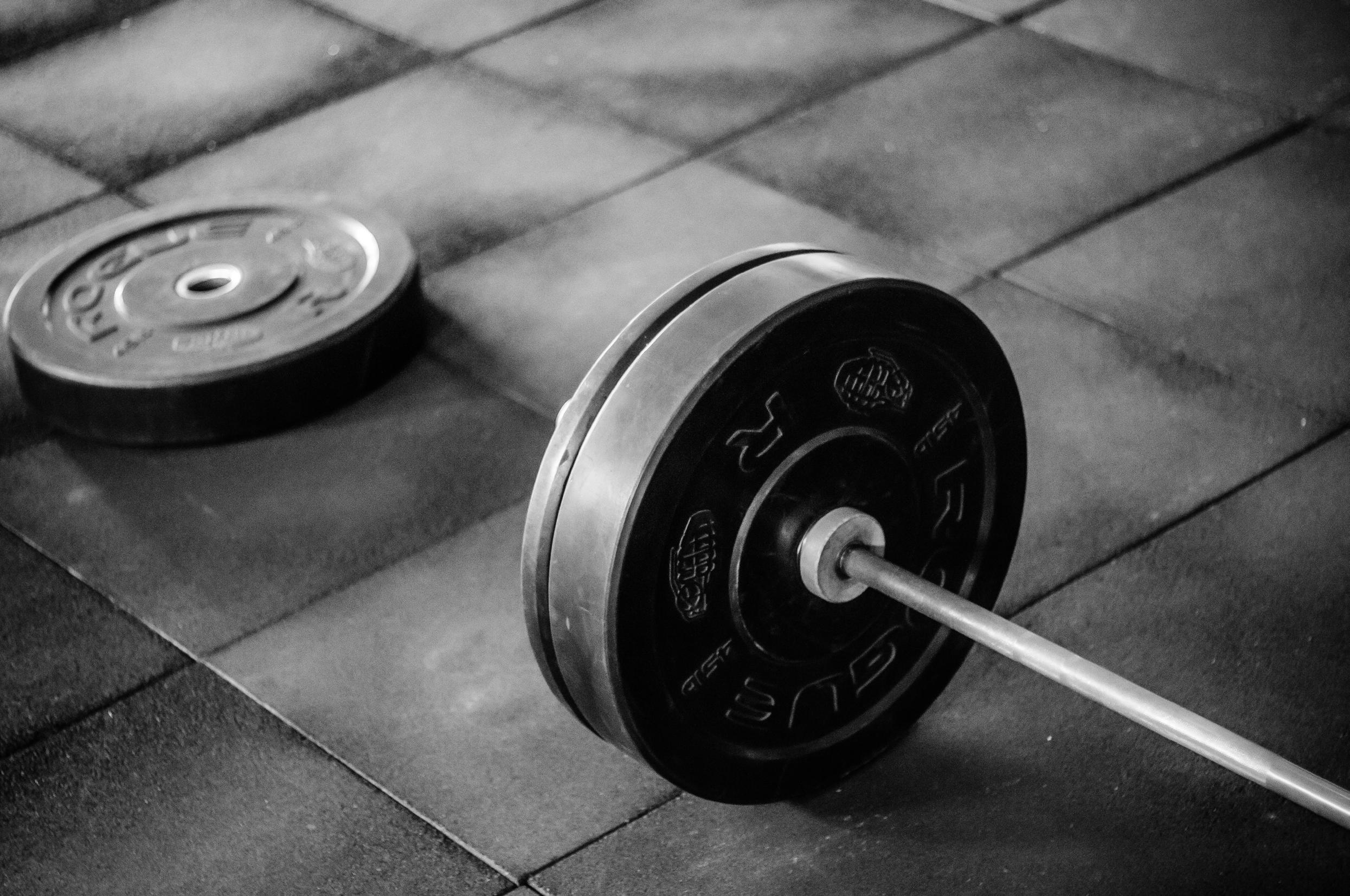
Speaking up and expressing emotions are equally important when it comes to maintaining mental health, and Zarife admits it’s taken work over the years to speak openly with confidence, having been shy initially about upsetting the people around him.
Ana Sharqi is a space that addresses the harmful stereotypes about Middle Eastern men not showing emotions because to do so is considered weak and goes against the role they have to fill in society. “But these men are humans who feel different things and face different challenges and have to manage their mental health just like all of us. It’s not weak to talk about the problems you are facing, to be vulnerable or to cry,” said Zarife.
Zarife stressed that good mental well-being does not mean just being happy all the time and never feeling anything negative, but rather it is an overall sense of feeling good and functioning well both individually as well as in relationships, the ability to deal with the ups and downs of life, as well to have a good connection with your community and having sense of purpose and feeling value.
As an extension of this ongoing conversation, Zarife also recently launched SharqiTalks, a podcast dedicated to Middle Eastern men, where he can discuss the topics around male mental health, toxic masculinity, wellbeing, fashion, fitness, and selfcare in depth. “I hope in 2023 that Middle Eastern men will embrace their masculinity while enjoying looking good and not worrying about what society will think of them if they express any emotions.”
Get in touch:
@ana_sharqi | @sharqitalks
Clothing: @ascotsandchapels
FEATURE 29
I hope in 2023 that Middle Eastern men will embrace their masculinity while enjoying looking good and not worrying about what society will think of them if they express any emotions.
ROLLIN’ AND ROWIN’
Egyptian rower hopeful, Ahmed Magdy Helal, 32, talks about balancing his training to reach his Olympic dreams with building a love of rollerskating in Dubai
Tell us about your work/business – what inspired the idea and when did you start it? RollDXB was conceived in 2016 by three Emirati women who had the dream of bringing roller skating to Dubai and creating a space where

everyone can have fun and be themselves. All three women grew up skating in the street of Dubai, in parks such as Mamzar and at the rink that at Wafi City Center in the 90s which has since closed.
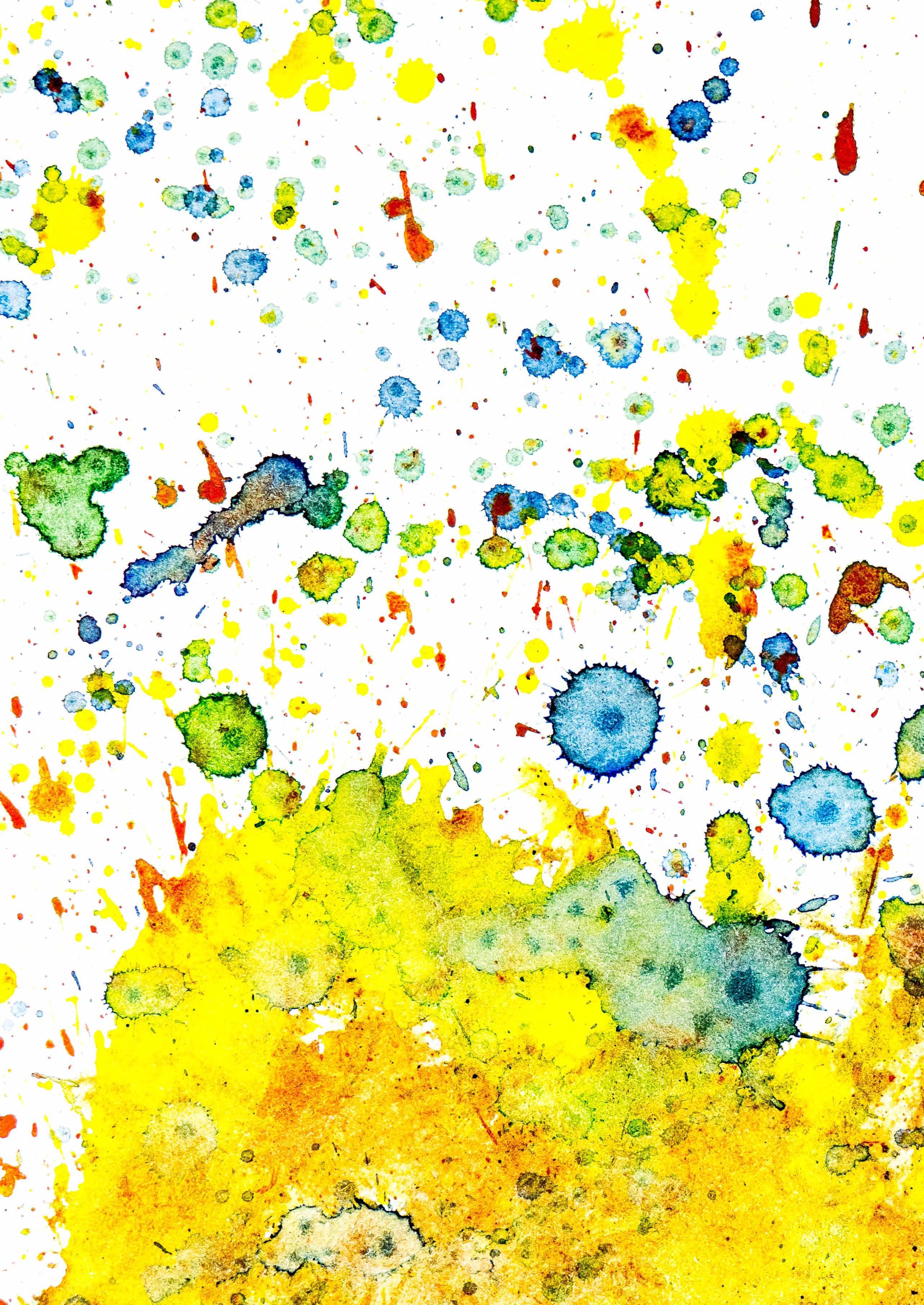
30 FEATURE
The first stage involved spreading the love and culture of skating with popup rinks and events around the city, where people could join in the fun for free, and everyone was invited regardless of their age, gender, interests, or nationality.
RollDXB as an indoor venue and home to all skaters was opened in April 2021, and was the first indoor roller-skating rink in the country and took the city by storm.
I joined RollDXB in June 2021 as Operations Manager and soon proved to be capable of being the General Manager of RollDXB academy, which we started in August 2021 to introduce skate enthusiasts to the concept of quad artistic skating and skate jamming.
What do you consider to be your greatest personal and professional achievements?

Aside from becoming a partner at RollDXB and building the academy, I’m an avid rower and was the Egyptian national champion in 2010, 2011, 2012, and 2013. I qualified for the 2008 Beijing Olympics and was the runner-up at the International Rowing Championship in Tunisia in 2009. That same year I took part in the World Championship in France. In 2020 I took part in the World Rowing Indoor Championships without a coach. I’m also participating in the UAE Rowing Championship for the 2023/2024 season.
What were your biggest business challenges? How did you overcome them? The biggest challenge was juggling working at a startup and training to compete at the Olympics. I shared my aspiration with the owners and other team members, so they were fully aware of my situation. Accordingly, everyone tried to help and volunteered to help in different ways.
How do you manage the daily stress that comes with running a business and training for the Olympics?
I try as much as I can to compartmentalise my thoughts so that I can focus on the task at hand as it can be overwhelming to think about everything at the same time. I also make sure that I am organised but still open to change, so I am not thrown off guard if I need to have a different routine.
I’m able to trust and rely on my team at RollDXB by delegating work to them, so I am able to have time to train. I also make sure that I have time for myself and enjoy time with my friends so that I can recharge.
What advice were you given when you started, and did it help?
I was told to find a mentor and it was the best advice that I received. It is like having a coach but for your career. I recommend having one mentor from the same industry and one from another to learn new things.
This year has been labelled as the year of sustainability. Has that changed certain rules and practices for you and your business?
In general, all founders of RollDXB are green – so we try to reduce our electricity usage and waste. We made a recommendation to the landlord to put solar panels on the warehouse and believe it or not, we tried writing to Elon Musk to ask for advice on reducing electricity usage.
What is important to you?
I value having peace in my life and not losing it over toxic jobs, relations, or quick fixes.
I am working towards my goal of becoming an Olympian again, a goal that was side-tracked by the pandemic. I am currently training two-to-three times a day with the help of two coaches who live abroad –one in Egypt and the other in Denmark. I also travel to train at specialised rowing camps throughout Europe to gain access to global rowing champions.
What inspires you? My family and my partner who support me in every way and stories of underdogs making it.
Do you prioritise your mental health, and how? Yes, of course. Your mental health is actually very critical to your performance. I know there is an assumption that we need to achieve things to be happy, but in reality, you need to be happy to be able to have a clear vision and make the right choices.
My go-to activity is walking on the beach or swimming in the sea. There is research that has proven that seeing water actually helps with stress and other mental health issues.
Get in touch: @_magdeehelal | @rolldxb
31 FEATURE
“I KNOW THERE IS AN ASSUMPTION THAT WE NEED TO ACHIEVE THINGS TO BE HAPPY, BUT IN REALITY, YOU NEED TO BE HAPPY TO BE ABLE TO HAVE A CLEAR VISION AND MAKE THE RIGHT CHOICES.”


32 HOSPITALITY
“THE DAY THAT YOU FEEL YOU'RE PERFECTLY READY FOR A JOB, YOU'VE TAKEN TOO LONG TO MAKE THAT DECISION.”
AT HOME IN HOTELS
Guy Hutchinson, President and CEO of Rotana Hotels discusses following his passion and forging his own career path
BY JESSICA COMBES
Guy Hutchinson, President and CEO of Rotana Hotels considers himself homeless, not in the literal definition, but every time somebody asks him where he is from, it’s not an easy question to answer. Born in Venezuela, he has lived in Brazil, Peru, Paris, the UK, and South Africa owing to his family relocating often. The constant moving gave him an appreciation for being in different places and he knew he wanted a career that involved travel and international exposure.
He had to start with asserting his independence and move away from the presumption he would follow his father’s footsteps into the family business. “I’ve always been one who’s been focused on quality of life. I think if you have passion and you find that thing which really works for you, that is the key to success. It delivers that internal drive and ambition, whether that’s hotels or accounting or banking or filmmaking, or whatever it is. What is ultimately going to define your success is going to be your passion for what it is that you’re doing. If your child expresses that to you, any parent has to support it because happiness, success, and confidence are built out of that space. Right. I asserted that quite early in life in terms of what I wanted to do,” said Hutchinson.
It’s a nerve-wracking conversation for many teens to tell their parents they don’t want to follow a predetermined path but Hutchinson maintains it’s an important conversation to have. “I told
my family I wasn’t going to be an accountant. I think that’s probably one of the best decisions I ever made. I could have wasted four or five years going down a path that didn’t excite me out of conditioning or a sense of responsibility, but that’s time you never get back,” he said.
LOVE WHAT YOU DO
When he considered what he wanted to do and reflected on the time he had spent in hotels while growing up, what he really appreciated about his life experience was the interaction that hotels offer. He was fortunate enough to be accepted into a fast-track graduate intake programme where he was one of 12 selected from around the world.
“From that day to today, there’s never a day that I don’t enjoy what I do and there’s never a day that I don’t look forward to doing what I’m going to do. I was fortunate to have connected with that very early. I was based out of London for six or seven years, then I transitioned to Europe and joined Hilton International in Amsterdam, and it’s a great company that took me around the world,” he said.
Hutchinson considers himself fortunate for having such a multicultural upbringing that he’s been able to carry into his career. He had to adapt to so many cultures so many times; he never internalised stereotypes because I wasn’t in those environments that were reinforcing them for long. That shapes a very fluid cultural identity because he lives a life of constant change.
For young professionals starting any role, Hutchinson’s father told him there is a huge difference between 10 years of experience and one year of experience repeated 10 times. “At 28 I was running F&B at one of the leading hotels in London and people who were 40 and had been doing the job for almost 20 years would say I was only 28. You’ll constantly face that from older generations, who are less fluid or have a different perception of what it takes to build a career, and I have always challenged that. The day that you feel you’re perfectly ready for a job, you’ve taken too long to make that decision. If you wait until you’re ready, it’s too late,” he said.
3 Pieces of advice for young men entering the workforce:
Be assertive:
If you have a passion, trust your gut if that is something you believe is right for you, and follow it through.
Apply yourself: Education gets you through the door where 100 people are together with you – perhaps better qualified and with a greater intellectual capacity. But the application is such a strong differentiator.
Compartmentalise:
Good application doesn’t mean being a workaholic. Having balance and personal pursuits won’t offset the trajectory of a career if the passion and application are there.
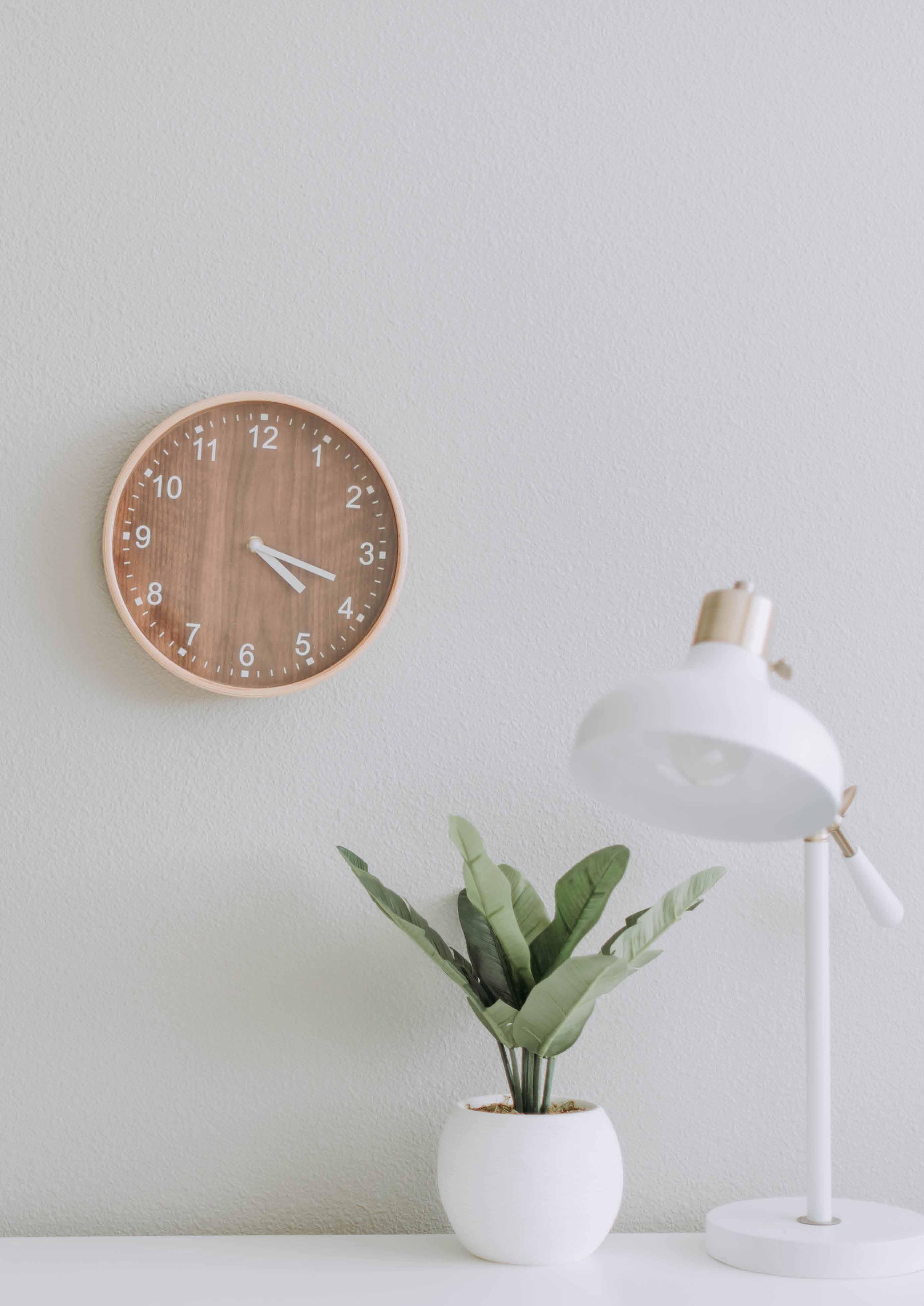
33
HOSPITALITY

34 HOSPITALITY
“I REALLY BELIEVE THAT AS EMIRATIS WE ARE NATURAL HOSTS SINCE IT INSTILLED IN US SINCE ADOLESCENCE TO HONOUR OUR GUESTS.”
THE EMIRATI WELCOME

Mohammed Al Qassim, 32, talks to us about Emirati culture and being the perfect host
Tell us about your business
– what inspired the idea and when did you start it?
I was inspired by the Emirati culture which offers a unique model of hospitality that combines modernity and authenticity. I thought that establishing a hotel near to the EXPO site would be the best opportunity to reflect my belief in the hospitality industry.
I really believe that as Emiratis we are natural hosts since it instilled in us since adolescence to honour our guests. The way we were raised gives us the advantage to raise the bar when embarking on such a business.
What do you consider to be your greatest personal and professional achievements?
I am so proud to see a hotel go from a sketch on paper to a completed building, to a successful hotel brand, with 250 hotel rooms, managed by qualified Emirati leadership. Whilst the physical product is important as an Emirati business, we have always followed Dubai’s lead in setting the standard. As a small business, we certainly were able to punch above our weight. A key focus of ours was to adopt new technologies and be the first in paving the way for others to follow. Last year we were the first hotel in the region and one of the first in the world to accept cryptocurrencies. Achieving such a feat meant much work was done to adjust systems and our distribution and always
ensuring any risk is mitigated. I’m immensely proud to say that our model is being used internationally.
What are the keys to creating a profitable business?
I believe the main tents for a profitable business are passion, perseverance, effectiveness, and great business idea.
What advice were you given when you started and did it help?
Be prepared to make tough decisions and never overlook small details.
How do you manage the daily stress that comes with running a business?
I found a work-life balance. Spending some time with family and practising sports are crucial to keeping your energy up.
If you look back over your life and career, if you were given the opportunity to do anything differently, would you?
I would apply all the lessons learned through my life and business journey.
What is important to you? With time, the importance of life balance became more pressing, especially with the birth of my kids.
Have your priorities changed as you have matured? If so, how?
I would say I am maturing because every day we mature and grow more, and the learning process has no end.
What inspires you?
I have always been inspired by historical figures who changed the course of history through grit, resolve and perseverance.
Do you prioritise your mental health, and how?
Yes, and that’s why, no matter what, I don’t compromise my daily sports sessions.
What 3 pieces of advice would you give to the younger generation that might want to follow in your footsteps?
1. Be ready to sacrifice some of your privileges and comforts.
2. Always think of alternatives to unimaginable situations.
3. Learn when to give up something, without giving up everything.
35 HOSPITALITY
SEEING SICILY
The heart of then and now
BY: KARAN AWTANI
Sicily. You are probably thinking about it if you have seen HBO’s rather engaging The White Lotus. Set in the picturesque town of Taormina just about an hour’s drive north from Catania airport where, as it happens, the wife and I found ourselves not too long ago. If you have a long weekend, or better yet a week, this part of Sicily makes for an engaging trip.

If you have seen the show you have a good idea of what Taormina offers. Think the Sicilian version of Capri. However it is a good idea to explore some other towns nearby to get a full feel for the region as we did by heading to Syracuse, or as it is known locally, Siracusa.
The best way to understand Siracusa is that the old city is contained entirely on an
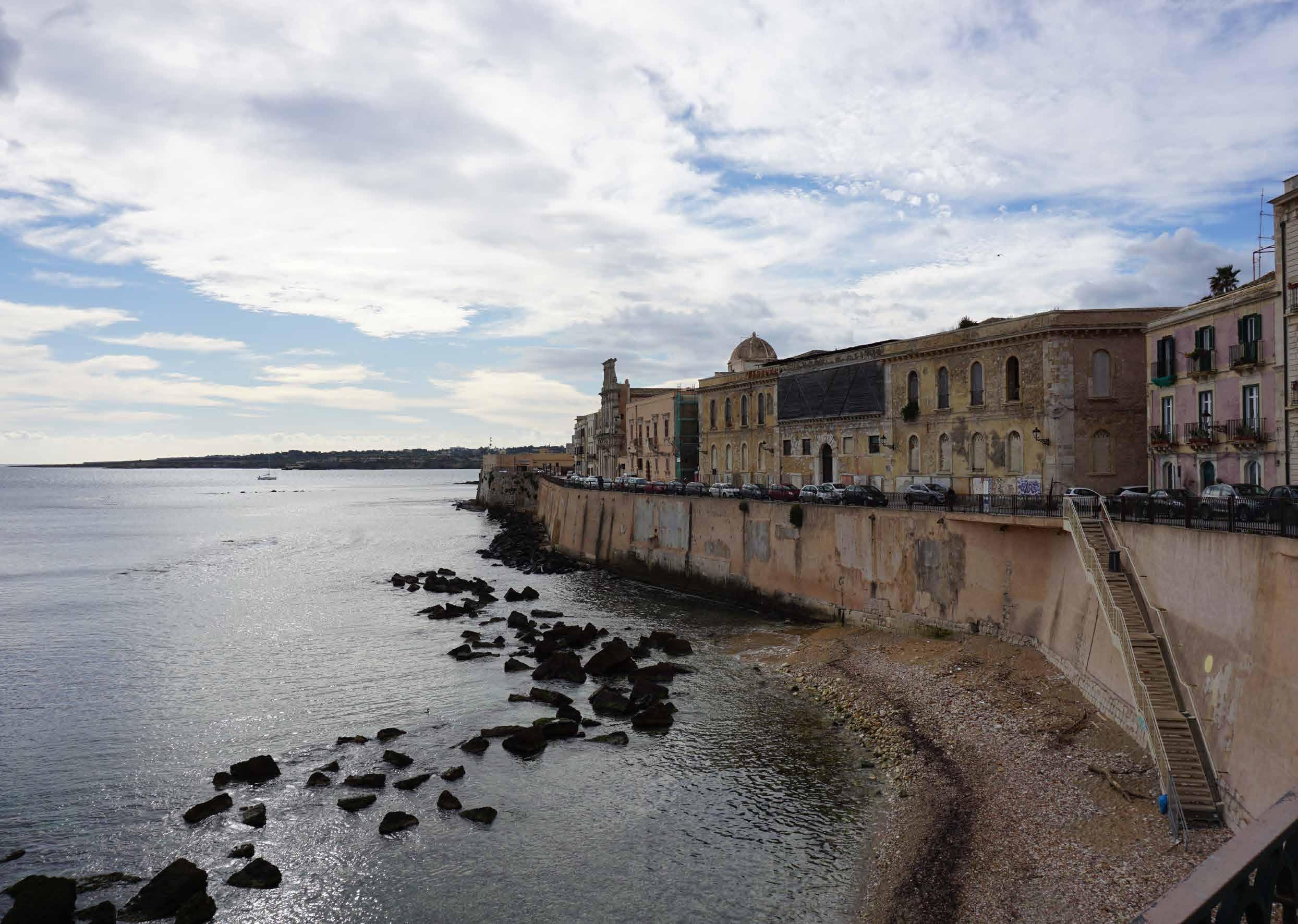
island called Ortigia. The island is longer than it is broader, making it very pedestrian friendly, making exploring the cobblestoned streets and alleys all the more enjoyable. An added bonus is that walking builds the appetite and Siracusa has plenty of restaurants and cafés to satiate the tastebuds.
Sicilian cuisine consists of a lot of fresh seafood, small
HOSPITALITY 36
game, and seasonal produce complemented by the finest nuts, pastries, and chocolatebased products. My wife, a lifelong vegetarian, found getting a good meal easy with plenty of menus offering varied antipasti, cheese boards, and numerous flavourful pasta dishes that touched heart and soul. For us carnivores, Sicily will provide a special opportunity to savour the bounty of the sea be it in restaurants or eating while standing in places such as the region’s many fresh seafood markets.
We spent time exploring the intricate and spellbinding baroque buildings where geniuses such as Archimedes lived and died, mistakenly killed by Roman soldiers instead of capturing him as per the orders, during the second Punic wars. Other not-be-missed sights are the many examples of fine architecture in and around the Piazza Doumo which is a great spot to grab a seat at a café and enjoy a apertivo as you people watch. However, do this after having visited the opposite Cathedral of the Nativity which was originally a Roman temple in its original incarnation. Yes, it’s that old.
Next door we also visited the church of Santa Lucia which has art by that bad boy genius artist of the 16th century, Caravaggio. Caravaggio painted in Siracusa during his stay here on the run from authorities in Genoa and Rome for charges as varied as fighting, causing grievous injury, murder, not paying rent, and vandalising the land lady’s house, among many others allegations.
A pleasant walk from Ortigia island lies the ruins of Greek Syracuse. With its wellpreserved stone quarries and amphitheatre, a visit to this site is nothing less than a trip back to 2500 years ago. The area is a large open-air museum, and one is free to walk around and strut on the stage, should one desire. I didn’t, the wife did.
The next day we leapt many millennia forward from Ancient Greece to the era of the Spanish Empire and found ourselves in the town of Noto which lies less than forty kilometres away from Siracusa. Noto offers visitors masterpiece Baroque architecture, fine chocolates and exquisite Sicilian pastries, so clearly an offer one can’t refuse. Legend has it that after the town was devastated by an

earthquake in the 17th century, the Spanish aristocracy was so shattered by the thought that their chocolate supply would be disrupted that they ordered the city to be rebuilt even more glorious than its previous state. There are various chocolate shops around town but the famous Caffe Sicilia, as seen on Netflix’s The Chef’s Table, and the more discreet Pasticerria Kennedy are worthy places to find something sweet to sink your teeth into. In between all this, do not forget to get your steps in by visiting the incredible Noto Cathedral and Nicolaci Palace which gives you an idea of how the upper crust lived back in the day. Noto isn’t huge, but it is built on a hillside so certain areas require a steep climb up, but nonetheless, we explored away as there was much to be found from restaurants to small local boutiques.
Between its layered history, charming piazzas, Mediterranean vibes, and incredible cuisine you will be spoilt for choice in Eastern Sicily. Fly Dubai flies conveniently directly to Catania airport, it’s never been easier to indulge all your senses on this timeless island.
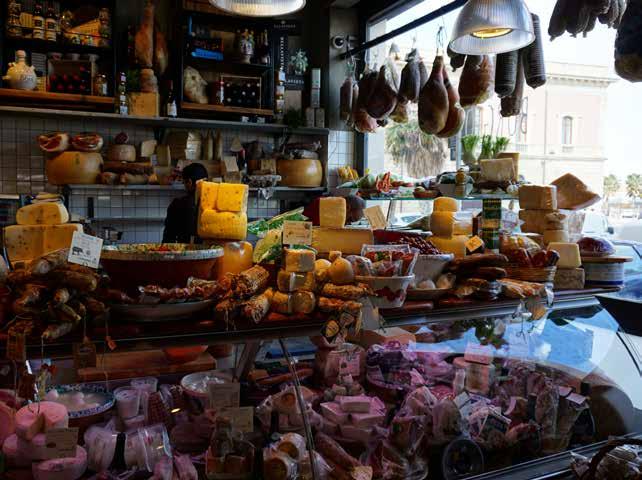
37 HOSPITALITY
“SICILIAN CUISINE CONSISTS OF A LOT OF FRESH SEAFOOD, SMALL GAME, AND SEASONAL PRODUCE COMPLEMENTED BY THE FINEST NUTS, PASTRIES, AND CHOCOLATE-BASED PRODUCTS.”
OVERINFLUENCED AND OVER IT
Our resident tea spiller, Sid Marlowe, has had a frontrow seat to some ghastly influencer behaviour of late, and it needs to stop
“No. Do it again.”
It wasn’t what she said, but how she said it – that shrill, invasive voice barking out displeasure at a volume designed to make a scene in a very public place. A public place in Blue Waters where I dined with a companion, hoping to catch the last of the drone shows before the end of the festival. That terse, nails-down-theblackboard screech came from the table next door.
The overly rouged mutton masquerading as lamb, poised just so, sat staring into the iPhone that had just been handed to her. “No. No! Just do it again,” she yapped. “Get the light right this time,” she added, yanking a blinding ring light closer to the topaz cocktail that was her subject for whatever mediocre seen-it-a-milliontimes-before video she wanted this poor lad to film for her.
My goodness! We’d stumbled upon a genuine “influencer in the wild” as their detractors like to call them, and not just a mere TikTok wannabe with a long-suffering Insta-husband filming her. No, this was something more. This was a digital princess, replete with paid staff who were – if her harpy-like verbal assaults were anything to go by – failing her in every way.
Next to her, but well out of the camera frame, sat a
frail assistant juggling a notebook, vape pod, and make-up, and across from her, the junior videographer-cumlighting-technician. What manner of production were we witnessing? Well, I’ll tell you. For the sake of clout, we were witnessing the debasement of two young professionals by a rude, entitled nobody taking up space and attention in the hopes of becoming Dubai’s next social media darling. Instagram has a lot to answer for.
Plums, I am so exhausted by the whole gaggle of shallow fakeness vomited onto social media and Netflix specials by the Illiterati, and vapid man-bun-toting jocks and duck-faced-never-beens broadcasting their quoteunquote reality TV lifestyle and ignorance into our lives through our screens.
We didn’t get to see the drones, in the end. We completely missed the show, so enthralled were we by this production in front of us. No, enthralled is the wrong word. What is the term for when you can’t pull your eyes away from a

38 SID SPILLS
"For the sake of clout, we were witnessing the debasement of two young professionals by a rude, entitled nobody taking up space and attention in the hopes of becoming Dubai's next social media darling"
car wreck? That’s what we were.
She sat through take after take, faking delicate sips of her drink, ensuring that the level never dropped below the rim. Every now and then her assistant would wave frantically for their waiter to bring over fresh ice and the whole contrivance would start all over again. The poor chap filming was visibly wilting in her disappointment.
Eventually, she deemed his take acceptable, added her filters and posted it to her social media accounts. Then they were done. They paid and left, having spent more than an hour in a prime location, and bought a single AED 60 cocktail.
Remind me again how influencers are good for business.
A friend in the industry regularly shares stories about the flood of social media beggars that fill his company’s Instagram inbox. “Do you do collaborations?” is influencerspeak for “I want free food, in exchange for an Instagram post that shows me off more than your product, shown to a fraction of the 9,500 bots that make up my 9,510 followers!”
When he declines them –politely, professionally, and with a grace that bears testament to the man’s ability to suffer fools
dispassionately, if not gladly – they so often want to argue with him, citing their follower count or some other version of a vanity metric that, I have to tell you plums, are meaningless when it comes to attracting real, paying customers.
I ask you this: have you ever chosen a restaurant because their latest Instagram Reel got one million views? Have you changed from your regular breakfast spot with good food to some over-priced, hard-tofind niche in a hotel because a random person on Instagram draped herself over their vegan açai? Of course not. But I’ll bet you’ve tried a new spot because a living, breathing person you know shared a story about the fantastic brioche she had in City Walk. Because that is influencing; that authentic post by a real person who went and paid for her meal, instead of begging for it.
But if you’re looking for someone to blame (because, plums, who doesn’t love a good blame game?) then that must fall on the hotels and restaurants that invite these vultures in, and who give them credibility that is undeserved, and who legitimise what amounts to nothing more than begging.
These self-absorbed pouting ninnies are not marketers, and the “benefits” they offer up by way of trade exchange are not benefits at all. As a restaurant, you don’t need a costly ad agency to get you out there – nor do you need the outrageous overpriced traditional media to sell your ads to people who have no intention of buying your goldleaf steak tartare. Sidenote: for the love of all that is real and authentic, please, stop with the gold leaf already!
Plums, all you need is one free morning and a few YouTube tutorials to teach you how to set up your own ad accounts on TikTok, SnapChat, and Meta for Facebook and Instagram, and with a tiny budget, and a quick tutorial on how to create a target audience in your area that is interested in your product, you can drop professional photos of your gorgeous food right where the buying public is – on their phones, all day, every day.
You don’t need a stranger on social media or any of her clones. Speaking on behalf of all your paying clients everywhere – stop ruining our dinners we pay you good money for by allowing these plastic princesses into your venues –we’re SO over it!
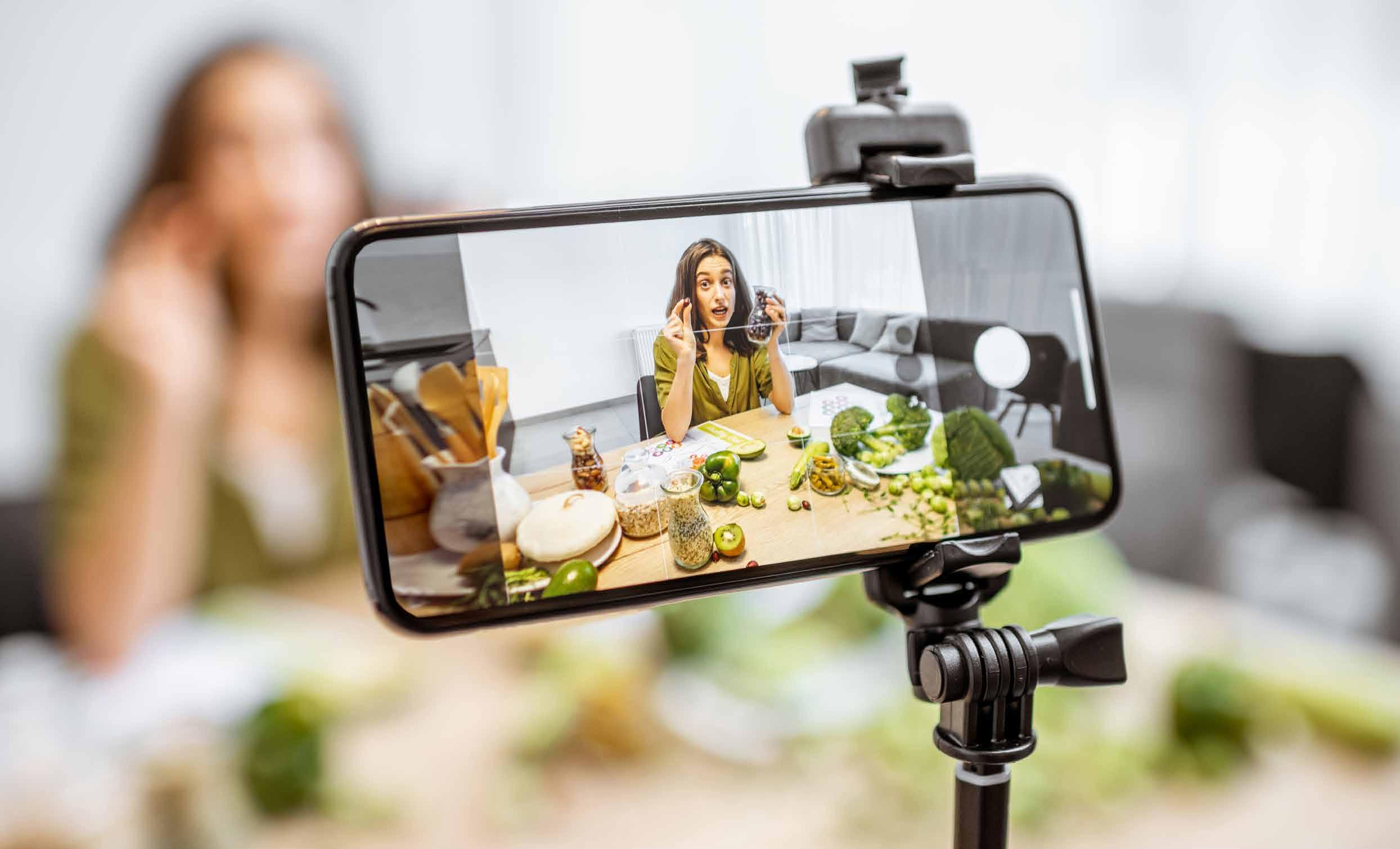 Photographer: Helen Ross – Envato Elements
Photographer: Helen Ross – Envato Elements
39 SID SPILLS
SOUNDS OF THE SAHRAA
Emirati composer Ihab Darwish, 47, takes us through a journey of music that delights the soul
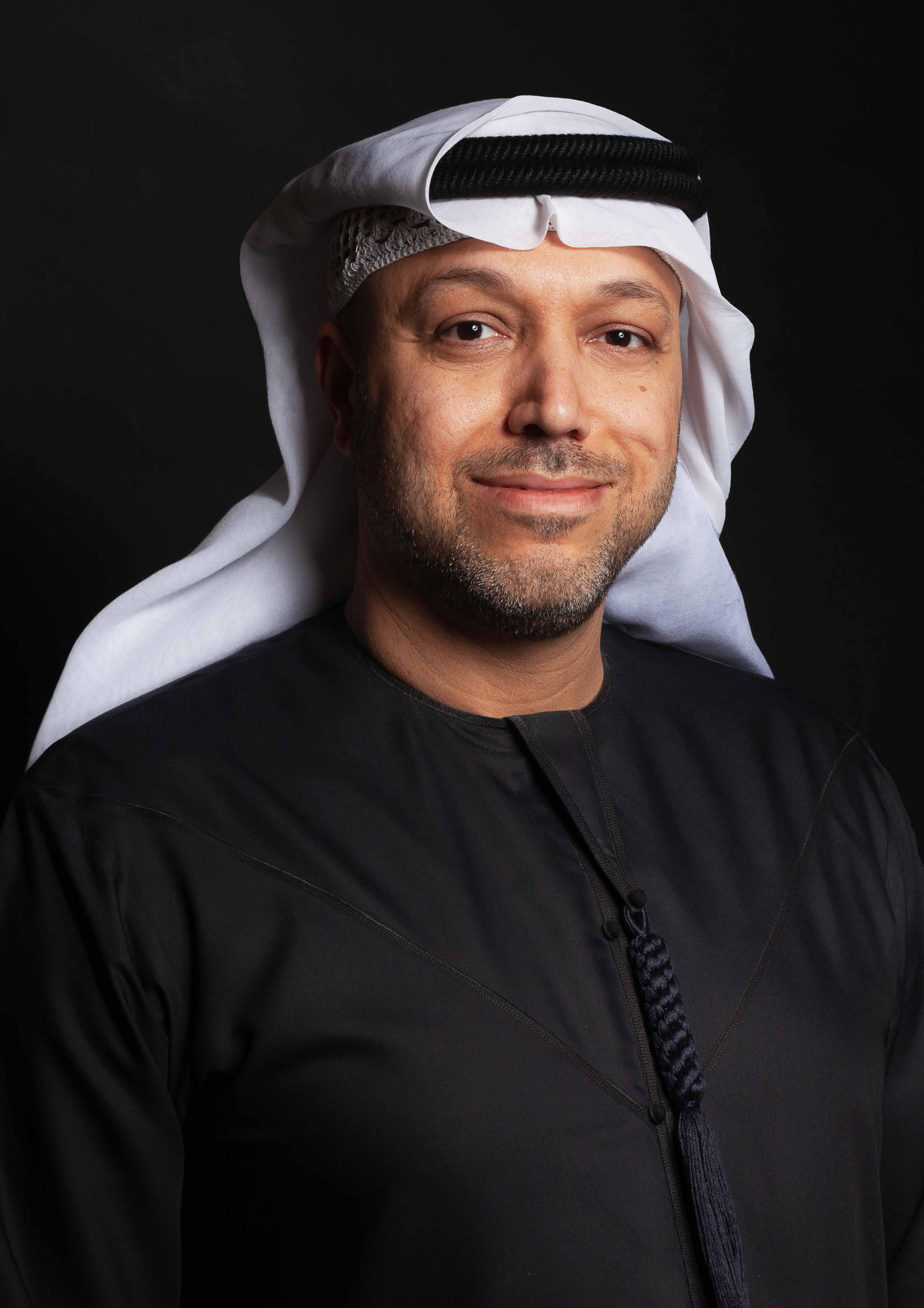
40 ART
Tell us about your business – what inspired the idea and when did you start it?
My passion for music started when I was 10. For years I practised it as a hobby, rather than a professional career. I was composing, experimenting, and playing the keyboard for classical and modern music at that time. Ten years ago, I developed my knowledge utilising technology and musical software with virtual instruments. I taught myself how to use them and to compose a full-scale symphony orchestra from the studio in my house, and I decided to take it to the next level professionally. I equipped my own home studio and then started this amazing musical journey. I was privileged to meet wonderful people on my path, and always felt destined to meet the team that I have now. I released my first album in 2018 and had a premiere concert in Abu Dhabi. Since then, I have published two more albums, worked with Hollywood composers, and created many songs for special events as well as for other artists.
What do you consider to be your greatest personal and professional achievements?
They are related. All the steps I took led me to work closely with international Hollywood film music composers, within only five years since I officially started. I was lucky to also work with some of the greatest solo artists in the world, and I received an invitation to be a voting member at the Grammy Recording Academy. When I think of it, I feel proud of what I did, in such a short time.
Thanks to Abu Dhabi Music and Art Foundation and specifically H.E. Huda Al Khamis Kanoo for supporting me all the way.
What are the keys to creating a profitable business?
Working as a professional composer, I would say to be authentic and work very hard every day, working with professionals and strategic partners on all levels. You need to develop both artistic and management skills to understand how to market
yourself, and everything else will follow. There is no shortcut.
What were your biggest business challenges? How did you overcome them? Having two careers at the same time is a big challenge, I work in Human Resources as well as a composer. I also need to make time – working on symphonic music is timeconsuming composing and writing for all the instruments while balancing projects and deadlines. But good teamwork makes everything possible.
What three pieces of advice would you give to the younger generation that might want to follow in your footsteps? Work hard, invest in, and believe in yourself. It’s not easy but it’s rewarding. Learn about the digital world and benefit from technology, it provides so many opportunities. Don’t be afraid of trying; just compose and let people discover you.
How do you manage the daily stress that comes with running a business? Music is my therapy. I go to my studio and just surround myself with sounds. In addition, I watch a lot of movies focusing on soundtracks and talk to my friends – it always helps.
If you look back over your life and career, if you were given the opportunity to do anything different would you?
To be honest, I am a big believer in God's will and wisdom, everything has its time and purpose. My musical career path started at the right time and place. I feel so grateful for all the experiences I have gained. Some were bitter, some sweet, but everything happens for a reason, and it is a lesson. I am privileged to say that I would not change anything.

What is important to you? Family, friends, moments of happiness, enjoying the journey, not just the destination. I surround myself
with people who wish me well and support me all the way. Have your priorities changed as you have matured? If so, how?
I don’t think not so much. I have always been committed to my country, family, friends, and the work I do. No matter what I do, I give it 100 per cent – that’s my character and style. My main aim through my music is to spread the meaning of humanity, virtues of tolerance, peace, love and positivity and to be the ambassador of goodwill, and to create bridges of cultures between the UAE and the world.
What inspires you?
It started with the nostalgia of my childhood, watching Japanese animation dubbed into Arabic, and continued during my higher studies in Lebanon where I started to fall in love with film soundtracks.
Abu Dhabi, my home town is one of the biggest sources of inspiration behind my compositions. In a short time, Abu Dhabi became one of the fastest and most developed cities, breaking limits with its urban development, and becoming a melting pot of cultures. The city prioritises knowledge, education, and futuristic progression, yet still maintains its traditions and rich Arabian culture which I reflect on in my music.
Five years ago I dedicated one of the pieces on my first album to Abu Dhabi, titled Abu Dhabi Renaissance, Beyond Limit which symbolises the growth of the capital. My country made me learn about different cultures and to infuse different styles and genres in my music symphonic compositions.
Do you prioritise your mental health, and how?
I try to keep a balance between work and life. I try to enjoy each step of the journey and plan activities not related to work like cinema, sport, and travel.
Get in touch: @ihabdarwishofficial ihabdarwish.com 41 ART
“I surround myself with people who wish me well and support me all the way.”
GAME ON!
Brett Magill discusses gaming, its potential for fostering toxicity and the example that experienced gamers are required to set
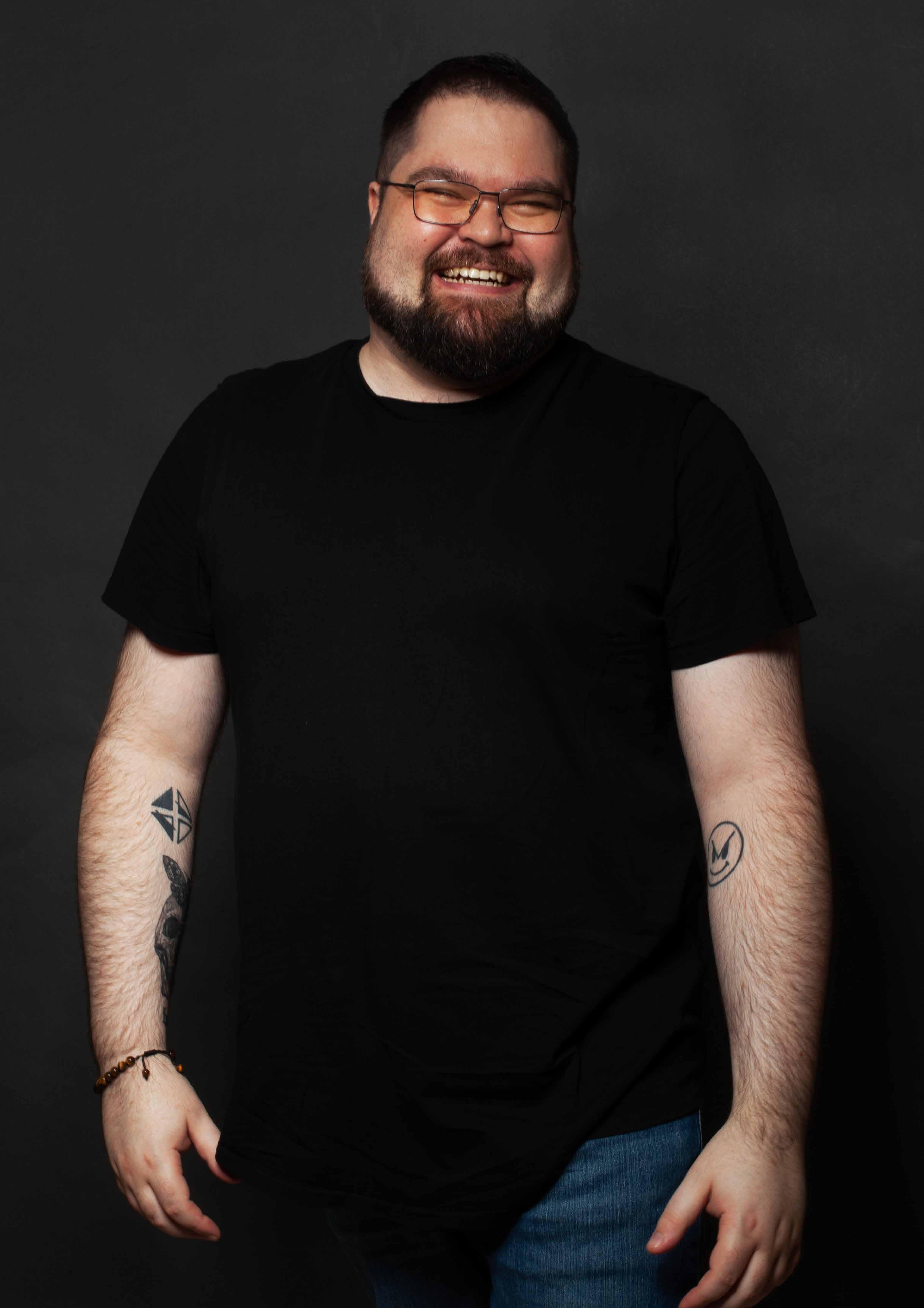 BY JESSICA COMBES
BY JESSICA COMBES
42 ART
Brett Magill, 32, has been gaming since before his hands could reach either side of the keyboard. His mother used to play games like Warcraft 1 and he would sit on her lap and she’d let him press the space bar to open doors. As he grew and could reach the keys on the keyboard, she would press the space bar while he played most of the game.
“I've been playing games my entire life. But, over time life happens and we don't always have the opportunity to play games. I think what I realised later in life is that it was it became more of a need because gaming provides an escape. I think a good example of this is Doom, my favourite game because it plays a lot into the power fantasy. These days a lot of people may feel their lack power in their daily life and Doom gives that to them. Of course, the psychology of gaming is still a developing field,” said Magill, who added, “a newer genre of games, called cosy games is on the other end of the spectrum where it allows users or gamers to look after pets or look after farms where they're able to live out an experience where they feel like they are contributing to something where in their real life, they may not feel that way.”
LET IT OUT
As time has passed and he had grown, Magill uses gaming for entertainment, stress management, and self-
expression. “I think another area of gaming to look at is mental health. I come from a generation of young boys that were brought up by men who were the product of their time. Globally, my generation was raised by men who were raised to behave in a very toxic way. By that I mean they couldn’t admit to not feeling okay. I think a lot of guys in my age group are starting to realise it's okay to feel.”
He explained that gaming, for many men when they were younger, created a space where it wasn't about all of the emotions they weren't allowed to express, which he said is where toxic gaming comes in.
“Before guys could call each other the foulest things in the universe because they’re not able to otherwise and it was anonymous. Now, we're all older and we have youngsters, who are behaving in the same way, and it’s not okay. I’m not talking about smack talk, that's different. I’m talking about abuse and the aspects of toxic gaming where people don't want to be called gamers anymore because they don't want to be associated with that kind of culture,” he said.
Magill strongly maintains that gaming is a beautiful thing, in part because of the aforementioned escape it provides, but also because it can provide a space where younger gamers can grow and come out of their shells and discover parts of themselves that they never knew.
However, in terms of addressing toxic behaviour,
he stressed that the gaming community is neither the entire solution, nor is it therapy – though thankfully it seems to be more socially acceptable for men to seek out the latter.
When it comes to his generation and what it means to be a responsible man in the traditional sense Magill said there is an onus on older players to call out abuse they see happening online by saying that behaviour is uncalled for and either invite those gamers to leave the lobby and play elsewhere or, a better approach, message them directly. “It's about setting the example as men to the younger generation of boys and men who are coming up so that we can break the cycle of not just toxic masculinity but toxic gaming. Let's try a little bit better next time and have that standard and hold ourselves accountable to that standard,” he said.
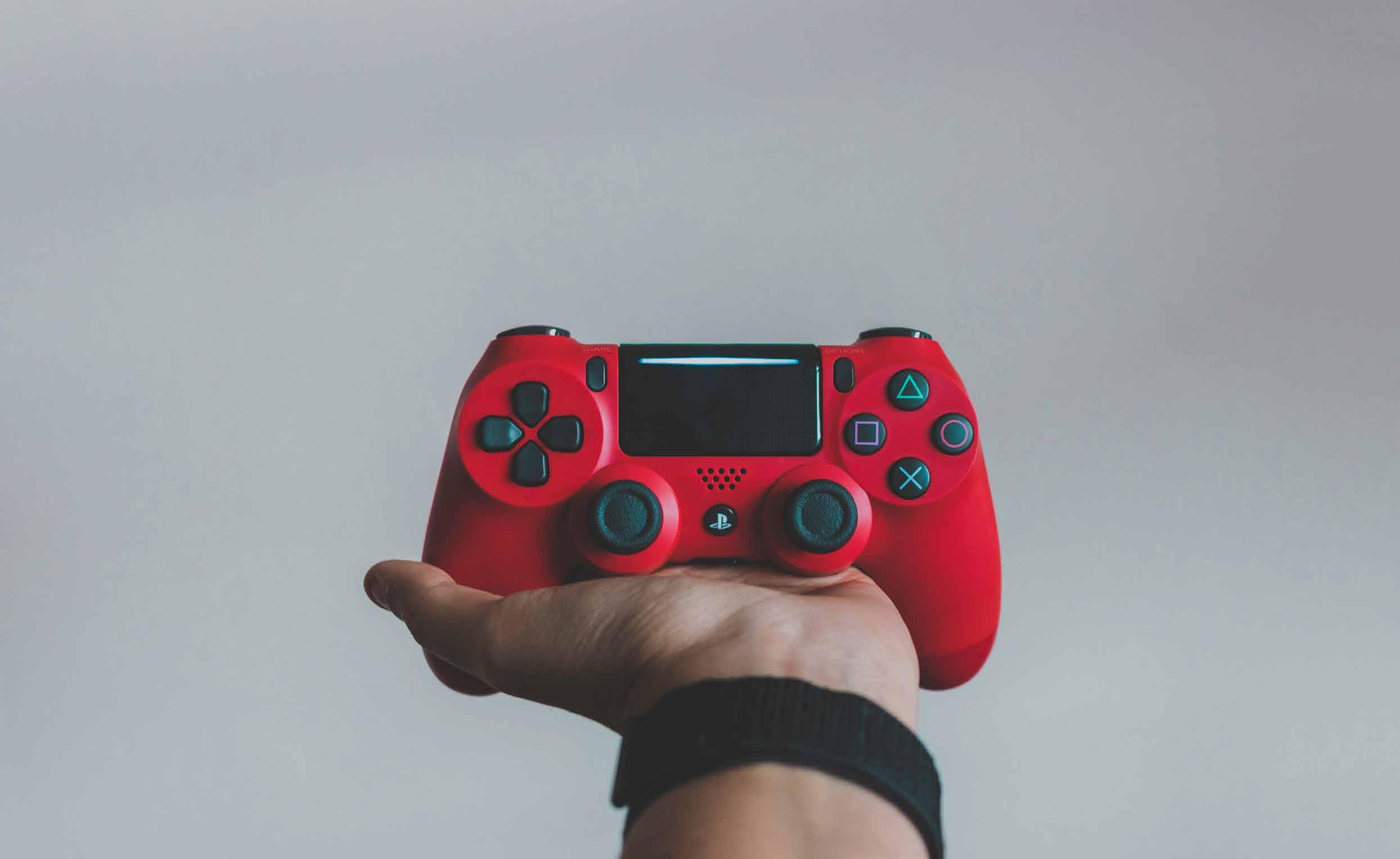
“I surround myself with people who wish me well and support me all the way.”
43 ART
Get in touch: @hellsmaw
FOR ME, SOUL ISN’T JUST A GENRE, IT’S THE IDEA OF MUSIC AS WELL. MUSIC HAS TO HAVE A PURPOSE; IT HAS TO HAVE A MESSAGE.
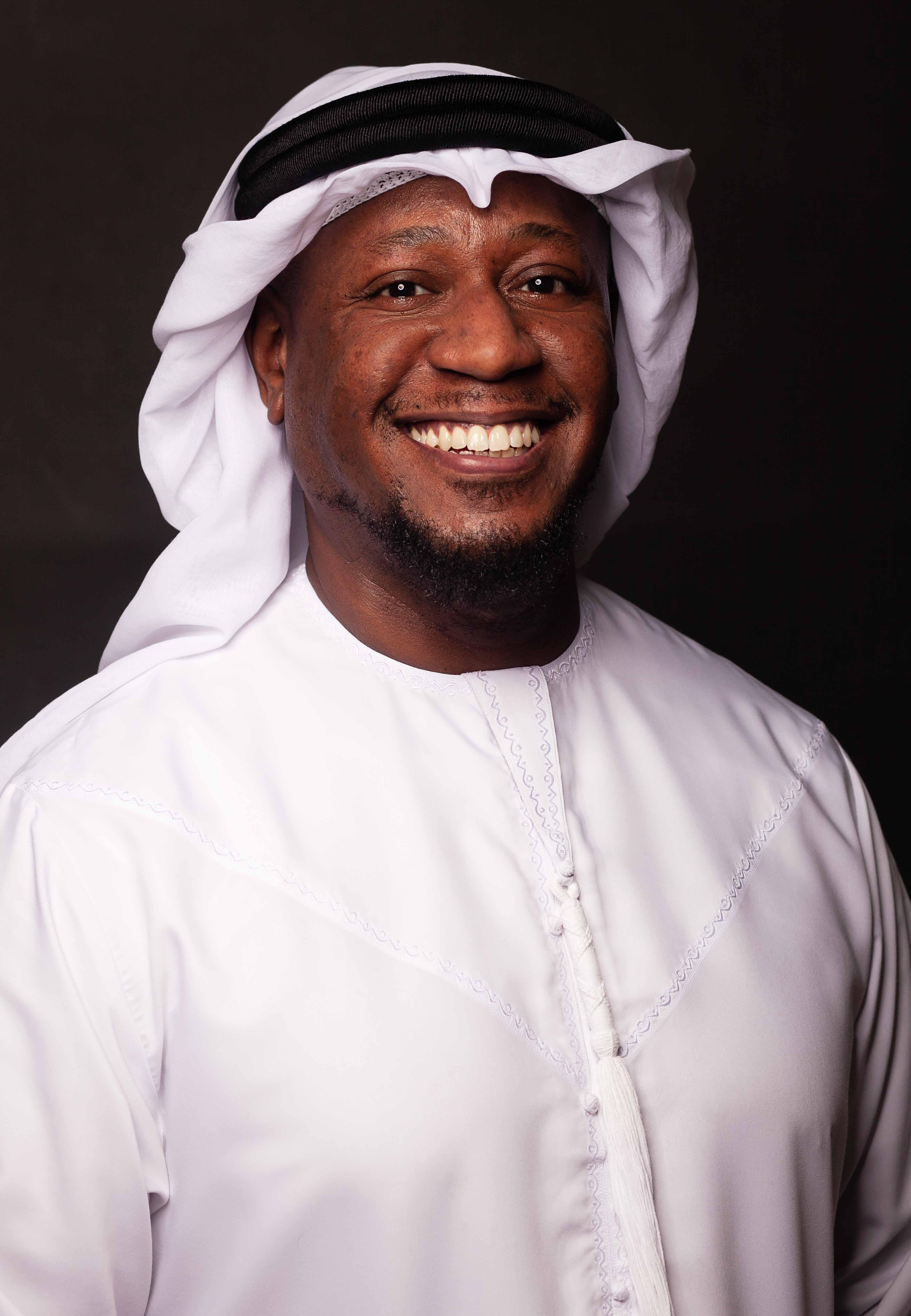
44 ART
VELVET VOX
Emirati soul singer, Arqam, talks about going vegan, how he started singing, and learning to love his voice
BY JESSICA COMBES
Arqam considers himself a bit of a late bloomer as a singer, which is surprising considering he his father and brother are musicians. He grew up around music and multiple instruments.
“I got into singing in my 30s. I used to hold bathroom concerts and that was it. But I realised singing came about when I was searching for a purpose. I wasn't happy in my corporate life; it wasn't like I was I wasn't making enough money or anything, it was the lack of fulfilment. It didn't make sense to me to look at myself 10 years down the line and still go through all that stress. Don't get me wrong, I loved the job, but it just wasn't fulfilling,” he said. So he left and started working in sustainability because it meant helping people and doing good in the environment, and eventually, he made the choice to go vegan “just for a month or two” but kept going because he felt amazing, but also because the meat industry is one of the biggest contributors to pollution.
JUST DO IT
Through a series of events, he started singing. “I sort of hated my voice as well, because I was comparing myself to the greats like Sam Cooke and Otis Redding and Boyz 2 Men because I don’t sound like them. Let's be very honest, sometimes we have an illusion, or maybe even a delusion of
who we are, how we sound, how we dance, and I don't want to have the delusion that I sound better than I actually do. I decided until I was satisfied with how I sounded, I was going to keep to myself,” said Arqam, adding “But I also know you just have to start, and that's what I did. I posted a video of myself singing in the car on Instagram just on Facebook and it just snowballed from there.”
In 2017, he felt confident enough to try an open mic night, warning the organiser that he had never done anything like that before. He got up and gave an acapella rendition of A Change will Come. He didn’t have a band or instruments but was shocked that people still liked it. That made him decide to keep going.
An avid poet at school, Arqam has made the crossover to writing his own lyrics. “The first song I wrote was called Growth, and it kind of fit and I am really proud of it because it was my first song and I also learned how to mix and master myself. It the first step that led me to such a beautiful place,” he said.
He now works with a band, usually made up of the same members. But in the event where somebody needs to fill in, Dubai has a great freelancer community so he has the people he can call when he needs them.
“I met a lot of them from the open mics because a lot of them play open mics or at the big jam sessions. For me, soul isn’t just a genre it’s the idea

of music as well. Music has to have a purpose; it has to have a message. I’d rather talk about something meaningful that leaves something behind. If you listen to the classics, like Bob Marley’s No Woman, No Cry, everybody knows that song, and we’re 40 years on since he died,” said Arqam.
Arqam focuses on music with substance that touches the soul and opens people up to being vulnerable, which he thinks is important, particularly for men. “I think the problem is we have this idea of masculinity that was created by people who were scared to be hurt in the first place. Crying is an emotion just like laughing; it's the same thing. When something hurts, I mean really, really hurts you can cry. There’s nothing wrong with that. Crying is just as valid as laughter,” he said.
Arqam is also an ambassador for the Fred Hollows Foundation, an international development organisation operating in over 25 countries that works to eradicate blindness in third-world countries. The organisation helps to create a sustainable system of care in the communities that need it most, while ensuring everyone has access to high-quality, affordable eye health.
Get in touch: @r.qam @fredhollowsmena
45 ART
REVOLUTIONARY INSPIRATION
Mohammed El Bassiouni, Egyptian, 41, talks us through finding the right partner in life and getting inspired by the youth

46 ART
Tell us about your business – what inspired the idea and when did you start it?
I’m a construction engineer from Alexandria, and I worked in my family business until I realised it was not my passion. I decided to move to Cairo to pursue a career in media where I freelanced as an assistant producer for two years, until the Egyptian revolution in 2011. I was inspired by the sound of youth and the evolution of social media and I saw an opportunity here and came up with the idea of creating original online video content starring fresh young talent. This is how Disalata, the first Egyptian online video magazine, was born. Two years later, and due to market demand, Ramez Youssef and I created Tayarah, Egypt’s leading hub for creating and producing all types of video content, to serve local and multinational brands.
What do you consider to be your greatest personal and professional achievements?
I always believe that choosing your life partner is the most important decision in your life, and I’m a lucky man. I was lucky enough to meet her when I was 18. Making a family with her, is definitely my greatest personal achievement.
My most important professional achievement is that I do what I love and turned my passion into a profession, it’s the most rewarding thing you can do for yourself. I was recently able to bring a longtime dream to life. I’m hosting a new online show called Khatwetein Li Wara, where I get to interview three of the most successful figures of the same industry at a round table and talk about their different journeys and everything that lead them to where they are today.
I’m so passionate about this experience, and the impact it’s creating on my guests, the show, the audience and myself.
What are the keys to creating a profitable business?
In my humble opinion and from my own personal experience, it’s having the right vision and working hard to turn this vision into reality. Finding your edge and mastering it. Planning well,
but being agile enough to adapt to the market changes and definitely having the right team.
What were your biggest business challenges? How did you overcome them?
Running a business and living in Egypt means dealing with big challenges every single day.
From ten years ago, when I had to convince my clients of the importance of digital content, all the way to dealing with a devaluation now and facing budget cuts from my clients every day, it’s a never-ending loop of bigger challenges.
It’s all about your mentality. Having the right mindset is key, and this includes always looking at the bright side and believing that it’s all going to be okay in the end, as well as listening to other people’s opinions and looking for solutions, and doing your best. The most important of them all is knowing that God will never leave you alone.
How do you manage the daily stress that comes with running a business?
I work out; it plays a big part in releasing stress. My partner and I go on date nights and I spend time with good friends. I’m also a big believer in short breaks, and long weekend getaways work like magic.
Has this year which has been labelled as the year of sustainability changed certain rules and practices for you and your business?
It definitely did, we became so much aware of different things, that automatically reflected on our behaviour as a company in dealing with waste management, the use of different resources, recycling et cetera. We even worked on a sustainability campaign with one of our big clients this year.
What is important to you?
Kindness, and being a good person in general. With the content we create, we try to make a difference and have a positive impact on people who watch this content.
Have your priorities changed as you have matured?
If so, how?
My 20-year-old self would’ve had a different answer to the above question.
People’s opinions were a priority, and other things used to make me happy. I wanted other things in life. I like my 40-year-old self more. I’m happier and more confident now, and definitely more mature.
What inspires you?
Travelling inspires me the most, as well as good movies, creative work, and success stories. Of course, kindness inspires me.
Do you prioritise your mental health, and how?
I’m a firm believer in working with so much passion and loving what you do – that’s my top priority, and this includes a lot of discipline and the willingness to make big sacrifices.
Don’t get me wrong, I’m also a very firm believer in the importance of protecting your mental health and avoiding burnout. But life is tough, you have to work your butt off if you want big results in life. It’s all a matter of choice, you can’t have everything.
47 ART Get in touch: @tayarahworld
“I’m a firm believer in working with so much passion and loving what you do – that’s my top priority, and this includes a lot of discipline and the willingness to make big sacrifices.”
HIDDEN GEMS
David Black and his wife, Jennifer, of Wear The House discuss embracing creativity, breaking boundaries in interior design, and leaving a lasting legacy
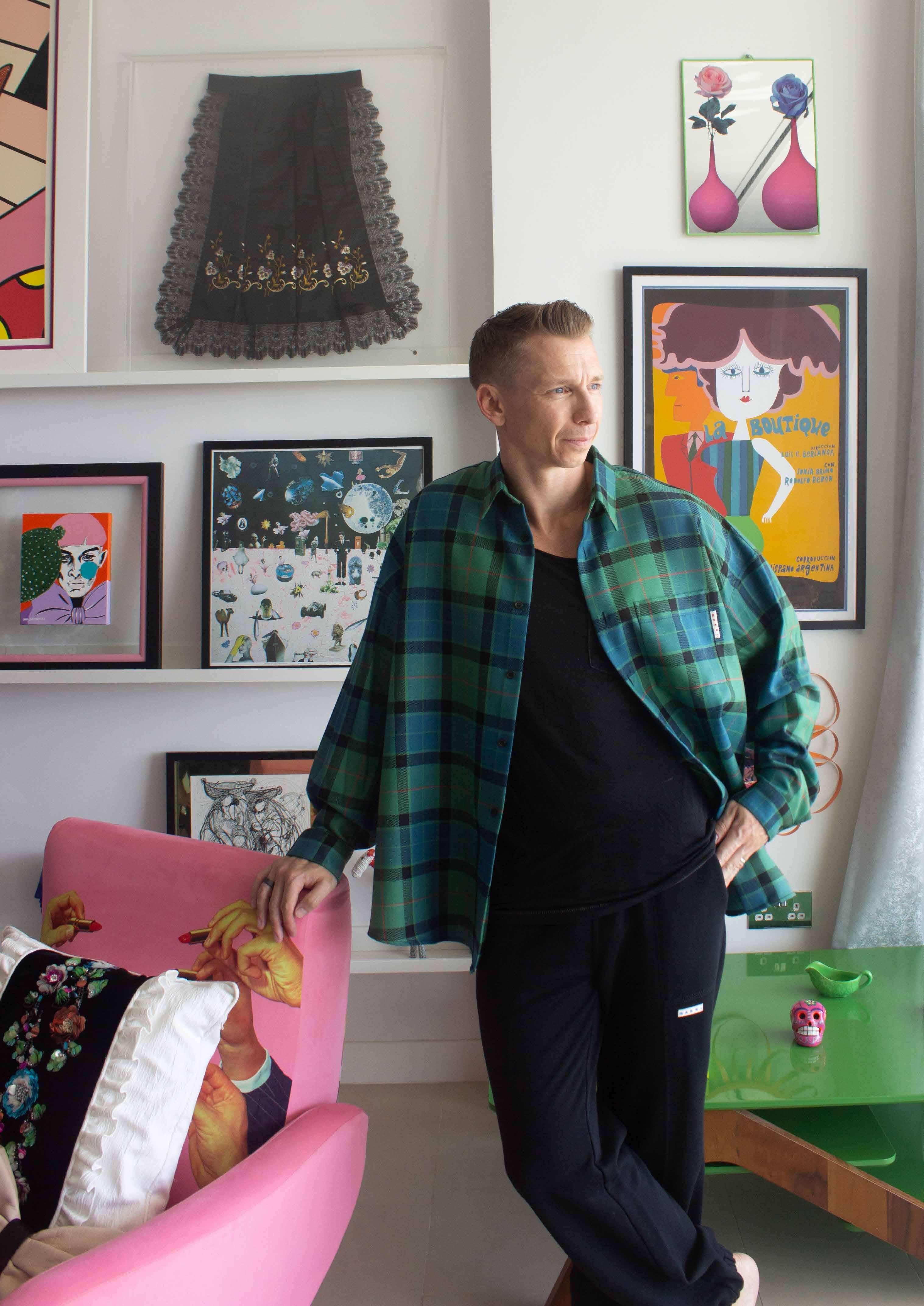 BY JESSICA COMBES
BY JESSICA COMBES
48 ART
Alittle over 10 years ago, David and Jennifer Black moved to Dubai, where Jennifer spent five years working for a contemporary women’s wear designer. She designed the collections, headed up manufacturing, and was responsible for print embroidery and going into the factories. “I loved it so much and treated it like my own business, and after five years, I wanted to do something for myself,” said Jennifer.
She wasn’t sure quite what her own thing would be, but she was on Instagram where many people share their homes where they showed purchased products or getting gifts and then creating inspirational living spaces. She wanted to do something similar but by leaning into her fashion background, and after a serious conversation with David, she left a job that she loved.
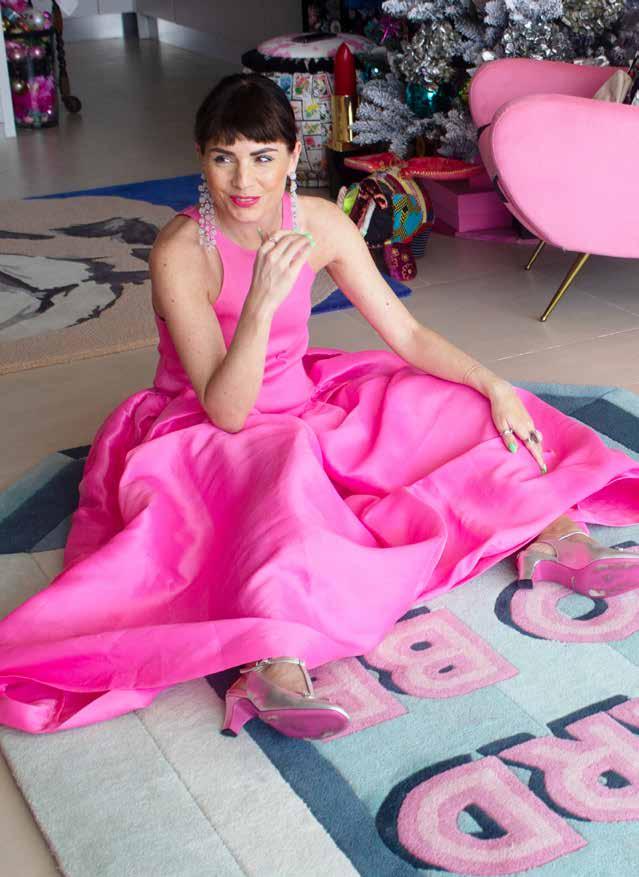
With her background, she could see what was and wasn’t working in the industry. “Brands come and go and I knew that whatever we were going to do, I knew that I didn't want to be just another fashion brand. I also knew that with the financial position that we were in, I knew that I couldn't give it everything because fashion is such a big investment and you have to do many, many seasons before you get into boutiques. I knew we weren't in the position to fully do that,” she said.
The nagging desire to create something which allows people to express themselves and bring their love of fashion into their homes prompted her to tell David, “I feel like there's a strong connection between the way we dress and the way we dress our homes.” David just came up with Wear The House and in 2018 the idea was born.
The mission was to create an e-commerce site which is a colourful shopping destination for the whole home, starting with pyjamas and matching cushions and wallpaper. Then the pandemic hit. They’d set up their domain and registered the business and the pandemic made it very difficult to continue
production because it was done in China and India. So, they scaled back and focused on what they could do within the UAE, and Jennifer started to produce more cushions locally using her prints.
POST-COVID CREATIONS
“Coming out of the pandemic, we wanted to be a closer family unit and we took on a more full-time role with the kids and chose to be in a smaller space, and that’s when Jennifer started playing around with the idea of the gems and began with embroidered cushions,” said David.
At the beginning of 2021 Wear The House released a capsule range of gem rugs in clusters of colours. Eventually, they made a sale to the United States just through Instagram, using a minimal advertising budget. The next few sales that followed were serendipitous because David’s other business was going through a tough time. David and Jennifer had to look at Wear The House, which had been running for a few years and had good
awareness in the Middle East and figure out how to turn it into their future. After careful consideration, David came fully on board to support Jennifer.
Now, with their solid partnership and a viable e-commerce business, they’re expanding their marketing efforts into the US and their vision for the brand was always much greater than rugs and cushions. “We want to create something which allows people to uplift their mood to find that happy place within their home; to fill their home with colour, whether even if they prefer a more neutral palette, they can still throw up throw a pop of colour in there,” said David.
Their other goal is to collaborate with other artists and expand their reach globally by partnering with artists in the UK, Europe, the Middle East, and the States. “We believe that collaboration is important for us to work with and support other artists. It's part of who we are and where we see our business going,” said Jennifer.
Clothing: @thatconceptstore Get in touch: @wearthehouse Advice for new creatives:
Enjoy the process You’re going to have good days and bad days.
Know your vision Be clear about what you want to create.
Fail fast, move on As long as you learn from it, it’s never a failure. 49 ART
“I feel like there's a strong connection between the way we dress and the way we dress our homes.” - Jennifer Black
1.
2.
3.
CREATIVITY, DRUMMING, AND LOVING LEGO
Turkish Creative Director Bersun Erturk, 42, talks about discovering new passions and taking on challenges with a lot of imagination and originality
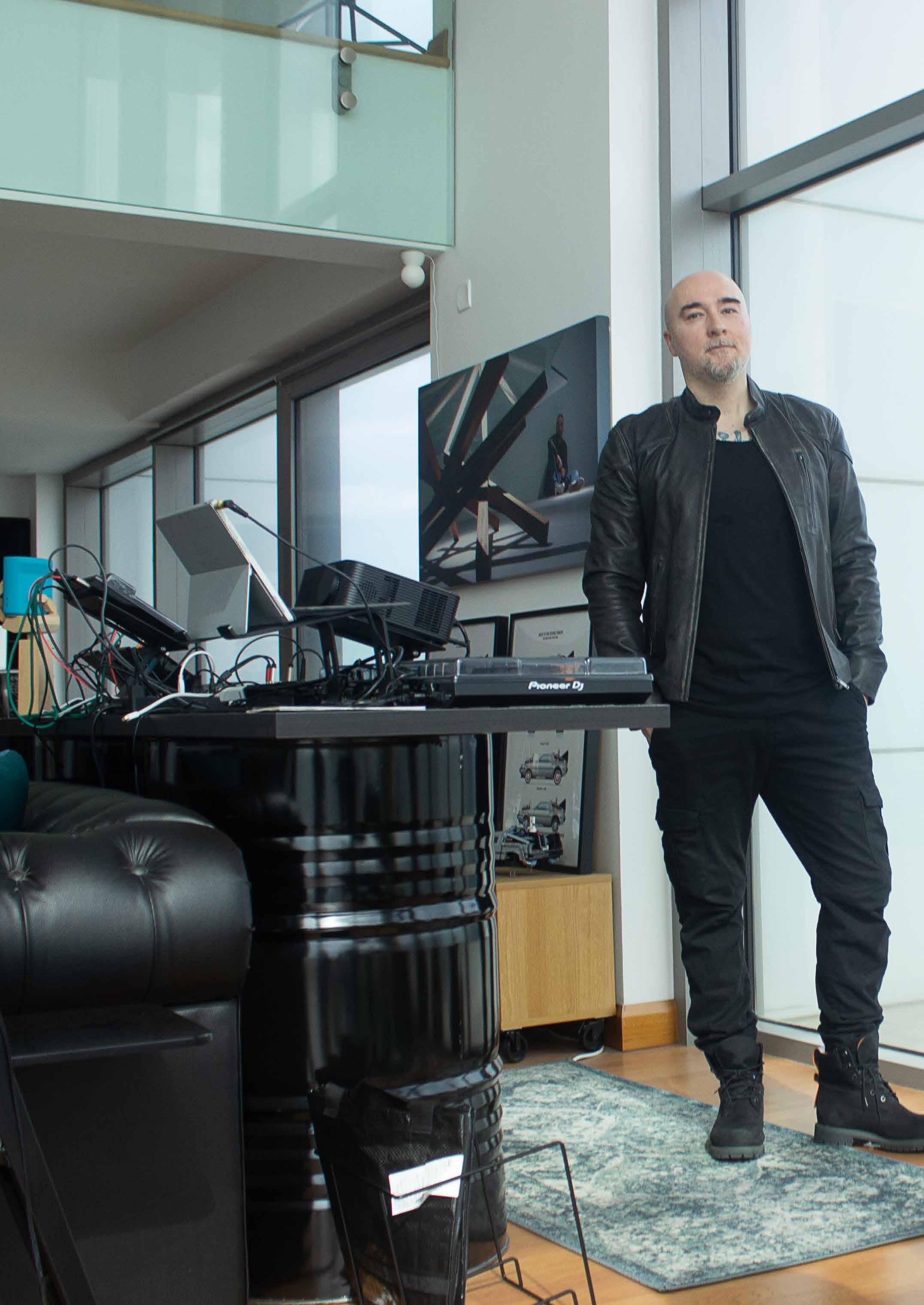
50 ART
Tell us about your business – what inspired the idea and when did you start it?
Officially, I’m a creative director at DXB LIVE but unofficially I’m an experience architect, interaction/ audiovisual artist, musician, and Lego enthusiast.
My talents started early in my childhood when I loved to draw and create and I expanded from 2D to 3D using Lego bricks. This opened up an entire career path for me that saw me graduate top of my class at university, which brought me to Dubai where I conceptualise ideas for a living.
What do you consider to be your greatest personal and professional achievements?
Professionally, I can thankfully say I ticked all the boxes in the various fields of the creative and design world by winning awards in each category.
I wouldn’t necessarily call it the greatest personal achievement as I’m learning new things every day, and after 40 I started pushing the boundaries in terms of adapting to new skills in technology and coming up with innovative concepts. What were your biggest challenges? How did you overcome them?
As I’m a super creative person, I am constantly coming up with new ideas and sometimes finding the right people to implement them is complicated as I could see it clearly in my head.
This forced me to push myself to learn how to do it on my own. For example, I’m creating an interactive and kinetic installation using coding that I have learnt recently. I’m able to create my own prototypes by connecting creativity and coding.
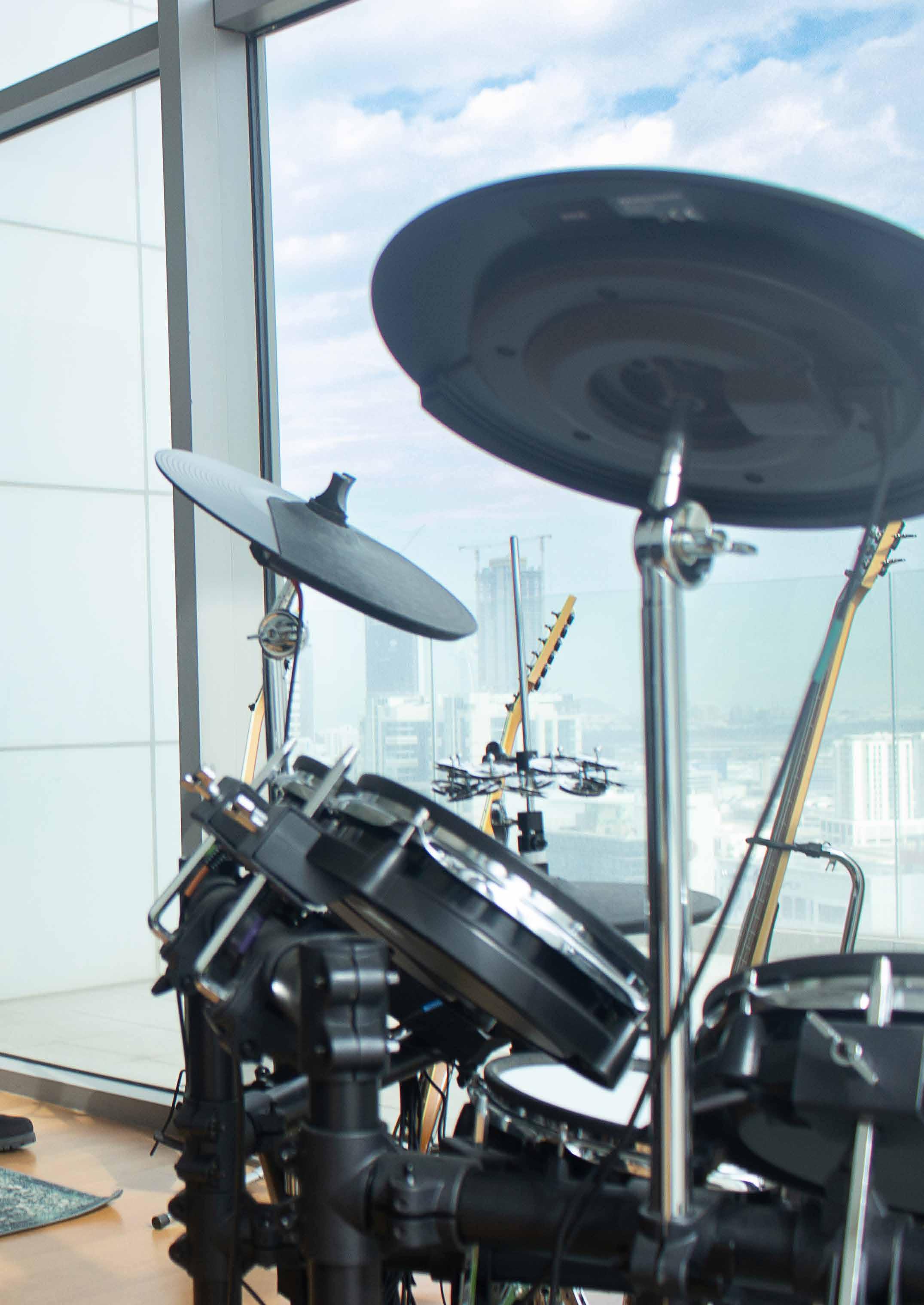
How do you manage the daily stress that comes with your job?
I work in events, shows and exhibitions which can be extremely stressful. I live by this quote that I read
somewhere, “Deadlines are the best inspiration.” It’s kind of a cliché but honestly, it resonates with me. I usually keep in mind my ideas and inspirations and often can just focus on bringing those ideas to life, usually when I’m drumming or cycling. It’s so important to have creative outlets or any type of outlet really to just destress.
If you look back over your life and career if you were given the opportunity to do anything differently, would you?
To be honest I think where I am right now is because I mixed different paths. I graduated as an interior architect and played in a band, then my career started to evolve and I jumped into the events world which pushed me to become an artist at the same time.
What is important to you?
I enjoy the journey rather than the destination. So what is important to me is that I still like to learn new things and bring those new ideas to whatever I am trying to achieve whether at work or personally.
What is something that people don’t know about you?
I was born in Türkiye but moved to Libya, then Italy and then Kuwait all before I was ten years old. This gave me the
mindset of bridging the east and west together and has shaped who I am. My love for this region and the people is evident, and after spending my teenage years in Türkiye, I returned to the Middle East and have been here ever since.
Most of my creations and ideas have a mixture of different cultures and how I tie them together is all based on sensory experiences that remind me of my childhood.
Do you prioritise your mental health, and how?
Mental health is extremely important, especially in this day and age of continuous stress and deadlines. It is imperative that everyone finds outlets that work for them. In my case, I play the drums daily as they are the perfect release for me whenever I’m having a particularly hard day. Another outlet of mine is building Lego models. I can switch off completely and just concentrate on the task at hand.
What piece of advice would you give to the younger generation that might want to follow in your footsteps?
My advice works for any field whether it’s a business or a creative outlet, is that to succeed in anything you must immerse yourself completely in the concept and learn everything about it. Regardless of whether you work for someone or hire people to help, you already have a clear idea of the end product and are aware of what it entails. This advice was given to me by my parents and especially my father who was a civil engineer but loved carpentry and learnt about every aspect of it. This is where I get my drive from.
Get in touch: @bersunofficial bersun.com 51 ART
I push the boundaries when it comes to adapting to new skills and I encourage everyone to keep learning.
FORMING A FILM FEST
Rabih El-Khoury discusses his love for Arab cinema, and shares his appreciation for great storytelling while curating the first edition of Arab Cinema Week
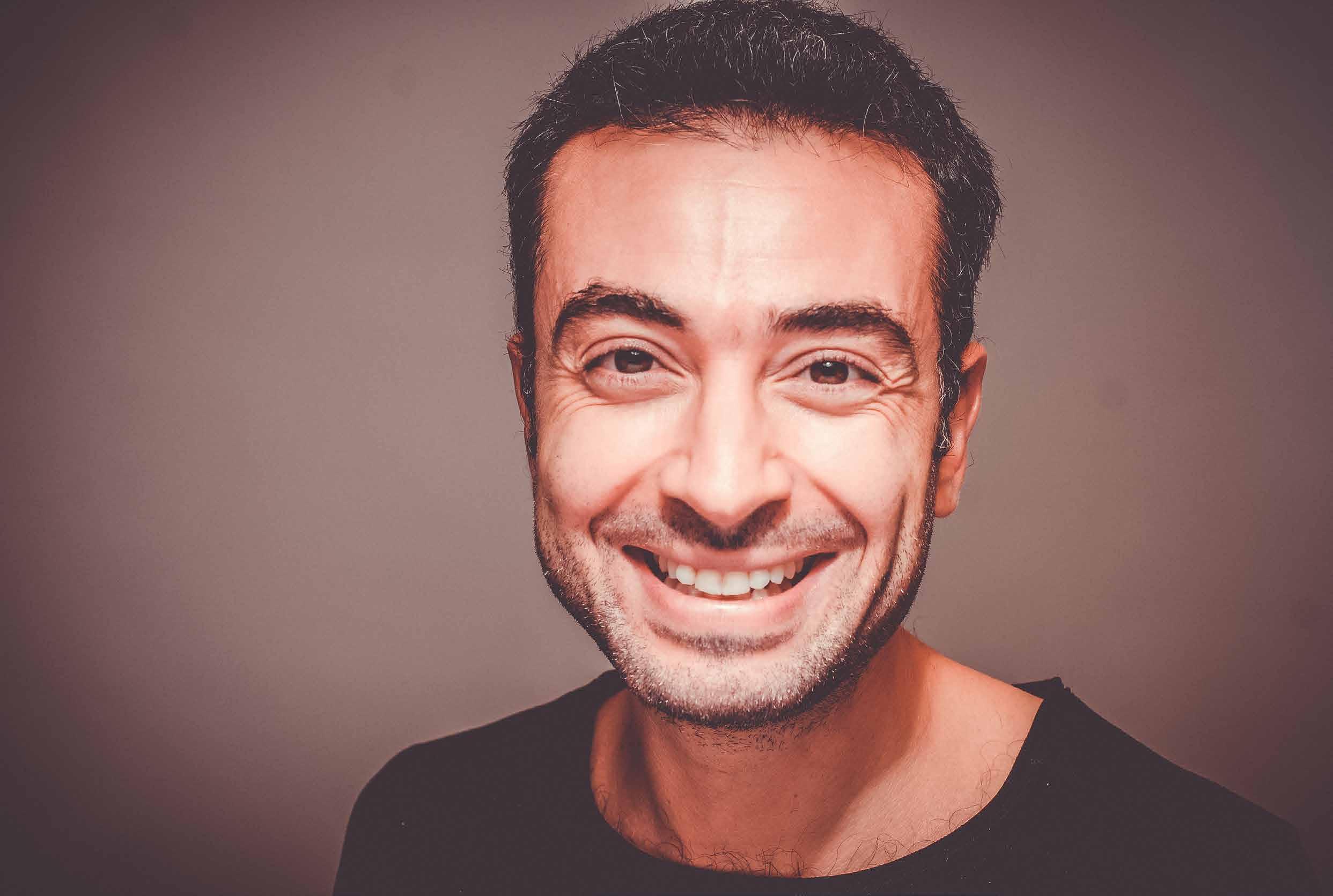 BY JESSICA COMBES
BY JESSICA COMBES
When Rabih ElKhoury was asked to curate the first edition of Arab Cinema Week hosted at Cinema Akil, it was a no-brainer. “The great thing about Cinema Akil is that it has been championing Arab cinema for several years, either on its premises or in the popups, and not just in Dubai, but
also in Abu Dhabi in Sharjah. So, I thought we should try to explore stories which have not been told and see who might show up.”
El-Khoury studied journalism in Beirut, and he really enjoyed one of his film classes. After graduation, through a series of fortunate circumstances, he started curating different projects, including opening
the first arthouse cinema in Lebanon, and these projects also exposed him to a lot more of what Arab cinema has to offer. He felt that these films spoke to him and were a lot closer to his reality than a Swedish or Argentinian film.
“Even though our realities are different in Egypt, Algeria, the UAE, or Lebanon, I feel that these films were sharing
ART 52
our history, our stories, and our culture. Stepping away from any political instability around the region, our culture is so bright and so overwhelmingly beautiful.”
He wanted to extend this appreciation of what Arab cinema could offer an audience not only by inviting them to see the films, but to have the opportunity to meet and engage with the film makers. After two years of the
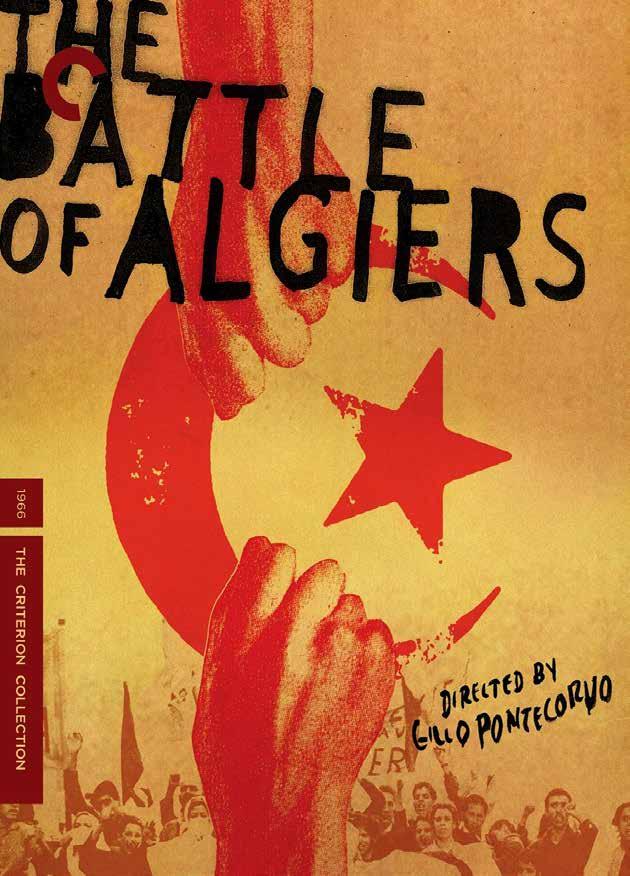
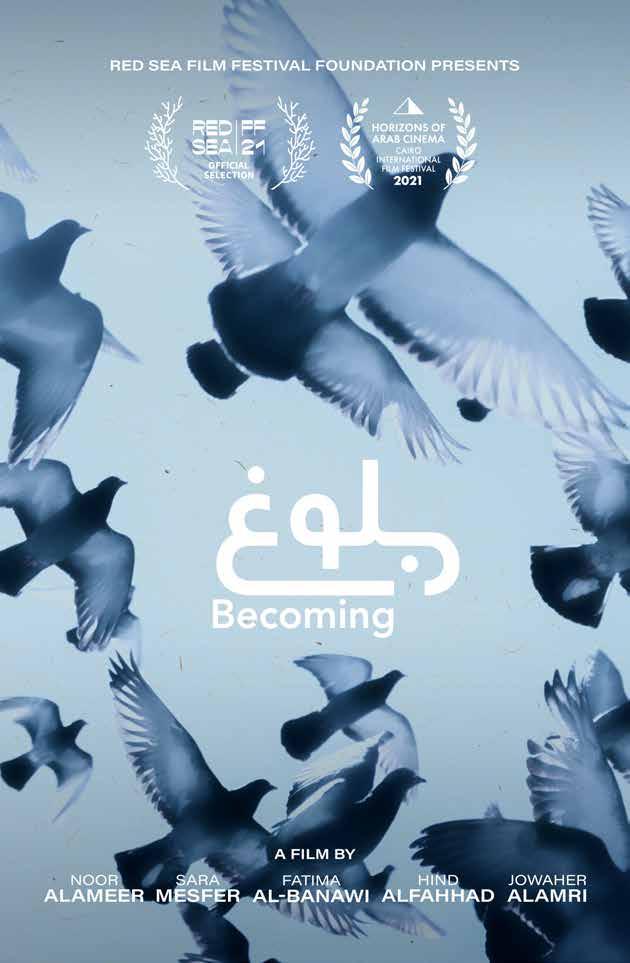
pandemic, filmmakers were looking forward to meeting the public in person, and the public was looking forward to having the chance to speak with the makers. A considerable number of artists took the time to come to Dubai and present their films and meet with members of the audience. Some people came to watch films every night of the festival and El-Khoury said that a real community of film lovers was starting to grow.
FUTURE OF ARAB CINEMA

El-Khoury stressed the need to preserve culture. “We need to save our national heritage and that means creating an infrastructure for filmmakers and artists making their films today. That is still missing in the art world. Artists have to grab any available opportunities because there is no real infrastructure to support arts and culture in general, and filmmakers in particular.”
His advice for future filmmakers is to remain authentic to the stories that they tell, even when outside influences try to convince them to make changes. Second, be patient because that financial windfall you’re dreaming about to make your documentary won’t come immediately. Third, make good connections as work in the industry because you never know who will be able to help you tell your story in the future.
Artists have to grab any available opportunities because there is no real infrastructure to support arts and culture in general, and filmmakers in particular.
53 ART
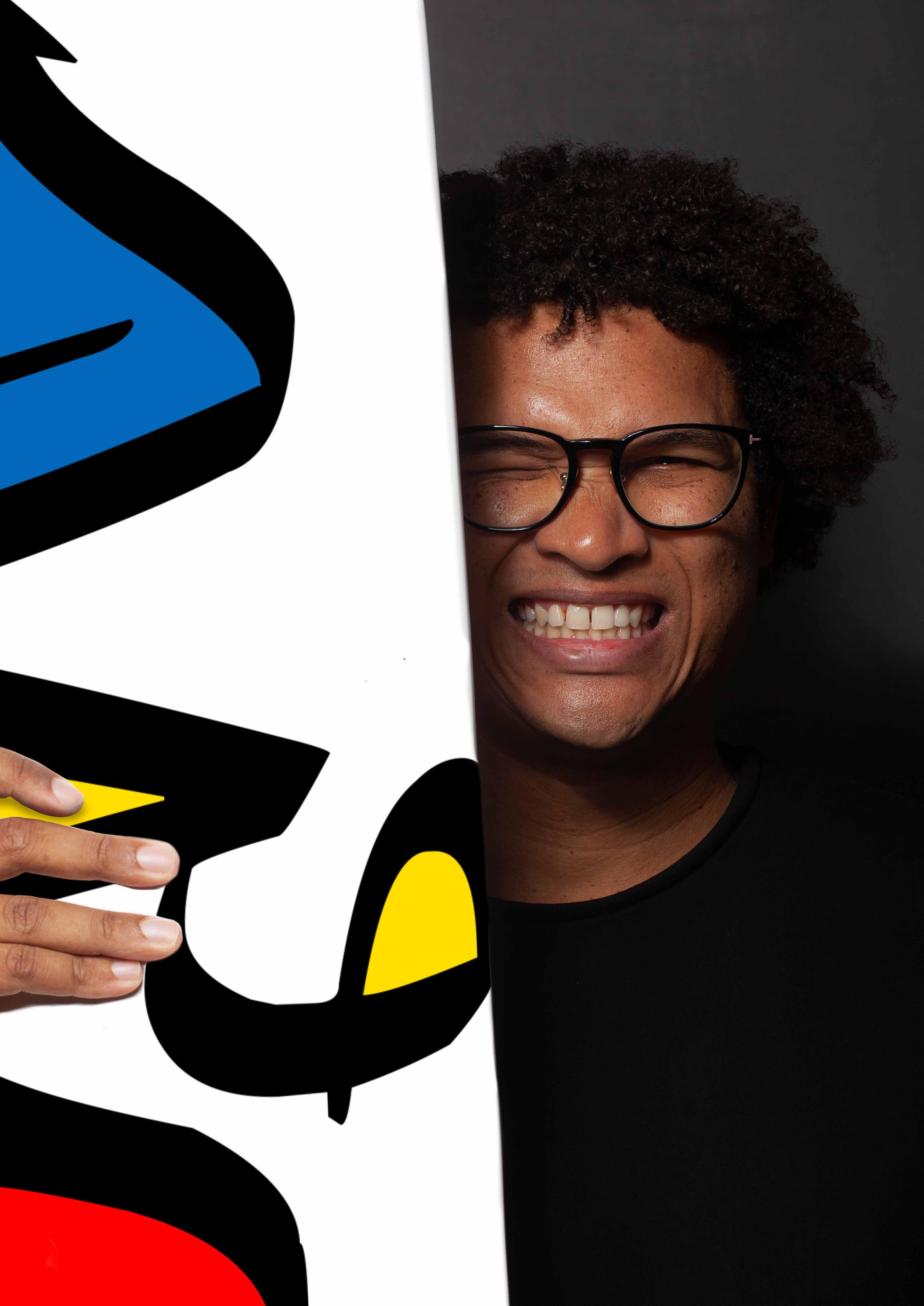
54 ART
A skateboard is a toy; a skateboard is freedom, and the colours I use on my skateboards come from my daughter.”
FREEDOM OF EXPRESSION
Axel Andre explains how he developed his love of art, encouraging it in his daughter and tapping into the creativity of his youth
BY JESSICA COMBES
West Indian artist Axel Andre started painting when he was around 14 years old, after years of his parents taking him to galleries and museums and developing his love for it.
“When I was in the Caribbean and I wanted to paint but didn’t have paper, I found a box of books that belonged to my dad. He’d read them and he wasn’t using them. I started flipping through them, then I read them, and then I decided to make my own canvases with the pages. The books used to be key elements of my painting and art. They guided my feelings and meditation before I started work on the painting,” said Andre. He started using guided meditations on a podcast and he recently went to a retreat in Thailand where he learned to meditate on his own.
Aside from his home in the Caribbean, the 35-year-old has lived in Paris, New York, Australia, and Singapore and has been creating art professionally since 2017. “My art is contemporary, and it comes from my unconscious and that is why I don't do commissions. I let people take my art as it comes so if you like it, take it; if you don't, it's fine. I have a day job, so what I make with my art is a bonus.”
For Andre, his art is regenerative. Despite being a dad and a husband, he still considers himself to be quite carefree and childish, and colour is an important part of his work, and the mix of colours

is applied with an almost childish abandon.
Andre has started to ramp up the number of exhibitions he participates in. Since 2017 he has had a team of two agents in Paris supporting his work in the European market and he’s currently working with an agent in Dubai to help him tap into the Middle East and GCC markets.
FATHERHOOD
While his dad didn’t have a problem with Andre using the pages from the box of books for his art, and even pushed him to read the books so he’d understand them he did have reservations about him choosing art as a career and encouraged him to pursue and engineering degree instead to ensure his financial security. “I'm not mad at him for this because I have been with many artists from different levels. Some are very highly paid artists and some artists struggle. Now, my dad buys my art. Sometimes he asks me for a family discount.”
Andre’s daughter turned three in January and one of the decisions he had to face as a father was how he was going to raise her and if he would do anything differently, since each generation seems to try and fix the parenting mistakes of their parents’ generation.
“I used to have the chance to do my own thing, but I also used to be under a lot of pressure to succeed at school and succeed at life. I don't think this pressure was useful. I think I want to give my daughter the confidence to express herself
and what she is feeling. I grew up unable to express my feelings – if I cried I was told I had no reason to cry. I was always saying yes, and I thought I needed to see a psychologist and my parents told me I didn’t. It was ironic because my dad is a psychologist. I will give my daughter more freedom of expression, and also put less pressure on her regarding her education,” he said. He added that he thinks that is a factor as to why he enjoys painting skateboards now. “A skateboard is a toy; a skateboard is freedom, and the colours I use on my skateboards come from my daughter. She has a huge page of paper at home where she can scribble and express herself and when the pages are full, we change them. I’ve used the shapes and colours from her scribbles to inspire the artwork on the skateboards,” said Andre.
For the remainder of 2023, Andre would like to get out and meet more people, create more videos, and content and put a lot more art out into the world.
Get in touch: @axelart ART 55
A PERFECT PARTNERSHIP
Sami Alamoudi and Firas Bawazir discuss the creation of CRKD GURU and the importance of working with people who share the same vision
BY JESSICA COMBES
In 2012, Sami Alamoudi and Firas Bawazir met through the introduction of a mutual friend on Facebook and discovered just how much they had in common –they’re both half Saudi Arabian, half Asian; they both spent time in the UK and they both love hip hop.

“We met before Saudi Arabia opened up, and we both felt that our lives were a constant cycle of going to work and coming home, which wasn’t the lifestyle I was used to because I was in the UK for seven years. Sami and I both wondered what to do with all our spare time. We had
a couple of spray cans and one day, we had the idea to create graffiti somewhere as a way to deal with frustration. They started planning their sketches before spraying full pieces. They discovered that Alamoudi isn’t good at starting drawings and Bawazir isn’t good at finishing
56 ART
them and between the pair of them a full image would get completed and then created on abandoned buildings.
By 2014 they started getting commissions in restaurants and stores, but they also felt that they started graffiti quite late, Bawazir at 25 and Alamoudi at around 30, and constantly climbing scaffolding was taking a toll and they could see themselves doing it for another five years max.
In 2016, the creative agency where Alamoudi let them use a digital printer to put their artwork on T-shirts, and they were able to sell them at a gallery. After selling half during the event, they wanted to see if they could take it further. In 2017, they attended ComicCon in Jeddah, where they sold shirts for three days.


Their next step was screen printing and couldn’t find anyone who did it in the Kingdom, so they used some of their savings to buy a screen printer in the latter half of 2017 and spent the next 10 months perfecting their technique and pausing graffiti. They entered a cycle of working their regular nine to fives and then screen printing from six to 11.
Once they had a small collection, they took their shirts with them on a holiday to Los Angeles to show some store owners to get their feedback, which was all positive. Saudi Arabia was also starting to open up and hold music festivals and events and Alamoudi and Bawazir were
able to get CRKD GURU out to the public. In 2019 they decided to pursue the brand full time.
As they built their brand and attended more events, more creatives started coming together in a community. Then COVID hit and the world shut down, so Alamoudi and Bawazir used that time to develop their website and learn how to use Shopify to grow the brand.
Since the world has started returning to normal, CRKD GURU is seeing an increase in interest which is the culmination of years of work where it is no longer considered an underdog brand and they have started doing collaborations.
“We are so similar – we don’t belong to a specific culture because we grew up in Saudi, but we’re not Saudis. We don’t
completely belong to Saudi. But when we go back to Indonesia or the Philippines, it’s not really home for us either, and we don’t look Indonesian or Filipino and we also spent a few years in the UK. We’re able to tap into different cultures because it feels like we have multiple backgrounds and histories and experiences. It allows us to express our creativity in many layers,” said Alamoudi. Finally, Alamoudi and Bawazir believe that artists need to realise that what they create will not always be for everyone, so important to create what you love and put it out into the world.
Get in touch: @crkd.guru 57 ART
We’re able to tap into different cultures because it feels like we have multiple backgrounds and histories and experiences.
A COMPULSION TO CREATE
For Dutch artist Marc Barendse, painting is so much a part of who he is, that he has to find a way to do it regardless of anything else going on in his life
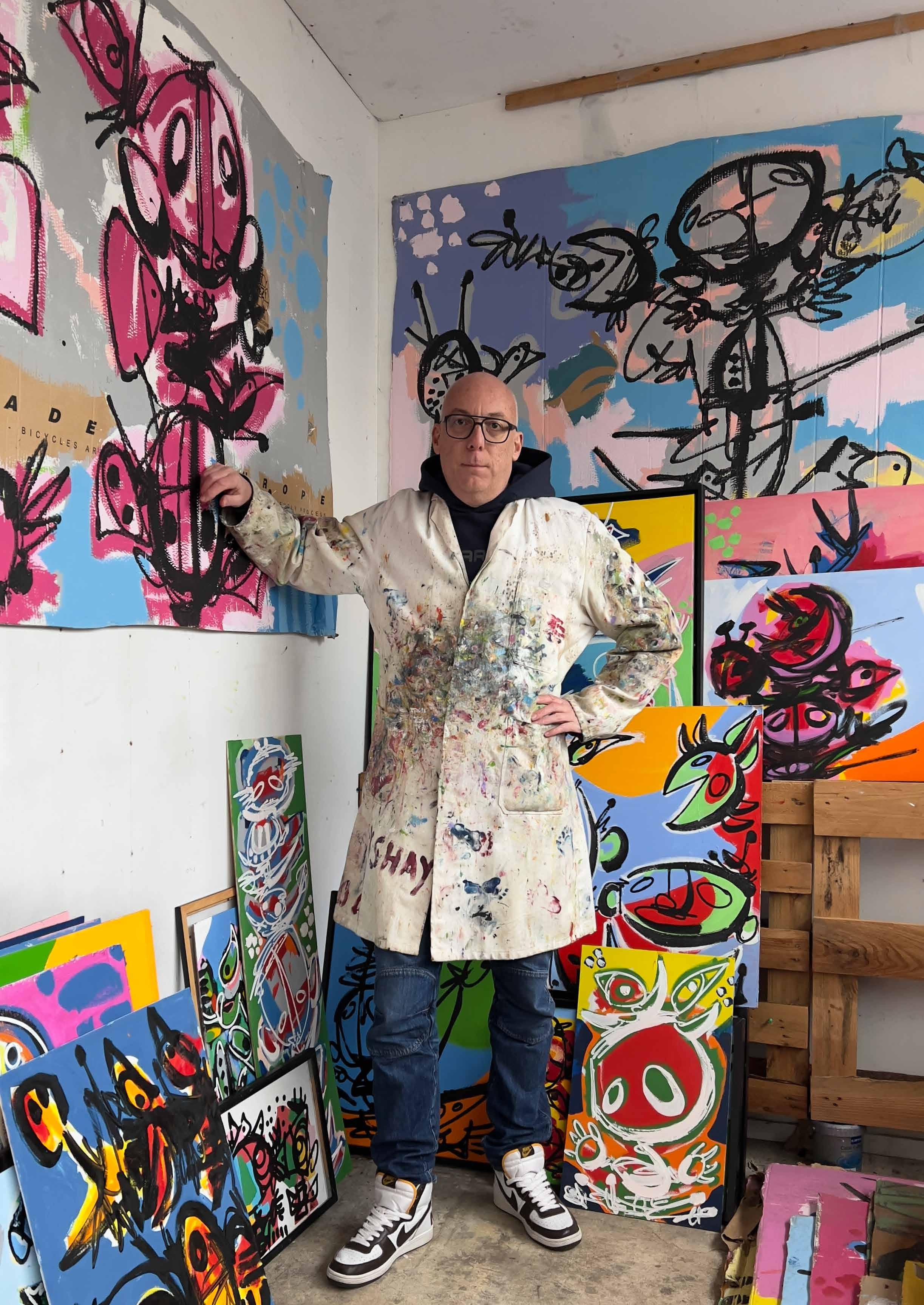 BY JESSICA COMBES
BY JESSICA COMBES
and he would always visit the gallery in the village where he was raised. In his late teens, he started to be influenced by graffiti. His father would tell him he didn’t care where he did his art, as long as he didn’t catch him doing it on his neighbour’s wall. ART
Tucked away in a back room of a warehouse in a tiny Dutch fishing village, artist Marc Barendse brings to life his signature, brightly coloured paintings. He has been interested in art since he was a child, 58
“I was always at my desk, drawing, scribbling, doing research and also getting out to see what other people made. I was quite into graffiti in the 80s, but my style has developed to where, if you look at it now, it doesn’t really resemble graffiti although there are still a couple of elements from that era. Over the last 15 years I’ve also been heavily influenced by the post-WW2 COBRA movement, where artists from Copenhagen (Co), Brussels (Br), Amsterdam (A) started to work together to develop new, spontaneous, colourful ways of making art, abandoning the old styles with the classic painting,” said Barendse.
Barendse doesn’t subscribe to the starving artist trope, instead by day he works for an international organisation, where he makes his living to support his family, and in his free time, he works on his art as his creative outlet. “This studio means my freedom; the core of my existence is to make art,” he said. When he’s not in his studio, he’ll still scribble in his notes at work, or draw on the table with his finger during dinner, and when he lies in bed he’ll think about the colours he will use in his next painting.
He starts by choosing the material, because he feels it defines the process, whether he chooses to paint on a canvas or a bit of cardboard. He uses different paints but only uses oil paints in the summer, when it dries quickly, and also when it is icy outside, when water-based paint would freeze because he doesn’t have heating in his workroom. “I sometimes mix the two in the sense that one layer can be water-based and then oil on top. My website is called Marc Unlimited because I have no limitations in how I
work. I always start with the background colour. Just like when you have a musical composition for a song, the music sets the scene. It can be a dramatic melody or very uplifting. That's also what the colours do. The colour defines the atmosphere of the painting,” he said.
He starts with yellow as the lightest colour because other colours can layer over it; blue is his favourite colour to work with. When he sets out the colours, he doesn’t always know exactly what he is going to paint. He’ll start putting the colours onto the canvas and
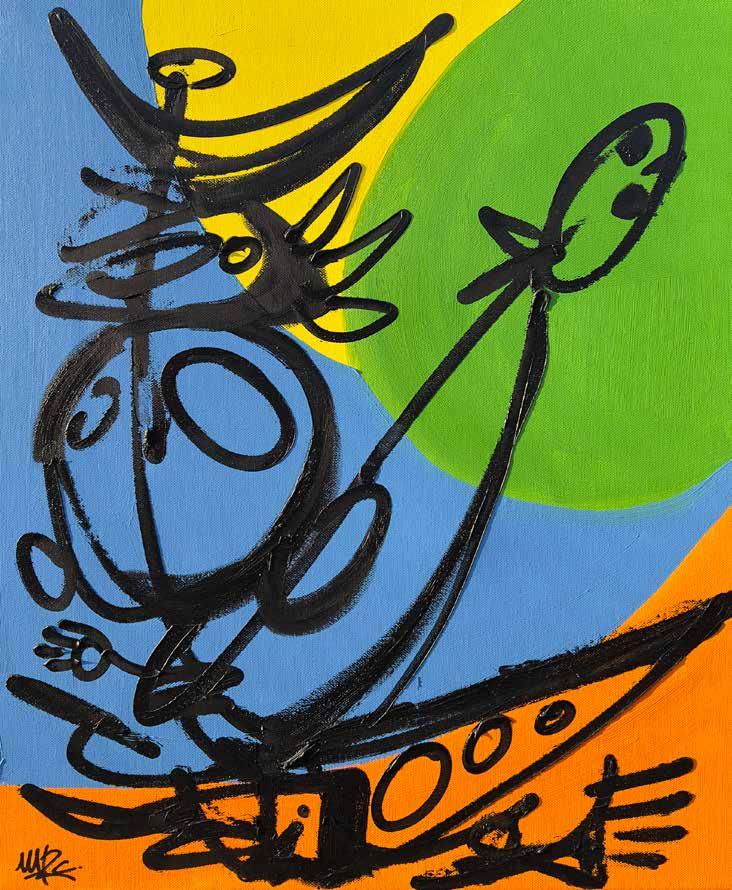
then he’ll go in with the black, which he likens to the lyrics of the song. “So, the shapes can also mean anything. People look at it from their own stories and that's what I enjoy. It has to feel good. I also have works that I don't like and then I paint over it again with something new,” he said.
ART AS BUSINESS
One of his favourite memories from years ago was holding an exhibition in a retirement home and one lady approached him and said she really liked one of his paintings and wanted to know what he wanted for it. Her husband had died two weeks prior, so his response was to give it away. “My art is making people happy. My journey is already finished; this is what I want to achieve,” said Barendse.
He’s also really happy to have somebody handle setting up the exhibitions and managing the sales, because “being an artist and running the business side don't go together. I think that's true for any creative, whether you're an artist or designer, or writer. You are producing creative work, you're not there to run a business. I think it’s important to find the right people to partner with in that respect, so they can focus on the logistics of it.”
How does Barendse keep motivated to paint and keep creating different works? He paints for an hour, maybe an hour and a half and then calls it a day because the paint has to dry. He also works on five or six different pieces at a time. “If you have this inner need to be creative, don't limit yourself. Being creative is not for other people, it's for you,” he added.
Get in touch: @marcunlimited 59 ART
"If you have this inner need to be creative, don't limit yourself. Being creative is not for other people, it's for you."
LAUGH LIKE YOU MEAN IT
Canadian Lebanese comedian Shawn Chidiac, 25, talks us through being a child of divorce and how laughter really is the best medicine
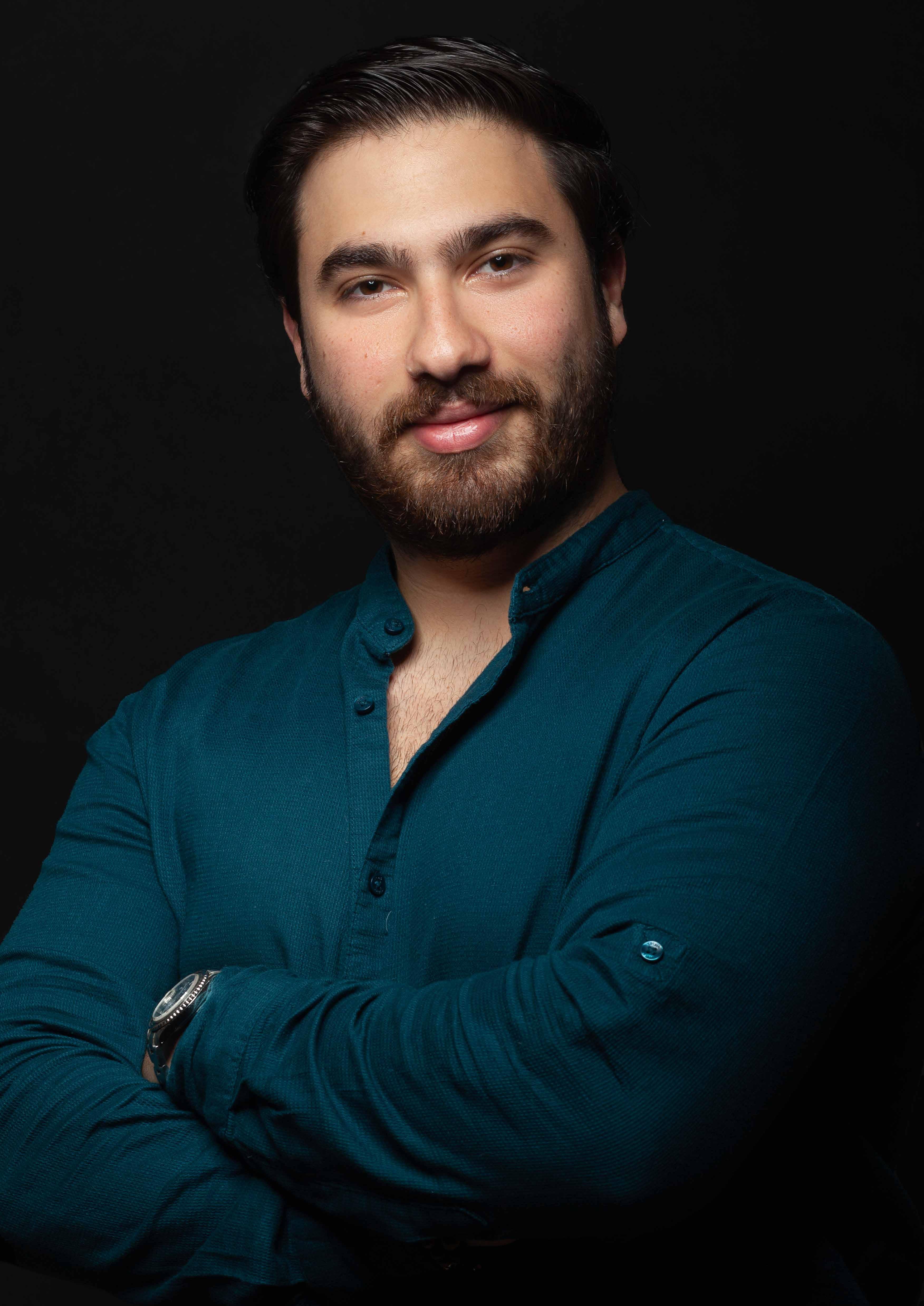
Tell us about your business
– what inspired the idea and when did you start it?
When I was a kid, my mother had just gone through her divorce, and she was a struggling single parent, trying to raise two kids and working a full-time job. She was constantly unhappy, and I realised she used to laugh when I did impersonations and joked around. Seeing her smile triggered something inside me and made me feel
like the one thing I wanted to do was keep her smiling and laughing. That vision was soon projected onto everyone. I want to make the world laugh, which led to my business, MPAD Studios. We provide marketing to businesses on a project basis, including production, content creation and digital strategy. We also manage live comedy events, including talent management, event planning, and the media production.
What do you consider to be your greatest personal and professional achievements?
My greatest personal achievement was the first time I could buy my mom a gift by myself. My greatest professional achievement has yet to come; I'm proud of a handful of moments like selling out standup shows, hitting my first 100k followers, and hitting three million views. But the greatest achievement is still in process.
60 ART
What are the keys to creating a profitable business?
Since my business is in a heavily saturated market within a fast-paced city, the one thing that helps me stand out is to stay authentic, which means being 100 per cent unique. Staying true to yourself will keep you on top; if you try to replicate something that's worked for someone else, you'll always be one step behind, playing someone else's game. The best game you can play is your own, where you create your own trends and rules.
What were your biggest business challenges?
How did you overcome them?
One of the biggest challenges I faced was finding a balance between taking on projects to add to my portfolio to show diversity, and charging the right rate for what I was delivering. This was a constant battle. After about two years of underpricing, I realised I was providing something unique and that it took a lot of work to find similar services. I started creating my own unique rates and convincing myself that I was worth what I charge; self-doubt is a killer in the entertainment and marketing business, so overcoming that was my biggest challenge.
What advice were you given when you started and did it help?
My uncle Tony told me, "You only grow when you make decisions." Since then, with no exaggeration, my life has changed. One of my
biggest fears was making the wrong decision.
I was in constant fear. My mind was flooded with questions until we spoke, and he shifted my perspective. I realised that the only way I would find out would be if I just did it. You'll make the best decision possible in that situation knowing what you know then; regret and success are future problems, and that helped me get over my indecisiveness.
What is important to you?
Making sure my dog has all the treats he could ever want and staying on a growth path, even if it’s baby steps forward. As long as I'm growing, I am happy.
Have your priorities changed as you have matured? If so, how?
Saying “No” went from a fear of disappointment and FOMO to becoming second nature. I still struggle to make time for myself during the week, but the growth process starts with the realisation that you have to put yourself first. Everything starts to fall into place, family and close friends will always have a high standing in my life, but I can't be myself if I'm burnt out. A healthier me is a better friend and family member. You owe yourself and your family to be the better version of yourself.
Do you prioritise your mental health, and how?
I try to keep it as simple as possible. I do more of what I like and less of what I don't like. I go to the beach, I try to exercise three or four times a week, I cuddle with my dog, and I cook food I crave. Life is full of stress, I'm all for putting the world on mute sometimes.
What 3 pieces of advice would you give to the younger generation that might want to follow in your footsteps?
The advice I'm about to give is advice given to me by men and women much more successful and wiser than I.
I was only smart enough to listen to it.
1. Stay consistent. You will be swept behind if you don't remain active daily. Most successful content creators are the ones who don't stop, and not necessarily the most talented or creative in the industry. I'm not saying flood the market with mediocre content, but just buy remaining active, you will separate yourself from at least 50 per cent of the rest.
2. Decide if you want a passion or want a job. Contrary to popular belief, I don't think your passion should be your job. However, you will take the novelty and joy out of what you do in the long run. It will eventually become a daunting task. What was once a hobby and an outlet (creative or otherwise) will cease to be that and just become something you need to do. When I made content my only source of income, I was taking on projects that I hated, making me hate content for that period. It removed the choice of being selective with whom I worked and how I shot it. By creating another channel of income, I didn't have the pressure of taking on a project I didn't want to cover expenses; it was all for the passion of it.
3. Believe in yourself. Set an overall goal no matter how ambitious, figure out the route to take and trust the process. A simple example is reaching a certain amount of followers on a social platform. The goal is 100k, and the way to do it is by staying active on your page and posting every day, collaborating and staying up-to-date with trends. The goal is clear, the route is clear, and the difficulty lies with how committed you are to that goal and believing that you will reach it even when you seem to be stuck for months.
Get in touch: @myparents_are_divorced 61 ART
“Staying true to yourself will keep you on top; if you try to replicate something that's worked for someone else, you'll always be one step behind, playing someone else's game.”
WHAT MEN LOVE
Men of different ages to talk about ageing, skincare, and what works for them

I’ve worried about my skin since I was young. I had imperfections and having dark skin, scars last longer and are deeper. At 39 I went to see a dermatologist who helped me fix my skin and balance my pH level by using a specific face cleanser that I’ve used ever since.
While working at Unilever, I was taught by the head of skincare that the most important step in a skincare routine was to moisturise. I don't have any preferences, but I believe in rotating my products to keep my skin healthy. I usually use well-known brands like L’Oréal and Neutrogena. I choose products based on the feel and I use a lighter moisturiser in the mornings and a thicker one in the evenings.
One of the main challenges is psychological, as some men may see skin care as feminine and may not want to appear too concerned about their looks. However, men should start looking after their skin because it is the best way to age better and look younger.

FRANK N.J. BRAEKEN, 62, BELGIAN
Before COVID I didn’t have any interest in skincare. But, staying home I wanted to try new things among them was to look after my skin.
Mental health has always been a priority as I was diagnosed with depression and anxiety when I was a teenager. I shared my skincare routine on my socials and received some negative comments but I think the people making them might not be feeling all right within themselves. This is helps me not to take these comments personally.
My favourite skincare ingredient is Retinol. It is backed by research as the most effective anti-ageing ingredient in over-the-counter products. It increases cell turnover and collagen production, but the results take time. You need to do your own research when it comes to skincare and try different products to see what works for you.
If I had to say something to my 20-year-old self, it would be to learn who I am earlier, go to therapy, read books, work on self-acceptance, and stop worrying about the little things, because, in the grand scheme of things, most of what we worry about are not that important.

62 BEAUTY
AHMED BOLOOKI, EMIRATI, 39, @BOLOOKEE
I was influenced by a friend in his 50s, who uses hydrating cream and moisturiser every day and has great skin. It inspired me to start taking care of my skin.
My daily routine includes a healthy diet and physical and breathing exercises, and now skincare. I take care of my skin to feel good about myself. I use serums, moisturisers, and oils. I love the Sunday Riley CEO Rich Cream and their Turmeric Oil, as well as the Drunk Elephant Protini Polypeptide cream, Lala Retro Whipped Cream, and Charlotte Tilbury's Magic Cream. For serums, I love Dermalogica's Smart Response Serum as I feel it helps to hold the layers above. But, above all, I prefer a good oil, namely Sunday Riley's Luna retinol oil. The Norah Skincare argan oil is also fantastic, affordable, and full of antioxidants.
There is less expectation for men to have beautiful skin, and it is not a common topic of conversation or education for men. Some men may view skincare as feminine, and many men may not take the time to add a skincare routine into their daily life. It's good to express the caring side of oneself regardless of gender.
JOE SEJEAN, 46, FRENCH LEBANESE

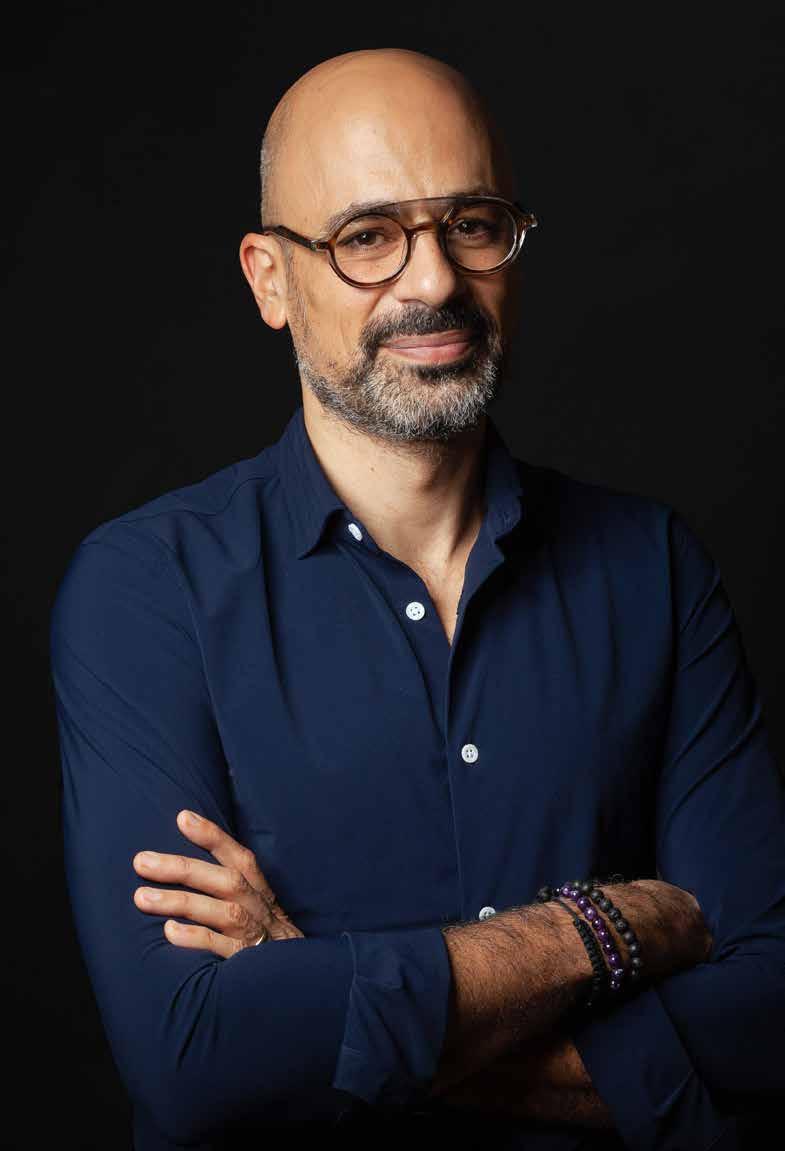
I began using skincare products from my Mum’s beauty shelf when I was around 13. There are several factors that influenced me to take care of my skin. When I was younger, I watched my dad apply skincare, then we moved to Australia for a few years. You have to protect your skin there as the rate of skin cancer is quite high. Finally, my wife is a huge advocate of skincare to help maintain a youthful appearance.
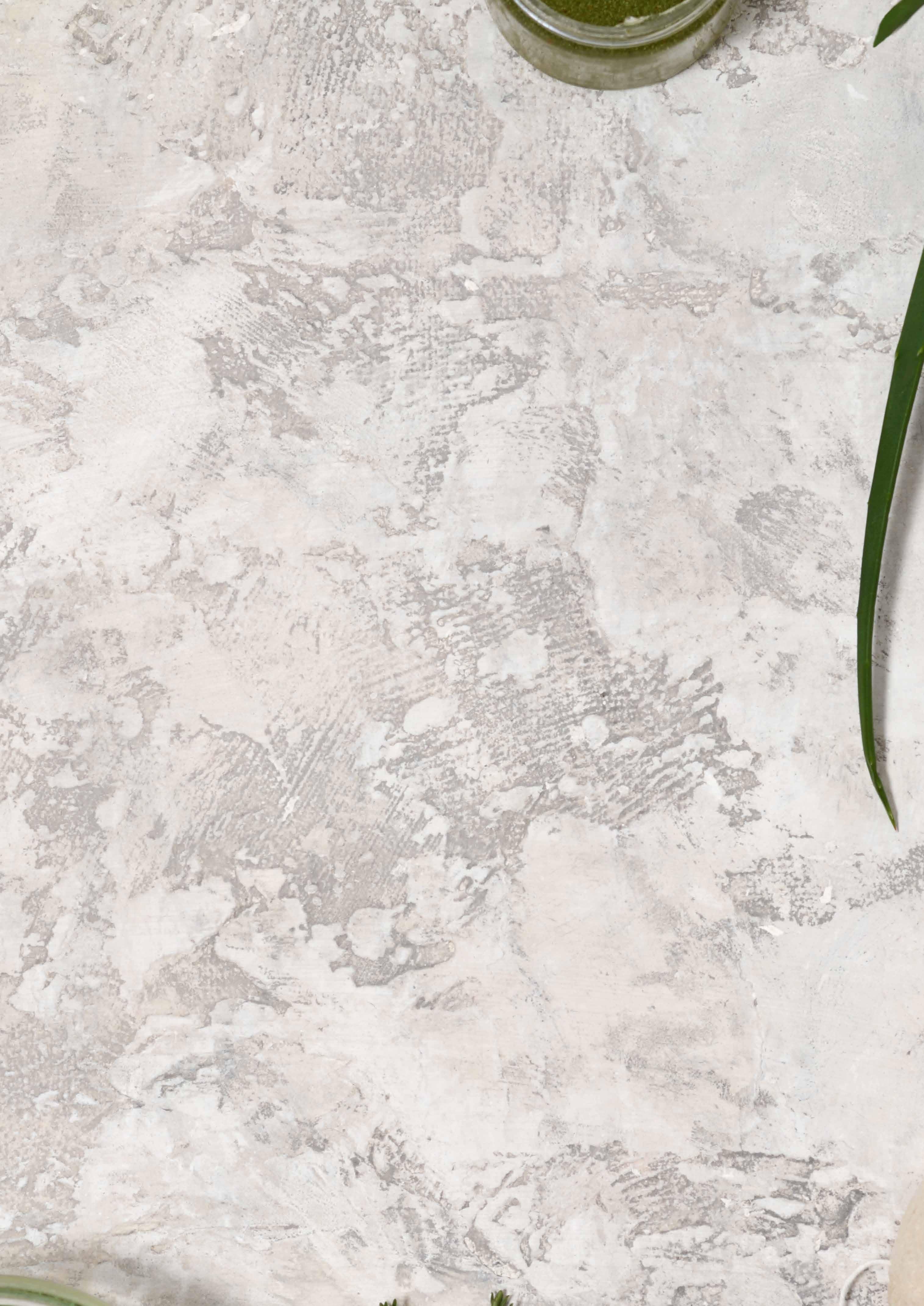
I use a variety of products including Retinol Treatment Oil by Jordan Samuel Skin, Medik8 Vitamin C Serum, Salt and Stone hydrating facial lotion, Kiehl's Eye Fuel Cream, 111Skin sub-zero depuffing eye duo, Kiehl's Facial Fuel energising face wash, and Organic Pharmacy Shaving Cream with antioxidants and some Rodial SPF 50 Drops.
I feel there’s a real lack of education in terms of men looking after their skin, what to use, and why it's important. Unless you are part of a specific industry, you wouldn’t be exposed to beauty products. Many men may not openly talk about skincare with their friends and may not see the value in investing in skincare products. Men often do not see skincare as a separate factor in overall appearance.
I would definitely encourage men to start taking care of their skin as early as possible as a preventative measure. The climate and environment we live in play a big role in the health and appearance of the skin.
To men in their 20s, focus more on self-care and well-being, rather than the party lifestyle. Skincare and beauty for men are seen as “girly” or “not masculine,” and this stigma needs to disappear, therefore education about products and ingredients is key.
63 BEAUTY
GREG WHITE, 38, BRITISH, @GREGWRIGHTUAE
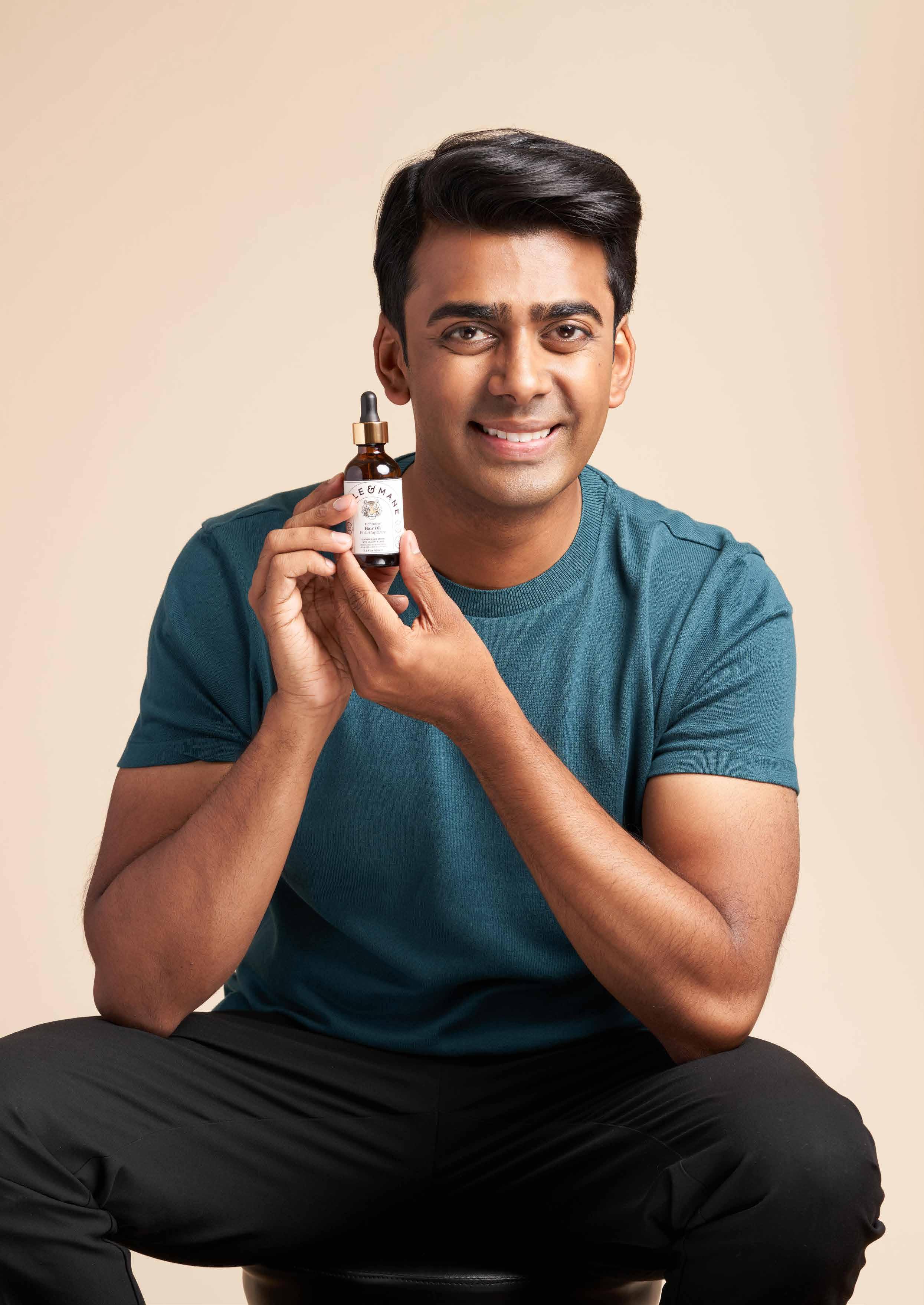
BEAUTY 64
"WE USE FABLE & MANE AS A PLATFORM TO EDUCATE ON DIFFERENT CAUSES AND TO INSPIRE OTHERS TO MAKE A DIFFERENCE."
GET THE GOOD HAIR
Akash Mehta, CEO of Fable & Mane discusses creating the brand with his sister, partnering with Sephora and launching at the onset of the pandemic
BY LAURE SEJEAN
Last year Dubai was taken by a wave of good hair days with the launch of Fable & Mane, a family business cofounded by a sister and brother, Nikita and Akash Mehta. I sat with Akash Mehta, CEO of Fable & Mane to find out more about the origin of the brand and how to get good hair.
Fable & Mane stems from their childhood memories and experiences when their grandmother visited them from India for holidays. Every Sunday they would sit together as a family and tell fables and stories while their grandmother would give them traditional Indian head massages, using incredible and natural ingredients which she created with oils.
Nikita and Akash wanted to share their family tradition with the rest of the world. Fable & Mane is an homage to their grandmother and a way to keep her close to them and help the rest of the world discover Indian hair rituals and best-kept secrets.
While working on the brand concept, Nikita and Akash had as an objective to find the balance between being an Ayurvedic and Indianinspired brand while still being inviting and accessible to a global audience. Hair oiling is multicultural and practised in Mexico, Greece, and Brazil.


Fable & Mane products use traditional ingredients, like ashwagandha, that promotes hair growth, helps repair hair and improves the health of the scalp. Their hero product, the Holi Roots Oil, is light and designed to suit all hair types, genders, ethnicities, ages and should be used for scalp massage as a prewash to provide shiny and strong hair.
“We started working on the brand in 2018. We didn’t want to launch just one product. We contacted Sephora via LinkedIn, and they were interested in our concept and we flew to San Francisco to meet and present. Two years later we launched on the first day of the pandemic,” said Akash.
This period was certainly a rollercoaster but with Akash’s previous experience in Digital Marketing at Dior and Estee Lauder, they were able to work on their online presence and build a strong relationship with their community, given that they spent a lot of time at home during this time.
Akash is currently developing the brand internationally
What does Unfiltered mean to you?
“Being unapologetic. Being the truest, authentic form that you can be. You shouldn't hide behind anything –no filters, no lies and no photoshop; just be proud to be you.”
Akash Mehta, CoFounder and CEO
as well as improving its sustainability. With this in mind, Fable & Mane have created a charity fund supporting Wild Cats in India, to help ensure their survival but also to educate people on these amazing animals, as the current population of 4,000 marks a drastic decrease from their original 100,000. “We use Fable & Mane as a platform to educate on different causes and to inspire others to make a difference.”
Fable & Mane products are vegan and free from silicone, sulphates, and cruelty, and can be found at sephoramiddleast.com.
Nikita and Akash Mehta, Co-Founders, Fable and Mane
Get in touch: @fableandmane 65 BEAUTY
HORMONES AND HIM
Valeo Health’s Dr Mahmoud Musa discusses what hormones mean to men, how to maintain their healthy levels, and what it means when there is an imbalance
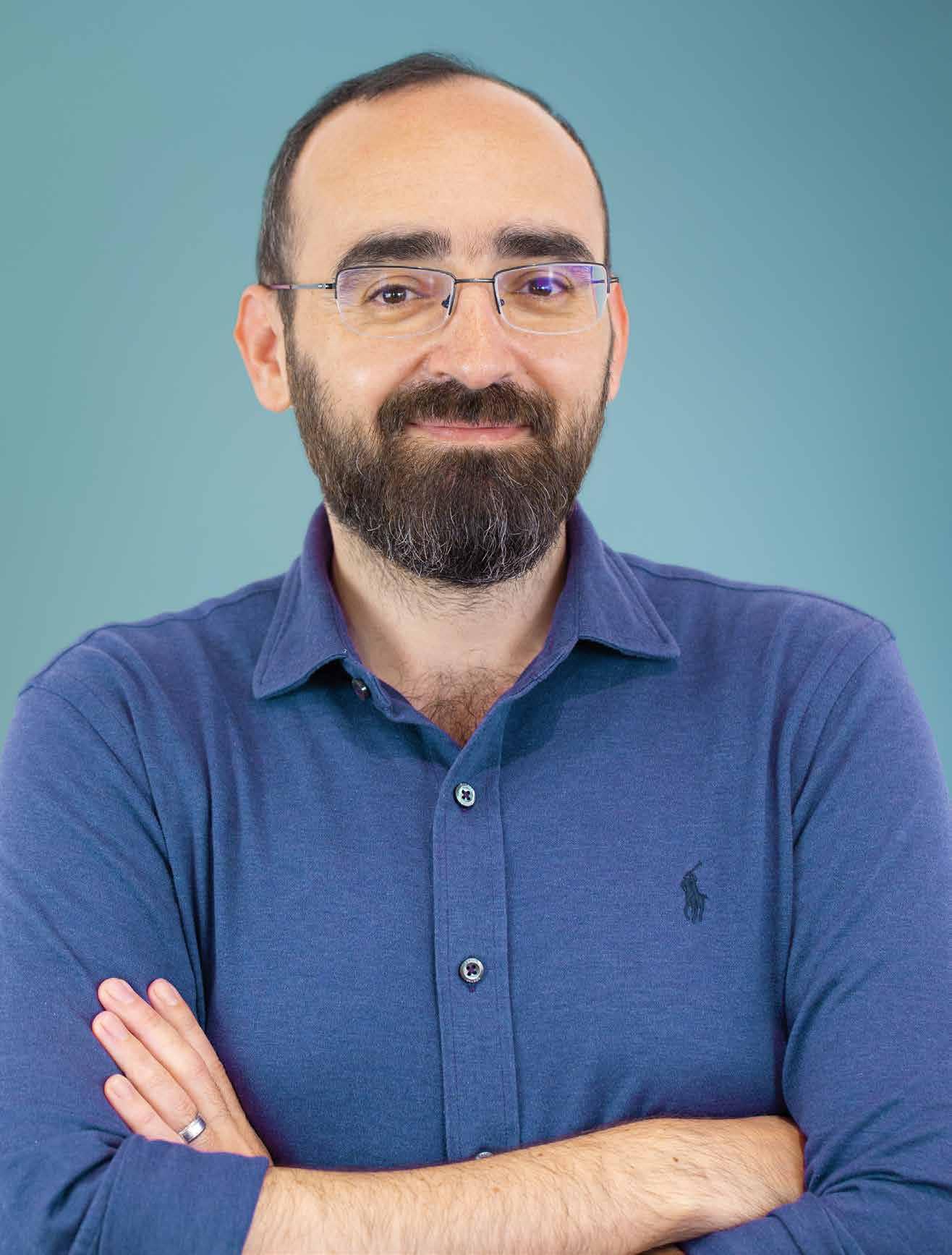
What does “good health” mean for men?
We have a saying at Valeo that health isn’t defined by being free from disease. Disease often takes years to develop. Just because you don’t have one, doesn’t mean you are healthy. Health is a state of complete physical, mental, social, emotional, and spiritual well-being and the ultimate human health is the ability to reproduce. This is causing concerns for some in the health industry because of the rise of infertility, loss of sex drive and even loss of sexual function, especially in men.
Rather than looking for solutions, we really should be looking at the causes. The majority of them tend to be environmental, which means changes to our lifestyle, including a balanced diet, work, relationships, and early life experience, and so on.
What is a balanced diet?
There is a famous quote from Michael Pollan, “Eat real food, not too often, mostly plants.” I would add lots of fish. In terms of nutrition, it is best to stay away from refined sugar, consume less meat and fats, and have enough vegetables and proteins from other sources.
However, diet is an entirely individual thing. We all recognise that each of us reacts to food in different ways and there are various views about what proper nutrition is around the world. At the end of the day, a balanced diet also means eating what you love, what feeds your soul and what makes you happy, but in moderation.
What is the consequence of eating too much sugar for men?
Problems occur when you consume too much added or refined sugar – sugar that food manufacturers add to products to increase flavour or extend shelf life. The effects of added sugar intake vary from acne, cellular ageing, higher blood pressure, inflammation, weight gain, diabetes, and fatty liver, which are all linked to an increased risk of heart attack and stroke.
66 BEAUTY
But fat is needed also for the body to function properly so how to balance it? There are good fats and bad fats; know the difference and you’re good to go. Hydrogenated oils like corn oil and sunflower oil should be avoided as they create inflammation and raise the levels of bad cholesterol (LDL) and triglycerides in the blood. Instead, we recommend using good unsaturated fats like olive oils, fish oils and avocado oil. These have been used for centuries as a source of energy and have been found to be healthy.
What are the imbalances that can lead to health issues for men?
It is evident that an imbalanced diet can lead to all sorts of health issues like weight gain, cardiovascular diseases, and fertility issues among others. Lack of exercise is a cause of health deterioration, especially in men, as they have a higher risk of cardiovascular disease. At the same time, excessive exercise has many negative consequences like an increase in stress hormones and risk of muscle loss, injury, and fatigue. Hormonal dysfunction, such as high prolactin levels directly affects the pituitary gland function, while excessive exercise can also lower testosterone levels.
What are the main hormones that men need to check?
Men and women have the same hormones, but in different levels, although men’s hormones do not fluctuate the way female hormones do. The main hormones in men that need to monitor are testosterone (the main male hormone), follicle-
stimulating hormone (FSH), and luteinising hormone (LH). LH stimulates the testes to produce testosterone, and testosterone in turn controls FSH to stimulate the production of sperm. Prolactin, when present in high levels, can cause low sex drive and indicate pituitary tumours, excessive exercise and kidney diseases. Oestrogen, a feminine hormone, is also present in men, called oestradiol. High levels of oestradiol can cause erectile dysfunction and affect normal sperm production.
How often should men check their hormones? Men should check their hormones at least once a year. However, you may notice some changes in your life and that can make the decision for you. Get checked when you notice a loss of sex drive, feeling down, experiencing low energy and motivation, unexplained weight loss or weight gain, acne in older age, increased hair loss, erectile dysfunction, premature ejaculation, and loss of libido. These may all indicate hormonal instability or disturbances. It’s best to check hormone levels early in the morning when they are at their peak.
What are the other consequences of low testosterone levels? Low levels can lead to premature ejaculation, erectile dysfunction and low libido. Remedies for such conditions include natural supplements and medications like testosterone replacement therapy, and medication. Any remedies need to be closely monitored by a doctor as some of them can lead to heart and blood pressure issues.
However, testosterone is not limited to sexual performance; low levels can cause belly fat, mood swings, irritability, lack of interest, fatigue, high blood sugar, and palpitations.
What is your opinion of steroids?
Steroid use is illegal in the region without a prescription. The reason is clear – using steroids without a prescription has multiple potential issues. There are so many reasons to question this decision in the absence of a qualified medical practitioner.
Can you tell us more about male menopause?
Also called andropause, it’s a decrease in testosterone levels that often occurs as men get older. However, testosterone isn’t the entire solution. As men, we experience multiple other changes: hair loss, erectile dysfunction, going grey and general ageing. It is essential to take care of physical and mental health as men age, including having a thorough exercise plan and a healthy diet. Men really should lift weights as they age!
Men can also use supplements and hormone replacement therapy (HRT) as potential solutions for those experiencing a decrease in testosterone. Hormones have an impact on the prostate hence maintaining healthy hormone levels to prevent benign prostatic hyperplasia (the need to get up at night to go to the washroom) and prostate cancer.
Get in touch: feelvaleo.com 67 BEAUTY
"IT IS ESSENTIAL TO TAKE CARE OF PHYSICAL AND MENTAL HEALTH AS MEN AGE, INCLUDING HAVING A THOROUGH EXERCISE PLAN AND A HEALTHY DIET. MEN REALLY SHOULD LIFT WEIGHTS AS THEY AGE!"
DOODH, WHERE’S MY CARBONARA?
Doodh creator Nick Regos discusses his love of food, hopes for Dubai’s F&B scene, and doing what makes you happy
 BY JESSICA COMBES
BY JESSICA COMBES
F&B 68
What started as simply cooking for himself for his own enjoyment and entertainment at home, very quickly became more serious when Nick Regos started trying recipes out of his comfort zone, flopping, and figuring out where he went wrong.
“I was just honing my skills which graduated to people saying, ‘Hey, you know, that cake you made a couple of weeks ago? Would you make it for my kid's birthday?’ with an offer to pay me for them. It got to the point where I had to ask myself if it was a viable business or just a hobby.”
Regos came up with the name Doodh after a 90s milk
flavours, I love to ask people if they could have any flavour ice cream what would it be? They get taken aback and don’t know what to say because the whole world is open to them,” he said.
DREAMING BIGGER
Doodh is still in the home kitchen phase of Regos’s plan, relying on word of mouth, because the reality of launching a business in the F&B space requires investment, permits, licensing, and a lot of time and energy.
During a holiday in Pittsburgh, he visited a pop-up food incubator similar to Time Out Market Dubai. Instead of restaurants, it hosted aspiring home chefs seeking investment to launch their businesses. They
women were in the kitchen and breaking away from that in his teens and early 20s was a hurdle, but he feels men have more freedom now to decide what they want to do with their lives, without being hemmed in by stereotypical roles, attitudes and belief systems.
advert in India, the jingle of which remains firmly stuck in his head. “I crafted a logo; I knew exactly what the lettering would look like. I launched it very discreetly on Twitter and people loved it. I built the website, created the menu, and figured out a payment system and it went from there. I want to go from my kitchen to a restaurant or café which is also a speakeasy. I want to create somewhere cosy where people can come in and focus on the food and not necessarily feel like they need to Instagram everything,” he said.
One of the desserts Rego has mastered is ice cream, which pushes the limits with unique flavour combinations. It only took him four batches of vanilla ice cream until he felt confident in using the machine and was able to balance the sweetness.
“Once I had that base mixture right I knew I could branch out to any flavour, and know exactly how to do it. When it comes to
each had a kitchen and a menu, and it gave these individuals a taste of what running their own establishment would be like. More importantly, it allowed investors in the area to sample the menu, see how the kitchen was being run, and ask for a business plan.
“I would love for something like this to exist in Dubai because I know there are so many talented home chefs but there’s nowhere they can go to other than their families and friends. If you give people that opportunity, put them through the basic health and safety courses, tell them how things are supposed to run and give them a week to slum it out in the kitchen running a business, they'll realise very quickly whether this reality is what they want to pursue or not,” he added.
IGNORING STEREOTYPES
Regos grew up in a home with traditional gender roles where
“Just as women's roles evolved over the years men's roles have also evolved, and nobody out there should criticise you for it. If you want a nine-to-five job and be the breadwinner for your family, do it. If you want to work for a couple of hours a day and then do art classes or musical theatre in the evening, do it. Do what makes you happy. I feel sorry for men who don't realise that that opportunity is there. Obviously, there may be financial or family obligations but even within those restrictions, there are freedoms that you should allow yourself. I think the sooner men realise that the sooner they can become a better version of themselves.”
Nick Regos’s top 3 things to make:
1. His signature carbonara.
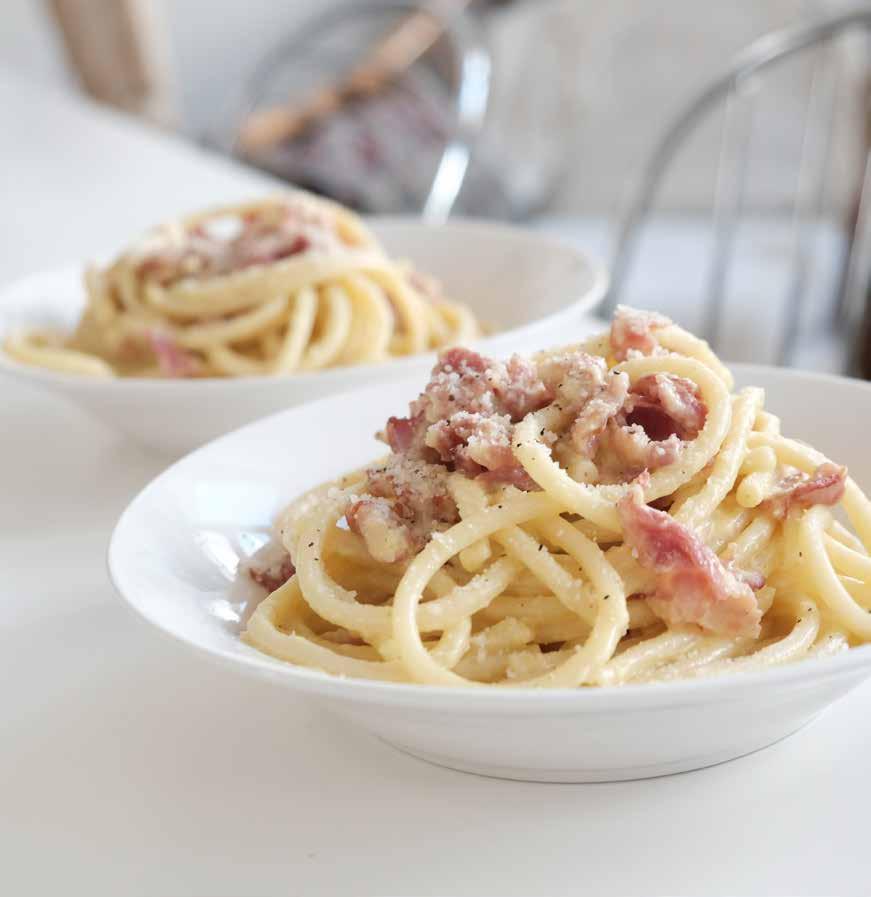
“It is the ultimate comfort food for me.”
2. Dark chocolate cookies
“They give you a real hit because of the cocoa content.”
3. Chocolate cake
“I made this cake for a bake sale and it was sold out in 10 minutes.”
Get in touch: @theregos | @doodh.cafe
69 F&B
"I WANT TO CREATE SOMEWHERE COSY WHERE PEOPLE CAN COME IN AND FOCUS ON THE FOOD AND NOT NECESSARILY FEEL LIKE THEY NEED TO INSTAGRAM EVERYTHING."
MERRIMENT ON MERIT
Mr White, of White Parties, talks about the event’s Parisian inspiration, keeping the event interesting and ensuring nobody leaks any secrets
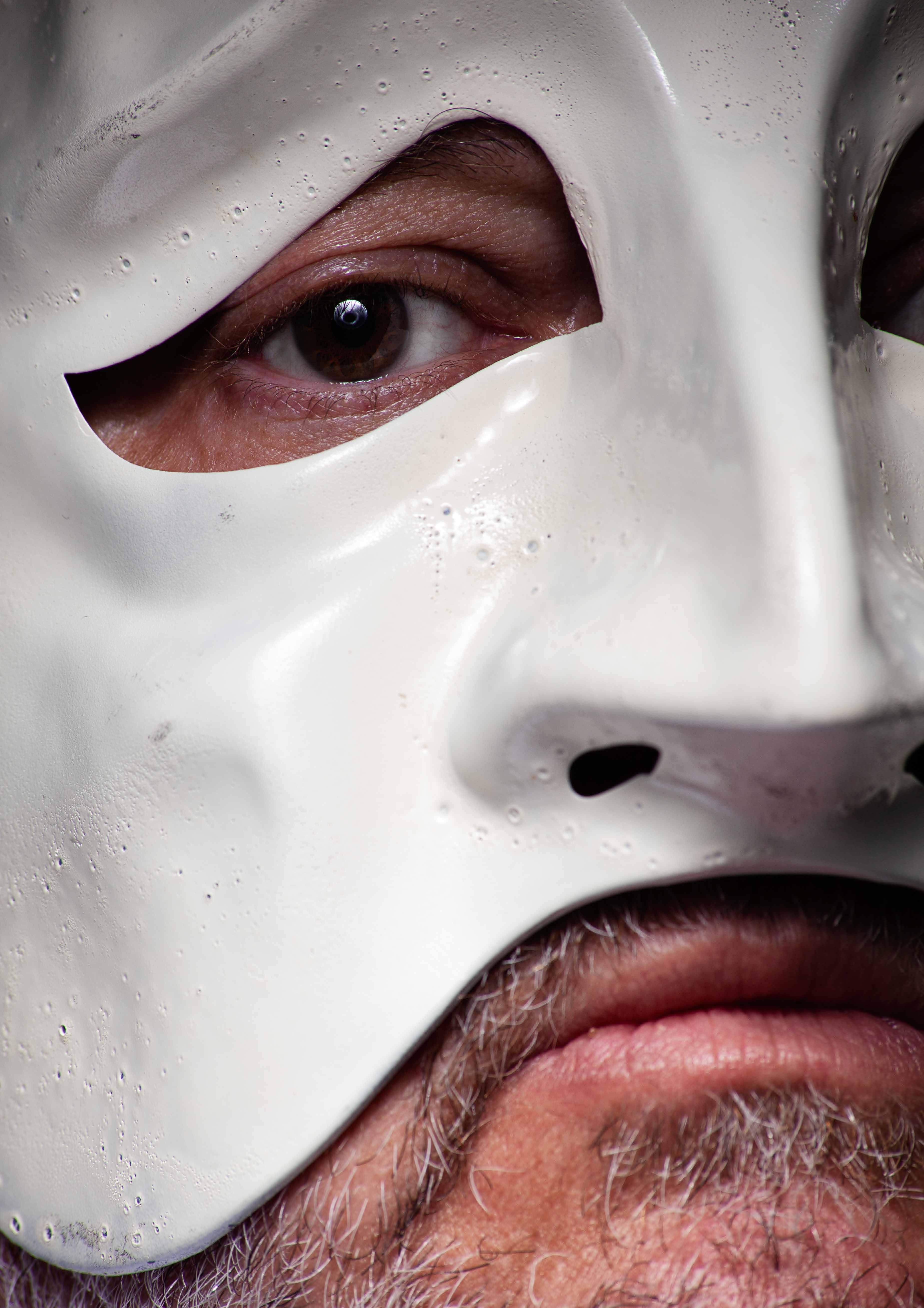 BY JESSICA COMBES
BY JESSICA COMBES
in
@mrwhitedubai 70 F&B
Get
touch:
Mr White wouldn’t necessarily call the White Parties famous, since he doesn’t feel the number of social media followers provides a true indication. But he does concede that they are rather glamorous, but not in the clichéd way Dubai is portrayed on certain reality TV shows, as far as the parties are concerned, he says he is but a puppeteer.
Inspired by an event that started in Paris, where guests would meet in a public space for a secret pop-up dinner, the parties in Dubai needed a bit more structure and planning since the guests can’t very well just turn up in public and have an event. The workaround included finding venues that were willing to collaborate and asking guests to contribute while preserving their key principles of remaining anonymous, not making the event money-oriented, and keeping the party a secret
The delicious exclusivity of the event is that no amount of followers, fame, PR, or money will guarantee an invite. Instead, it really comes down to who you know, and White describes it as a pyramid structure. “I appoint gatherers and they appoint table leaders, and these guys bring in the right people. We are very strict about who we choose, and if from one year to another someone misbehaves, they’re out. I'm very cautious about bringing in new people and the first question is, ‘Who can recommend you?’ Sometimes they may not know anyone, and I just have a feeling that the person will fit the bill, and then they are welcome,” he said.
The second requirement is making an effort. Guests are required to dress in white, bring their food and provide really beautiful table decorations which fit a theme, and that is not an effort that can be bought. It creates a commitment. One group that stood out to him was a table that embraced Wimbledon as their theme, and they came dressed in tennis whites with racquets. Since the parties are not held often, the guests make them exceptional.
KEEPING SECRETS
Once an agreement is reached with a venue, White admits that’s when the paranoia kicks in and very few people know about the venue to ensure its secrecy. The venue generally has the party registered as something, like John’s birthday, to avoid leaks.
Often, when bookings are made at venues the staff has no idea they will host a White Party. For example, at one venue the event was registered as John's birthday. From there the preparation is extremely organised and the set up on the
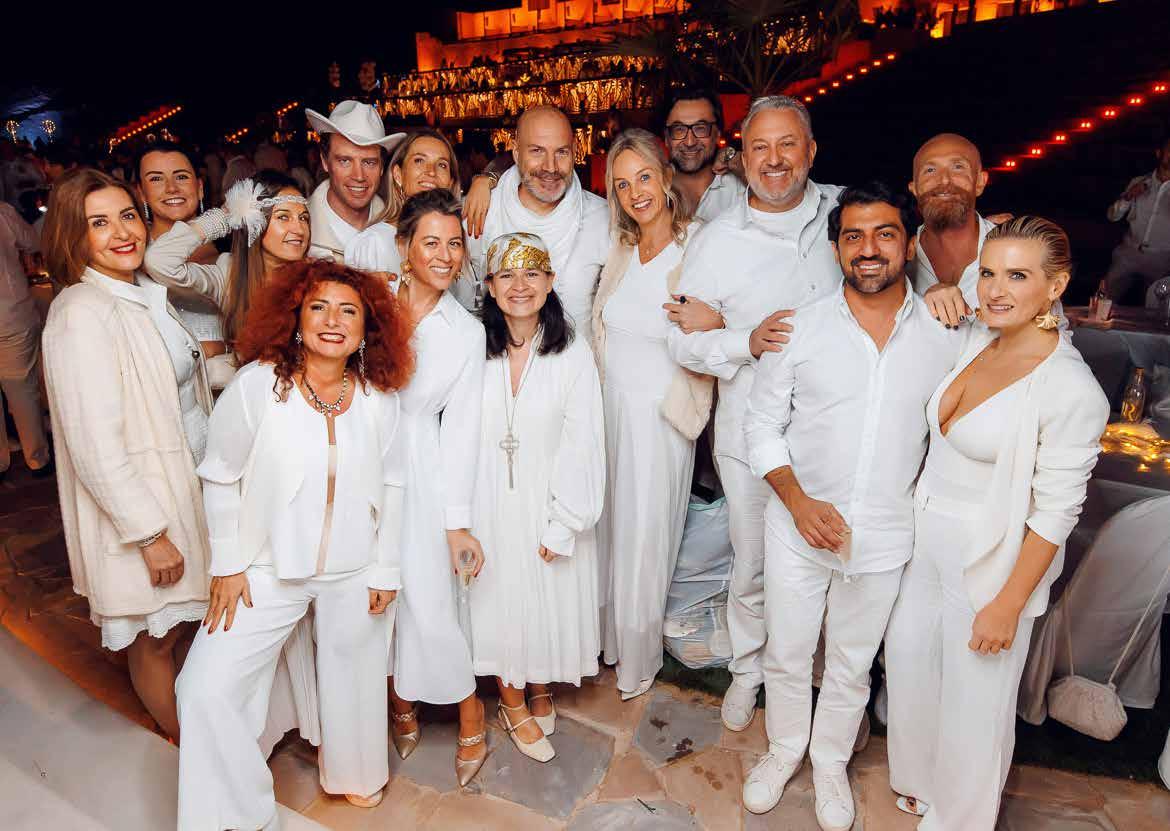
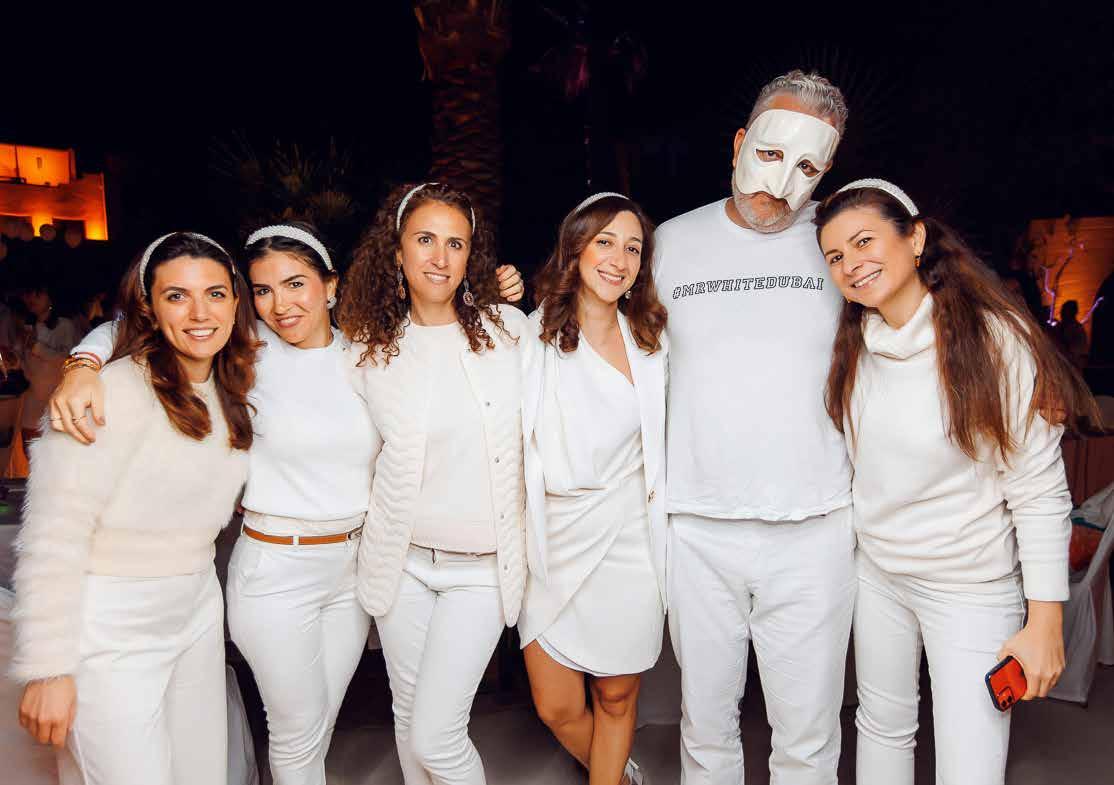
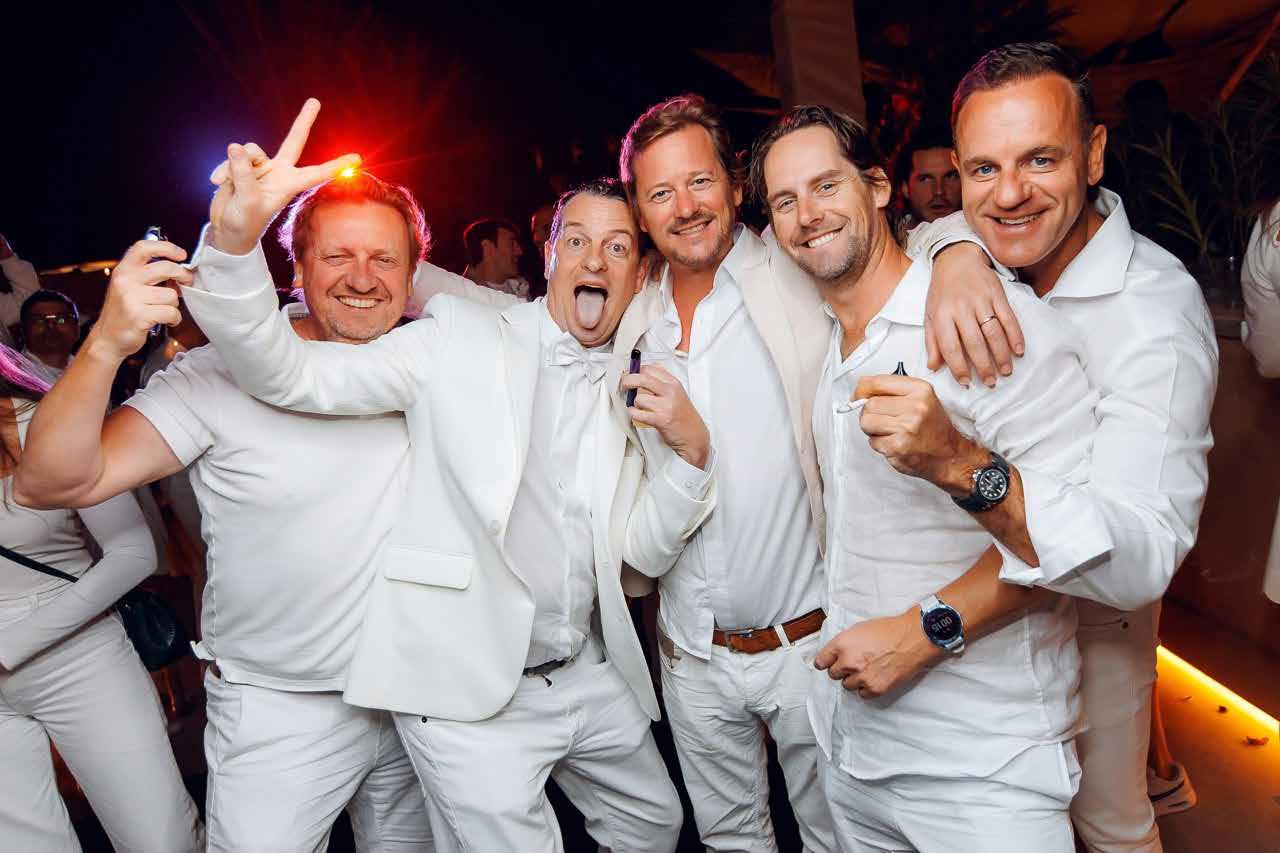
day is well orchestrated. It builds anticipation for the guests who get on the tour bus with their picnics and no clue where they are going.
“We always try to find venues that have a ‘Wow!’ effect, because it’s usually a beautiful venue, it's a great party venue, and it's ideally a venue where the guests have never been before, or that that they’re experiencing it in a new way,” he added.
“I‘M VERY CAUTIOUS ABOUT BRINGING IN NEW PEOPLE AND THE FIRST QUESTION IS, ‘WHO CAN RECOMMEND YOU?’”
71 F&B
PRIORITISING PACKAGING
Fayaz Punjani 41, Canadian, tells us all about saving the environment and the importance of being on the same page as your partner

72 HEALTH
Tell us about your business – what inspired the idea and when did you start it?
Ecopack was designed as a platform to create sustainable solutions for a healthier planet, founded by myself and my partner, Ash Parmar. With extensive experience in green solutions, packaging, sustainability and logistics we both saw a gap in true sustainable F&B packaging along with tremendous amounts of greenwashing in the region.

Our connections in the manufacturing industry combined with the depth of our local network seemed to be the ideal way to move forward on this venture. In addition to our investment banking backgrounds and current roles in our self-owned businesses, we knew that if we were going to create this platform, it had to have not only an environmental impact but also, as a greenfield business, be able to scale dramatically.
With the recent growth of cloud kitchens, the high growth rate of new low-tomedium-sized restaurants, the reliance on meal plan companies, and the recent decision by hotels to incorporate sustainable goals in operations, we knew that an efficient solution needed to be put into place, and so Ecopack came to life in early 2019.
What do you consider to be your greatest personal and professional achievements?
We formed Ecopack just months before the Covid-19 pandemic took the world by storm. We had a decision to make – stay dormant and wait for the storm to pass or pivot the business despite creating a brand focused on a 100% sustainable product.
Restaurants needed supply chain support versus products that were marginally more expensive than the boilerplate packaging they had historically been using. This is where we saw an opportunity to create not just products that clients would receive well, but that are innovative, and of a superior quality than the region has
seen, and to do this all while having the efficiency of a large-scale organisation.
We began to invest heavily into R&D, creating products that had a competing edge, made the choice to stay nimble by farming out logistics and accounting to third-party operators while simultaneously developing a tech platform to link our front and back-end business. The result was an asset-light business that not only took care of customers’ needs better than any competitor can in our opinion, but an organisation that had the ability to be scaled simply by having the capacity to replicate the platform easily.
My wife and I have raised three amazing children with their own unique personalities. Misha, a 12-yearold overachiever, is focused on not just academics but also athletics. Kian, our nine-yearold bookworm, is one of the most empathetic and kindest with a love for football. Finally, Laith is our four-year-old with so much personality. I feel so blessed to be able to be on this journey and raise these children together with my wife Anissa.
What were your biggest business challenges? How did you overcome them? A heavily competitive landscape such as the packaging industry can be a daunting entry point for any new business. What if competitors outprice you? What if clients don’t care about quality? How
does procurement play such an important role in deciding what packaging an organisation uses? With the CAPEX involved in manufacturing how do we manage long order processes and logistics?
We decided on the core fundamental values that Ecopack would have as a business. We did not just focus on pricing or quality, but how we planned to create a platform that would reengineer the way packaging was bought, sold and distributed in the region. We believe in leaving the world a better place than we found it and want to help make a difference through our product, the platform we have, and the community we create. This I feel has been the key success of Ecopack, and not only helped us retain clients, but has now begun to attract new clients organically.
What three pieces of advice would you give to the younger generation that might want to follow in your footsteps?
You need a solid business plan, a detailed financial model, and lastly a selfless dedication to your goal. We have spent hours, days and even months with clients in order to demonstrate our core principles. We have been on the logistics floor and even used our own personal cars to arrange deliveries early on when there were transport issues. We are now in the process of fundraising and hope to see a return for our time and hard work, but in the past three years have spent above and beyond what a normal employee would do for an employer, in the true spirit of an entrepreneur. There are no fancy salaries when you start and there are no bonuses. You commit your own time, risk your own capital, and devote yourself to reaching your goals.
Get in touch: @fayazpunjani ecopack.me
73 HEALTH
“We believe in leaving the world a better place than we found it and want to help make a difference through our product, the platform we have, and the community we create.”
FIGURING OUT FATHERHOOD
Michael Hanson discusses being a new dad, waiting for that moment of connection with his baby, and managing when it didn’t happen immediately
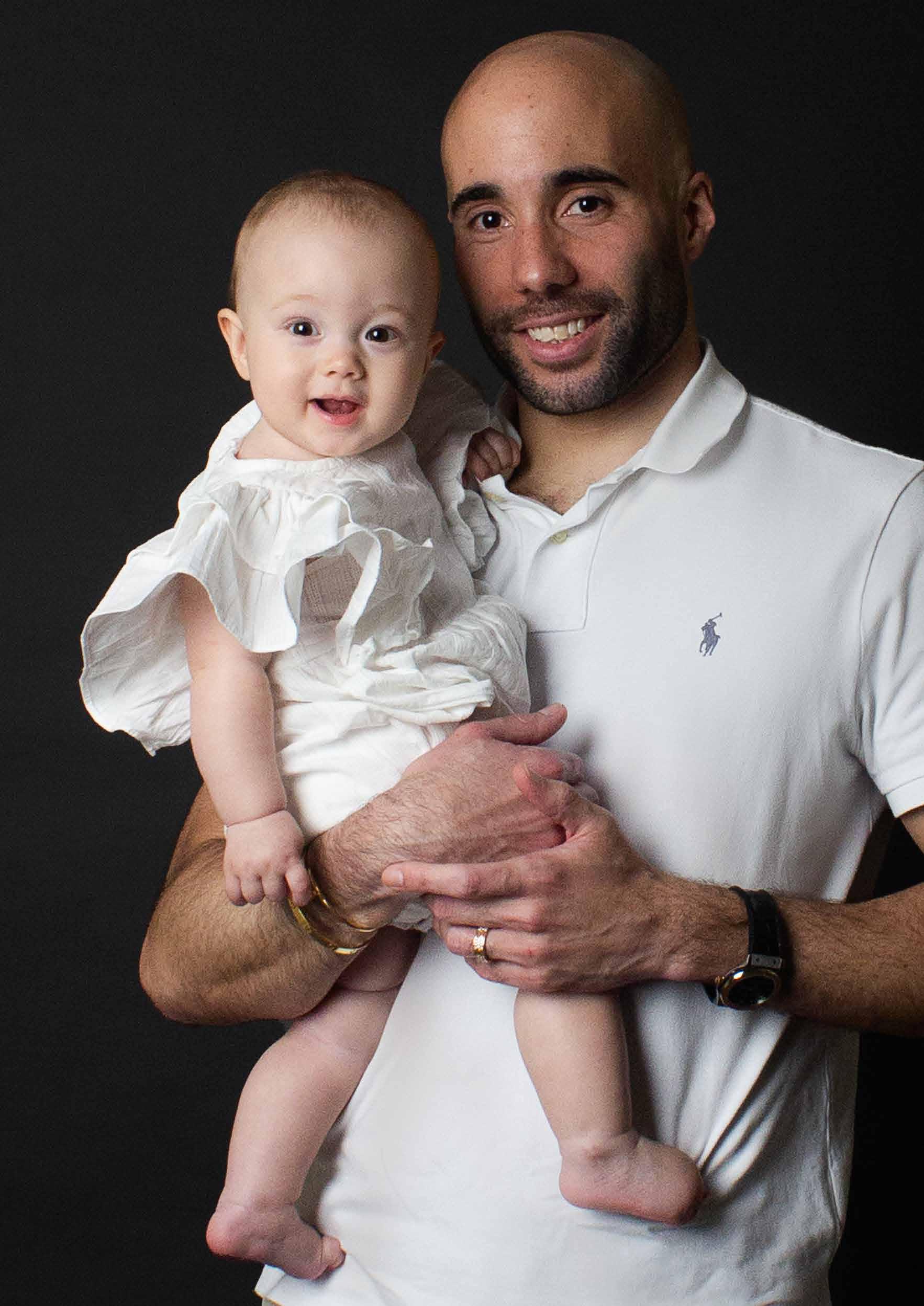 BY JESSICA COMBES
BY JESSICA COMBES
74 HEALTH
When Michael Hanson and his wife, Kate were expecting their first child, Cece, they were assured by the people closest to them that it would be the best thing that ever happened to them and when the baby is born, there’s a magical moment of connection that happens between it and the parents. They were also told that a baby would just fit into their lives with minimum adjustment needed.
Hanson said the build-up to the birth brought him and Kate closer together, particularly in the first few months when only the two of them knew. Once they started sharing the news and friends and family got excited, people would ask him how he was feeling and he’d always give a non-committal reply.
“I was a bit apprehensive. I didn’t know what to think. I didn’t know how much was actually going to change. I'm not one to open up about my feelings. I don't have a super close group of male friends who I would have that openness and those kinds of conversations with. At the same time, Kate needed my support, her body was changing while growing a baby, and I sometimes felt like a spare part stacked in the side-lines,” he said.
During a particularly difficult birth and an emergency C-section, Hanson was more concerned about Kate, and he started to feel guilty because he wasn’t worrying about the baby instead. Thankfully, Cece was born absolutely fine, and while Kate was in post-op with the surgeons, Hanson was whisked away with the baby.
“I was looking at her, thinking she's so sweet. But I hadn't had this magical moment. It wasn't there for me. The next few days it was just us in the hospital in our own little bubble; the three of us getting to know each other. There was a nurse there on hand to help us, and then all of a sudden, we had to go home. We had to care for this baby,” he said.
Stating the obvious, everything revolves around a newborn, and somebody always has to be there. Hanson is the first to admit he didn’t know what he was doing and felt like he was winging it. Kate also hadn’t had that moment, given the traumatic birth and all her focus being on Cece.
BACK TO WORK
Hanson had a week with his new family before returning to work. He found it tough to leave each day, he was exhausted because Cece
wasn’t sleeping, and battling with not going to the gym to address his stress. “My mental health had gone down. Sometimes I would just come into a room, and I could feel myself trying to snap out of it. I felt like I couldn’t tell anyone about the pressure I was feeling. I felt that as the man I should be taking care of my wife and baby. It’s really difficult to control those thoughts when you’re completely exhausted,” he said.
At that time, Hanson felt like he was struggling through each day, still waiting for everything to fall into place. Slowly, he started to communicate about everything that was weighing on his mind with Kate, who was incredibly supportive.

After a few months, as Cece became more aware and interactive and started to recognise Hanson, she’d be upset when he left and she would let him comfort her, and that’s when he felt like he was developing the bond. It grew as Kate started her own salon which took a lot of her time and Hanson could take on more of Cece’s daily routine, which made him useful and like he was contributing.
A year later, while there are still changes that take getting used to, Hanson feels more settled. “Cece’s beautiful. Any time that I wonder what I’m doing or if I’m doing it right, she looks at me and gives me a smile, and I feel ok again.”
MICHAEL HANSON’S ADVICE FOR NEW DADS
Everyone will have their own journey and just because you feel differently to others doesn't mean you're doing anything wrong. It doesn't mean that you're failing at all. People will struggle. If you can talk about it, it takes a lot of pressure off and then you will realise you're not the only one struggling with those feelings. Don’t believe social media – nobody is going to upload posts of their screaming baby and everyday struggles.

Get in touch: @soaksalon_dxb 75 HEALTH
“I felt like I couldn’t tell anyone about the pressure I was feeling. I felt that as the man I should be taking care of my wife and baby.”
MEN-TAL HEALTH MATTERS
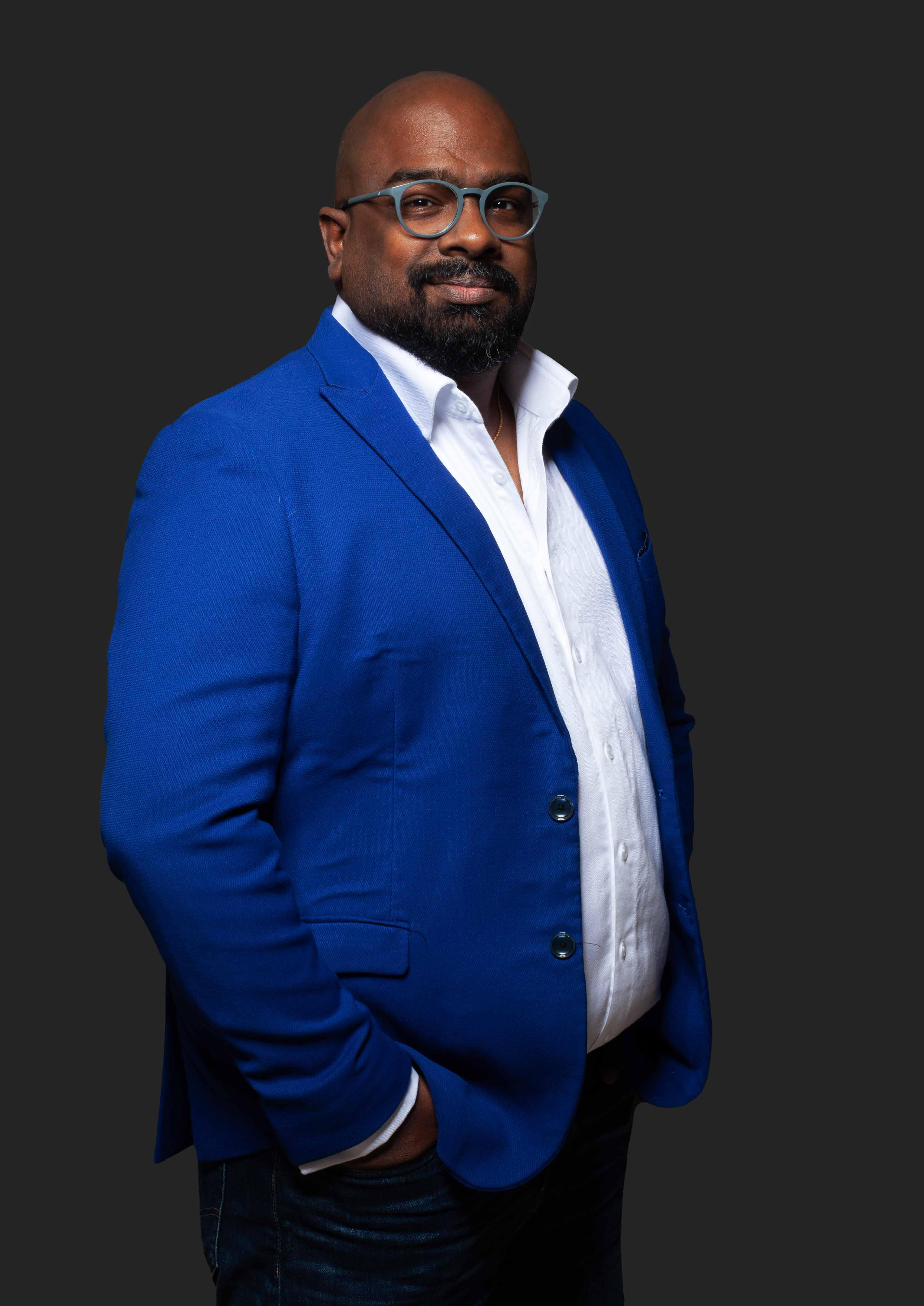
Anthony Permal highlights the gaps in support for men battling with mental health issues and the importance of being educated on this subject
BY JESSICA COMBES
76 HEALTH
When Anthony Permal called off his wedding, it was only in retrospect that he realised he did it because he was trying to reconcile a lot of mental stress from the expectations he was experiencing from many people and from many directions.

He felt immense pressure to get the wedding and their post-wedding life perfect. He also felt the pressure of wondering what his parents would think, and if society would point a finger at “another man who doesn’t want commitment” if he decided to call off the wedding, particularly since a lack of commitment was never the issue.
“Whenever this topic comes up, I have to emphasise it was never her fault. It wasn't her. It was everything around her. I had to make this decision because it was better to do it before the marriage than during it. When I did make the decision, obviously, it was heartbreaking for everybody,” said Permal.
Thankfully he had support from his close friends and, more importantly, his parents. “The day I told them there was no hesitation from them. They had no qualms about saying they didn’t care about what other people thought. They wanted me to be happy,” Permal said.
He added that men carry a lot of expectations so to have that degree of support from his parents was important to him. Then the healing started. “I travelled and met friends I hadn't seen in 10 years. I flew to their cities. We hung out and I reminded myself that there are so many other things in life that I had been putting off.”
THE BIGGER PICTURE
Permal, who works with pharmaceutical companies, suggested that often people attribute mental health issues to stress, putting a larger problem down to being tired from work or having issues with their boss or just needing a holiday. In the area of mental health, the problem is all the material for educating people is centred around placing the onus on people that are struggling to reach out and talk to someone and we need more data to tell people what to look for in friends or even themselves.
He added that even if a friend does reach out, what support can people really offer? People say they’re here to talk but what would they tell their friends who are struggling? It’s not about sitting together and having a chai, although it’s nice to do that and shows good intentions. He drew the comparison of watching a friend suddenly have a heart attack.
“It’s not helpful to say reach out to me and I'll help you. I don’t know how to treat an attack. But I can make sure I have the paramedics on
speed dial and get trained in CPR. It’s the same thing with mental health. Go online, and study what the signs are. I think we suffer as a society when we do not educate people on the signs of mental health. We only educate them on the impact of mental health issues. We educate people on where to go to get a therapist, but we don't educate them on understanding whether they have the issue or not, and I think that's more so with men,” he said.
He experienced a situation a few years ago where a salesman who was selling mental health medication came to him and confessed he thought he was suffering from depression. He tried to go to a psychologist’s office three times in one week and turned around in the parking lot every time. “If he wasn’t able to go in, what about the average man on the street? I think mental health advocates are trying to do a great job, but I think they're still only looking at the surface level of education. I think there's a long way to go, especially for men,” he said.
He added that the reality for men is a lack of mental health resources, specifically in terms of support groups. “Now, somebody might ask why I don’t start one. I'd love to but who do I go to? Where do I go? What are the legalities around it? I don't know who to ask. We don't know whether some people's insurance covers mental health or not. Aside from having to make the time to go see a psychologist, it’s expensive and he's already stressed with finances, he's already stressed with debt. He's already stressed with putting kids through school. He’s being asked to pay upwards of AED 2,000 per session – that’s some people’s entire salary. So, we need a better solution,” he said.
Get in touch: @anthonypermal
77 HEALTH
"We educate people on where to go to get a therapist, but we don't educate them on understanding whether they have the issue or not, and I think that's more so with men.”
H2O WITH HEART S
Stefano Iorini, Managing Partner at Monviso Trading discusses his passion for his brand, giving back to the community and saving the planet
BY JESSICA COMBES
tefano Iorini’s main business is a fresh fruit supplier to the Middle East, which had its fair share of challenges. When one of his fruit suppliers invested in a water bottling factory in Italy and asked him to introduce the water brand to the Middle East, he wondered how hard it could be. As it turned out, quite a bit. The worldwide market is controlled by very few, large corporations and for a while, Iorini wasn’t sure what he was going to do to break into the market. MonViso water is premium and very light, coming from the highest spring in Europe, making it pure and with a low mineral content.
“I knew that it would be difficult to compete with the multinationals, so we started promoting our water at events, particularly sporting events. My focus is on sports and art. We’ve done quite a lot of events the over the years. The most important was made, I think in 2019 we were the sponsor for the 3030 in Indonesia initiative in October. For the last two years, we sponsored the Dubai Film Festival, placing our bottles on the seats. We tried to be different through our marketing and with a limited budget, and the full team worked weekends and evenings at the events,” said Iorini.

Iorini and his team have worked steadily and now partner with initiatives where, for every litre sold, they pledge AED 1 to the Al Jalila Foundation, and were
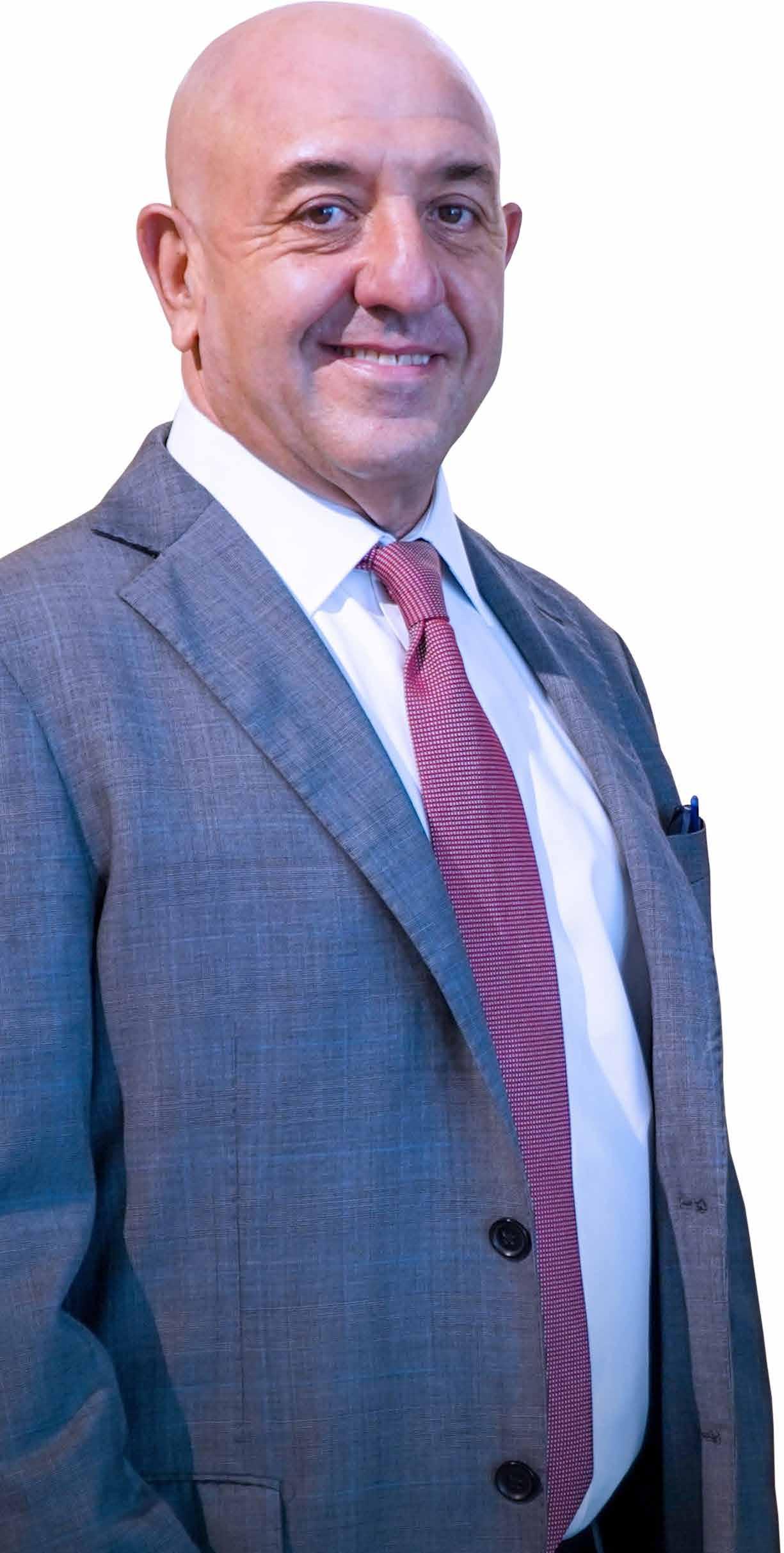
78 HEALTH
at around AED 1.2 million at the time of this interview. “We don’t feel like we are selling water; we feel like we are selling a brand and the heart of our brand is recycling. We collect the empty bottles from homes and restaurants and we send the glass to a company in Jebel Ali that crushes it and sells it as raw material for glass manufacturers. The plastic is given to a company that makes textile fibres. My dream is to keep the brand growing with this initiative,” he said.
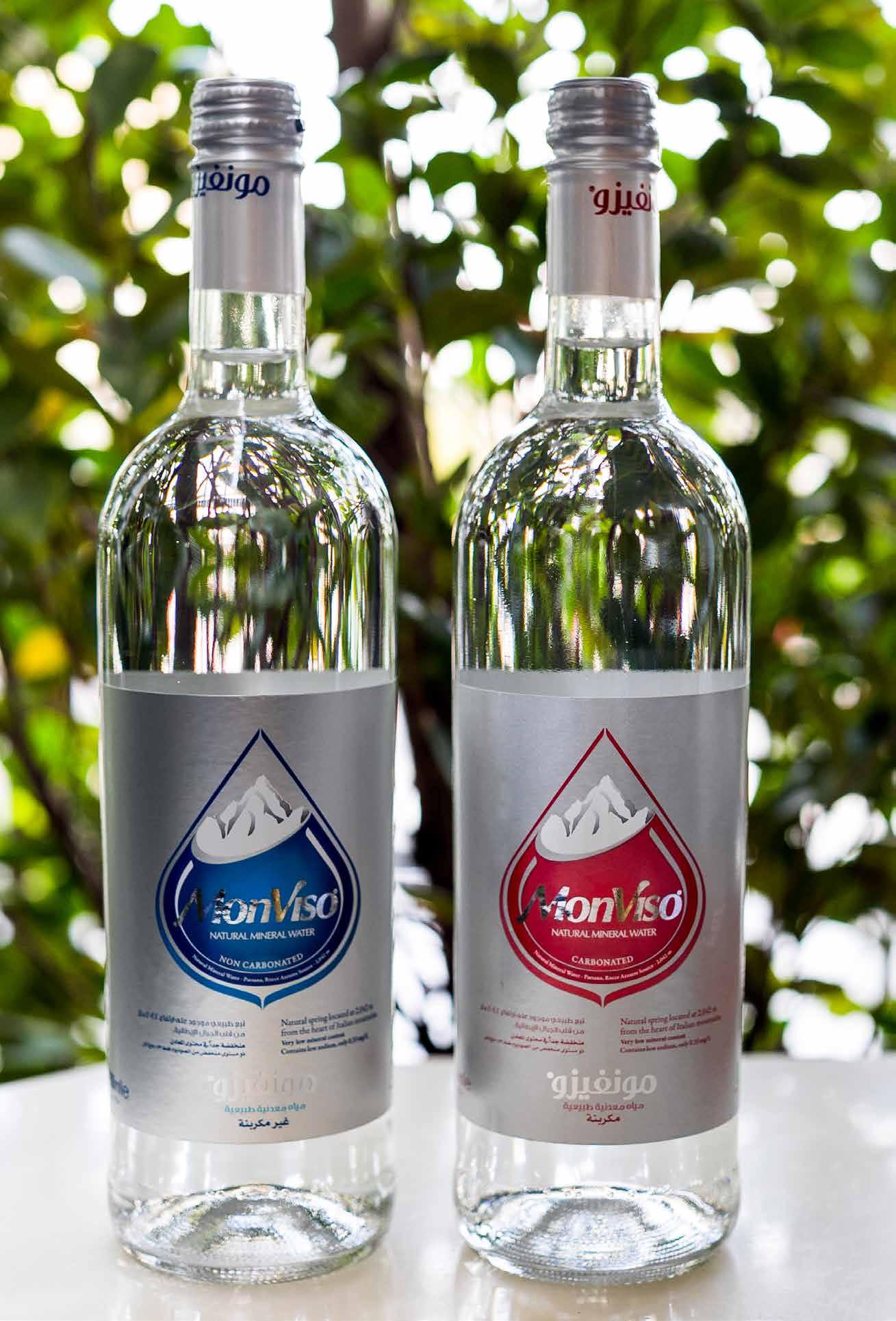
POST PANDEMIC
Despite many areas of life returning to normal after COVID, inflation and the
corresponding hike in costs are still very real problems. Previously, agreements were in place with fixed pricing but a recent phone call from his supplier in Italy left Iorini shocked. Their order couldn’t be processed unless they agreed to a 13-15 per cent increase. All the costs have skyrocketed, from electricity to shipping, and he can only hope that his customers will be sympathetic to this problem, which affects everyone.
MonViso is Iorini’s passion and he strongly believes that every brand should give back to
its community. “I see more and more that consumers are engaging with brands with values and less with the products, particularly since there are so many products available. Of course, we hope to increase sales. What we’d really like to see is an increase in the number of people that recycle our plastic and glass and help our contribution to medical research and the planet,” he said. He’d also like to combine his passion for his brand with his love of art, collaborating with different artists from around the UAE to create bottle labels, all he needs is the right connection with the right people.

Get in touch: @monvisowater HEALTH 79
“What we’d really like to see is an increase in the number of people that recycle our plastic and glass and help our contribution to medical research and the planet.”
HEALTHY HEADSPACE
João
Lourenço
, Clinical Psychologist, discusses the challenges facing young men in breaking harmful stereotypes and managing their mental health
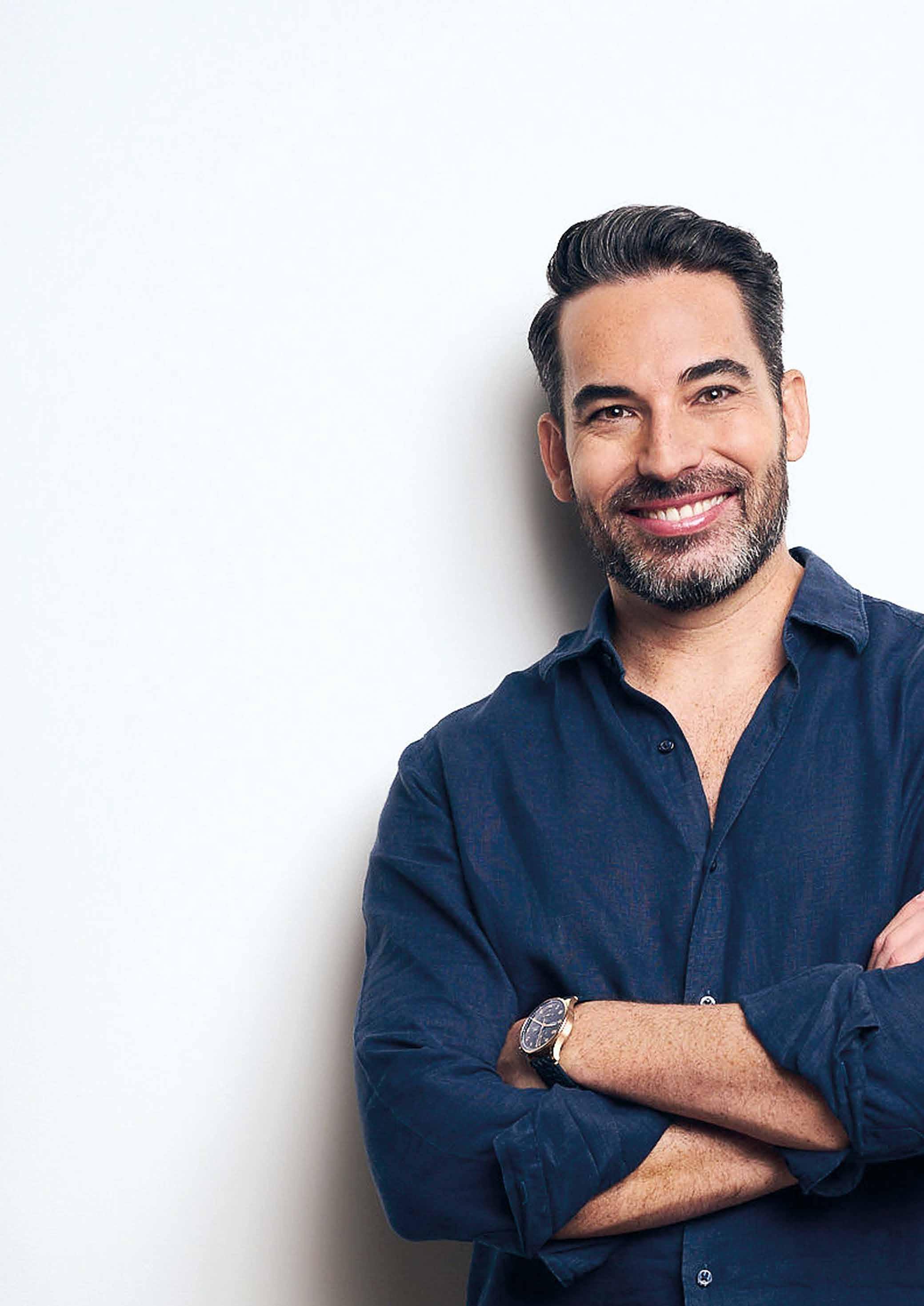
Boys and young men face a variety of challenges when it comes to breaking negative stereotypes set by society. These stereotypes include the idea that boys should act a certain way or that they should be stronger and tougher than girls. To combat these stereotypes, boys and young men need to be encouraged to express and embrace their emotions, to be open to talking about their feelings, and to be comfortable with being vulnerable. Furthermore, boys and young men need to be encouraged to focus on their mental health and to take care of themselves.
ASKING FOR HELP
Boys and young men are less likely than girls and young women to seek help for mental health issues. The stigma around mental health, as well as a lack of
HEALTH 80
education about mental health, can be major obstacles to boys and young men seeking help when needed which can lead them to believe that seeking help for mental health issues is a sign of weakness. As a result, men are less likely to seek help for mental health issues, which can lead to more serious mental health issues going untreated. Research has shown that men are three to four times more likely to die by suicide than women. At The Free Spirit Collective (FSC), we recognise the importance of mental health support for boys and men. We are committed to creating a safe and supportive environment where boys and men can come together to discuss their mental health needs by creating groups and workshops specifically designed to support boys' and men's mental health where they
can talk about their feelings, share their experiences, and access resources to help them manage their mental health. We will also continue working to raise awareness of mental health issues among boys and men, so that they can better understand the issues they may be facing and feel empowered to seek help.

ACCESS TO SERVICES
It's crucial to increase access to mental health services for men, which includes making contacting mental health professionals easier and raising awareness of the importance of mental health:
1. Promote positive messaging: Men should be encouraged to express their emotions in a healthy way, and avoiding the stereotypes portrayed in movies and television shows.
2. Safe spaces for men to talk about their emotions: Support groups, therapy sessions, or even a group of friends willing to provide an understanding ear and include group discussions or journaling, where men can express their feelings without fear of judgment can be extremely helpful.
3. Resources for men to learn about emotional intelligence: Books, online courses, or even workshops can help men better understand their emotions and how to manage them.
4. Peer Pressure: Boys and young men can be under pressure to conform to certain norms, such as engaging in risky behaviors or adopting a certain attitude, to fit in with their peers. This can lead to negative outcomes, such as substance abuse and violence, and can prevent boys and young men from reaching their full potential.
5. Bullying: Boys and young men can be particularly vulnerable to bullying. Bullying can have a damaging impact on selfesteem, mental health, and academic performance.
6. Healthy coping mechanisms: Boys and young men may rely on unhealthy coping mechanisms such as substance abuse or aggressive behavior when dealing with stress or mental health issues. It’s important to provide alternatives to these unhealthy behaviors.
I would like to see society's perception of men and mental health in men shift to one of understanding and acceptance, without fear of judgement or stigma. It is a valid issue that needs to be addressed, and society should also recognise that men can be just as vulnerable to mental health issues as women, and should be given the same level of care and support for every litre sold.
HOW SOCIETY CAN HELP:
1. More open dialogue around mental health, with a focus on removing the stigma and shame associated with seeking help or simply discussing issues.
2. Increased awareness and education surrounding men’s mental health, to help identify the signs and symptoms of issues, and what resources are available to them.
3. More support from family and friends, to encourage men to open up about their mental health issues and seek help if needed.
4. More resources and funding to research, develop, and implement better mental health treatments and therapies for men.
5. More representation of men in mental health campaigns and initiatives, to better normalise conversations and provide role models for men to look up to.
in touch: @the_free_spirit_collective
“I would like to see society's perception of men and mental health in men shift to one of understanding and acceptance, without fear of judgement or stigma.”
Get
81 HEALTH
Thank you
UNFILTERED DXB WOULD LIKE TO THANK THE FOLLOWING:
800 TURTLE MISSONI STEPHEN PR VERSACE
REDHAVAS

ASCOTS & CHAPELS
THE GIVING MOVEMENT
QODE
THAT CONCEPT STORE WEAR THE HOUSE
IDRIS FOUNDATION
THE FREE SPIRIT COLLECTIVE ROLL DXB
MONVISO WATER
IT COSMETICS
TKD LINGERIE
FINALLY, WE WOULD LIKE TO THANK THE FRIENDS AND FAMILY WHO HAVE REQUESTED COPIES TO SHARE WITH THEIR PEERS AND COLLEAGUES AND TO FEATURE THE MAGAZINE AT THEIR EVENTS.
THANK YOU FOR THE MENTIONS, THE TAGS, THE STORIES AND THE RESHARES.
WE REALLY APPRECIATE YOU COMING ON THIS JOURNEY WITH US.
82
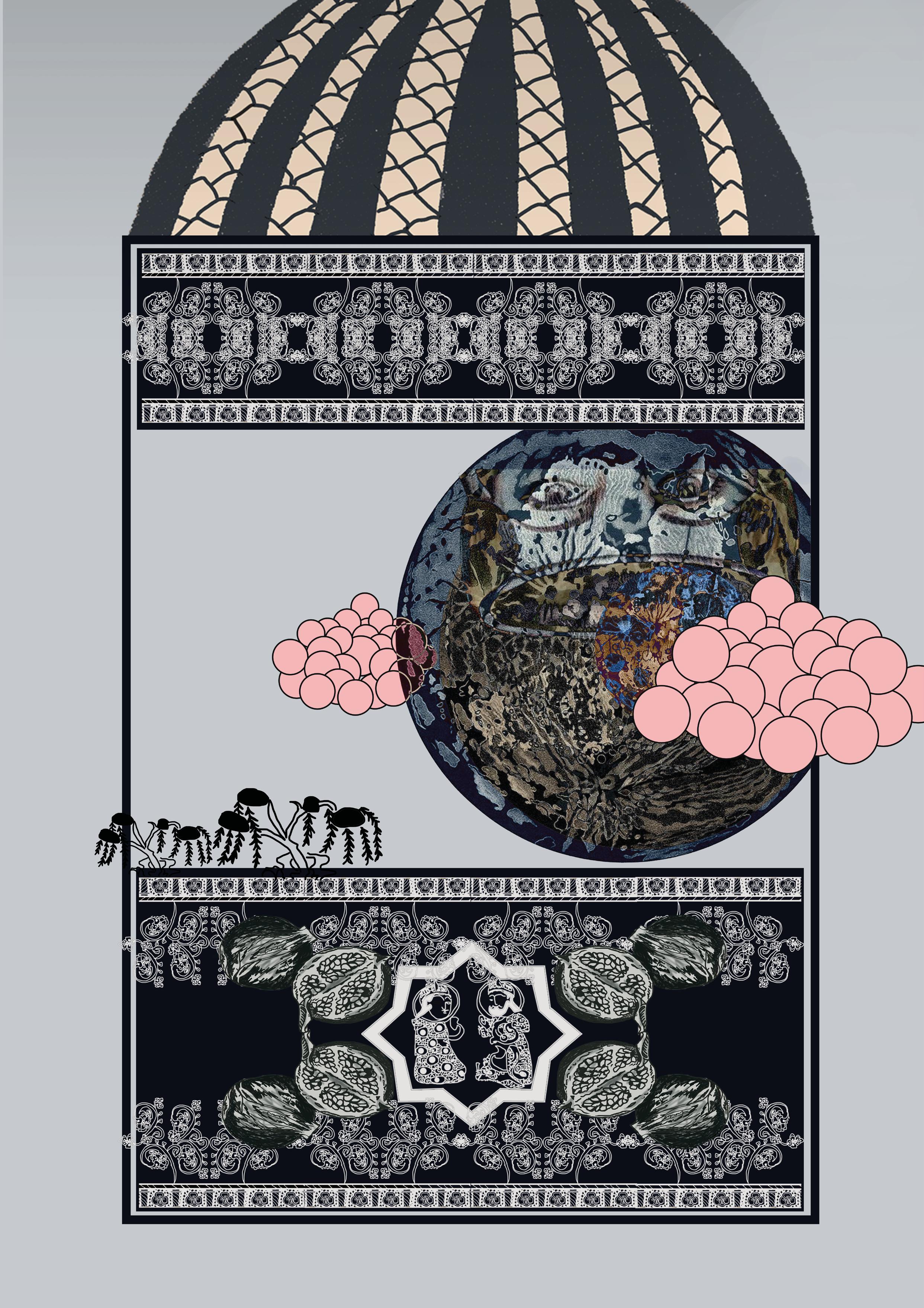
2023

































 BY JESSICA COMBES
BY JESSICA COMBES



 BY JESSICA COMBES
BY JESSICA COMBES














 Photographer: Helen Ross – Envato Elements
Photographer: Helen Ross – Envato Elements


 BY JESSICA COMBES
BY JESSICA COMBES




 BY JESSICA COMBES
BY JESSICA COMBES



 BY JESSICA COMBES
BY JESSICA COMBES








 BY JESSICA COMBES
BY JESSICA COMBES












 BY JESSICA COMBES
BY JESSICA COMBES

 BY JESSICA COMBES
BY JESSICA COMBES





 BY JESSICA COMBES
BY JESSICA COMBES











